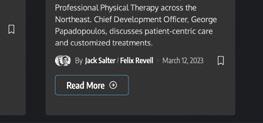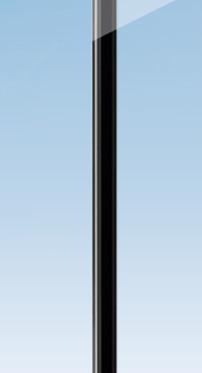









For over a decade, our portfolio of in-house magazines has been lovingly produced, printed, and distributed to our esteemed subscribers across the globe from our headquarters in the UK.


But now we are moving with the times, adopting a digital-first approach by producing online-only publications. A major factor in this decision is to minimise our environmental footprint, reducing the carbon emissions involved in the logistics of print magazine distribution and the resources required therein.

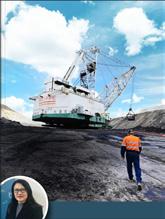

Going forward, we will provide print orders of any magazine in-line with the requests of our featured companies, subscribers, and conference & expo partners.


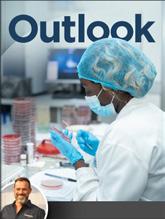
Please get in touch for a print-on-demand quote or visit our website to find out more.

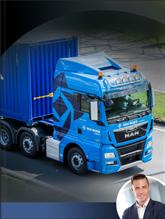
“We always planned that when our digital subscribers consistently accounted for 85% of our total magazine subscribers, we would cease printing our publications in-line with our environmental and sustainability goals.”
– Ben Weaver, CEO, Outlook Publishing Ltd
EDITORIAL
Editorial Director: Alex Tuck alex.tuck@outlookpublishing.com
Senior Editor: Jack Salter jack.salter@outlookpublishing.com
Editor: Lucy Pilgrim lucy.pilgrim@outlookpublishing.com
Editor: Ed Budds ed.budds@outlookpublishing.com
Junior Editor: Rachel Carr rachel.carr@outlookpublishing.com
Junior Editor: Lauren Kania lauren.kania@outlookpublishing.com
PRODUCTION
Production Director: Stephen Giles steve.giles@outlookpublishing.com
Senior Designer: Devon Collins devon.collins@outlookpublishing.com
Junior Designer: Louisa Martin louisa.martin@outlookpublishing.com
Production Assistant: Megan Cooke megan.cooke@outlookpublishing.com
Digital Marketing Manager: Fox Tucker fox.tucker@outlookpublishing.com
Social Media Executive: Bria Clarke bria.clarke@outlookpublishing.com
Web Editor: Oliver Shrouder oliver.shrouder@outlookpublishing.com
BUSINESS CEO: Ben Weaver ben.weaver@outlookpublishing.com
Managing Director: James Mitchell james.mitchell@outlookpublishing.com

Sales Director: Nick Norris nick.norris@outlookpublishing.com
Regional Director: Joshua Mann joshua.mann@outlookpublishing.com
TRAINING & DEVELOPMENT MANAGER
Marvin Iseghehi marvin.Iseghehi@outlookpublishing.com
BUSINESS DEVELOPMENT DIRECTOR
Thomas Arnold thomas.arnold@outlookpublishing.com
HEADS OF PROJECTS
Callam Waller callam.waller@outlookpublishing.com
Eddie Clinton eddie.clinton@outlookpublishing.com
Deane Anderton deane.anderton@outlookpublishing.com
Ryan Gray ryan.gray@outlookpublishing.com
SALES MANAGERS
Sales & Partnerships Manager: Donovan Smith donovan.smith@outlookpublishing.com
Josh Hyland josh.hyland@outlookpublishing.com
PROJECT MANAGERS
Bex Middleton bex.middleton@outlookpublishing.com
Cameron Lawrence cameron.lawrence@outlookpublishing.com
Harry Palmer harry.palmer@outlookpublishing.com
Kyle Livingstone kyle.livingstone@outlookpublishing.com
Poppy Burke poppi.burke@outlookpublishing.com
Taylor Green taylor.green@outlookpublishing.com
ADMINISTRATION
Finance Director: Suzanne Welsh suzanne.welsh@outlookpublishing.com
Finance Assistant: Suzie Kittle suzie.kittle@outlookpublishing.com
Finance Assistant: Victoria McAllister victoria.mcallister@outlookpublishing.com
CONTACT
Africa Outlook
First Floor, Norvic House, 29-33 Chapelfield Road
Norwich, NR2 1RP, United Kingdom.
Sales: +44 (0) 1603 363 631
Editorial: +44 (0) 1603 363 655
SUBSCRIPTIONS
Tel: +44 (0) 1603 363 655
phoebe.harper@outlookpublishing.com www.africaoutlookmag.com
Like us on Facebook: facebook.com/africaoutlook
Follow us on Twitter: @africa_outlook
Welcome to our 103rd issue of Africa Outlook magazine. We are delighted to shine a light on the great work being done by businesses across the world’s second largest and second-most populous continent, as superpowers continue to court Africa for its limitless potential.
This month’s cover star hails from Ghana. Access Bank is no ordinary financial services provider, as it impacts several communities as part of its mission, from backing the Ghana Football Association to relaunching the commitment to eradicate the fistula menace in the country and partnering with A Sandal More to provide footwear made from recycled pool car tyres for deprived school children.
It’s apparent from the businesses we’ve spoken to this month that a high level of service is just the beginning of the story, with value-driven efforts building long term relationships with customers, governments, investors, and partners in the wider supply chain.
“The bank has provided universal banking services to nearly the entire population in Ghana and has acted as a catalyst for growth and socioeconomic development.” notes Emmanuel Morka, CIO of Access Bank.
Elsewhere, we speak to IPT PowerTech Group about its innovative approach to the power and telecommunications sector, as well as its efforts to maximise the use of renewable energy. From solution as a service (SaaS), banking as a service (BaaS), solar farms, mini-grids, and special products and applied research (SPAR), “such solutions help customers to reduce their carbon footprint in the short-term and meet carbon neutrality obligations in the long-term,” explains CEO Nabil Haddad.
Meanwhile, we look at the role of the Botswana Diamond Manufacturers Association (BDMA) in an evolving industry, as well as Ruwacon’s expanding mission to become South Africa’s most preferred contractor, and the impact of Osho Chemicals Industries Ltd. on the farming world and lives of over 10 million people.
Finally, I’d like to draw attention to another one of our editorial contributors, Punki Modise of Absa Group, who gave me a personal lightbulb moment in my view on mining’s role in all our futures – so be sure to check that out in our Expert Eye section.
There’s plenty more insights and corporate stories from major players across multiple sectors, so we hope that you enjoy your read.
Who knows – perhaps your story could be next?
Alex Tuck Editorial Director, Outlook Publishing




152
156



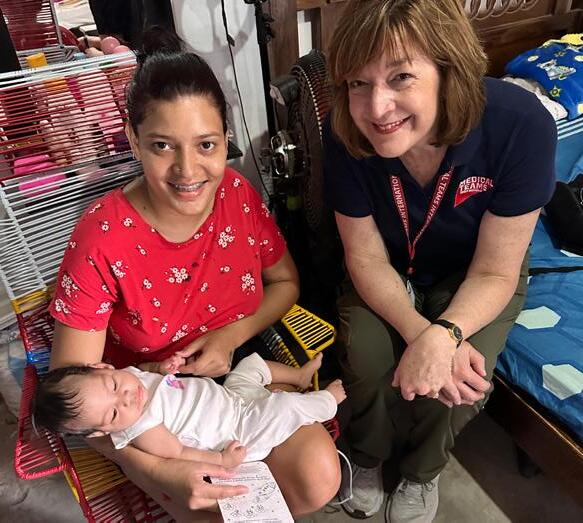
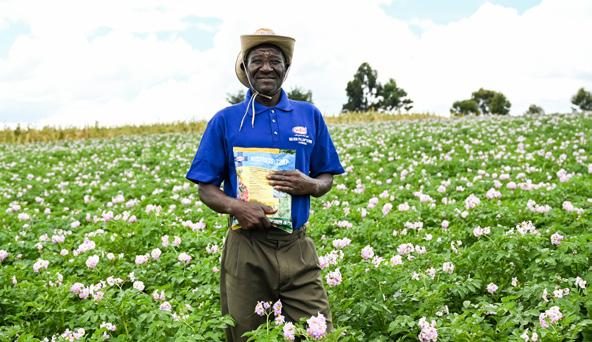
162
166


THE MARITIME INDUSTRY accounts for nearly three percent of carbon dioxide emissions worldwide and is currently under pressure to move away from contaminated bunker fuel and accelerate decarbonisation.
Cargill, one of the world’s largest ship charterers, is currently sending the Pyxis Ocean on its maiden voyage from Singapore to Brazil. What makes this cargo ship unique is that it’s retrofitted with WindWings - large wing sails measuring up to 37.5 metres in height. This trip is aimed at studying how harnessing wind power can cut emissions and energy usage in the shipping sector.
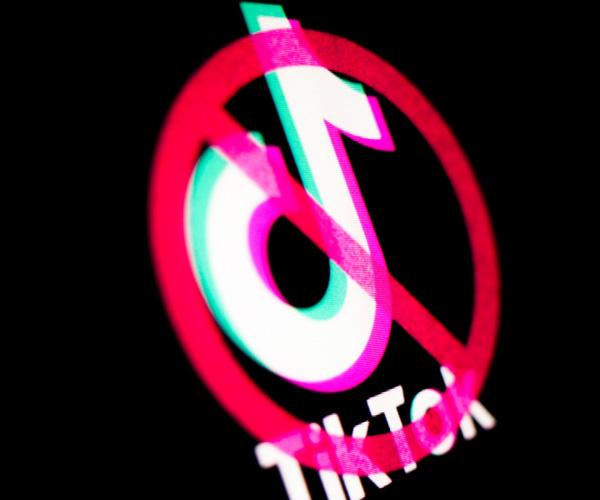
CLAIMING TO PREVENT terrorist groups from spreading propaganda to the public, the Somali government has ordered a ban on apps including TikTok, Telegram, and online betting site, 1XBET.
In a statement, the Ministry of
DESPITE HAVING A cybersecurity law put in place to prohibit offensive communication, cyber harassment, and hate speech for more than a decade, female politicians in Uganda are experiencing online abuse at rapidly growing rates.
Doreen Nyanjura, Deputy Lord Mayor of Kampala, experiences daily misogynistic mockery aimed at everything from her hairstyle to her marital status.
However, civil society organisations like Pollicy are working daily to create national and regional programmes to help women protect themselves online. By creating the digital game, Digital Safe-tea, women are able to learn about digital threats and how to safely navigate them.

Communication and Technology said that the internet providers have been ordered to cut off access to the three platforms by the 24th of August, and if they fail to do so, legal action will be taken.
This decision comes before the second phase of the military offensive against the radical Islamist Shebab, who have been waging insurrection against the central government for more than 15 years.
BRICS, A LOOSELY defined group that sees itself as a counterweight to Western economic domination, derives its name from Brazil, Russia, India, China, and South Africa and represents 23 percent of the world’s GDP, as well as 42 percent of the global population.
The heads of BRICS’ top diplomats are gathering under the theme “BRICS and Africa” between the 22nd and 24th of August in Johannesburg.
On this year’s agenda is the possible future expansion of BRICS
DESPITE COLOURFUL CAMPAIGN posters adorning street poles, buildings, vehicles, and trees in Zimbabwe, this is where the buzz surrounding the upcoming election seems to stop.
Many Zimbabweans see a change

membership, with several African countries having expressed a desire to join, including Algeria, Egypt, and Ethiopia.
WITH ONE OF the world’s highest maternal mortality rates, Kenyan midwives are working to make deliveries in rural communities safer.
Traditional birth attendants (TBAs) are well-respected within local communities and garner more trust than newer medical clinicians. To help bridge this gap, TBAs are pairing with healthcare workers as outreach ambassadors to connect with a wider range of women.
in government as not just desirable but necessary. However, a majority are uncertain that this sought-after change will occur, as the previous 2018 election resulted in six protesters being killed by the army after suspected rigging in the election.
The presidential race between President Mnangagwa and Nelson Chamisa, whom Mnangagwa previously beat by a razor-thin margin, is crucial in determining the future of a nation endowed with vast mineral resources and rich agricultural land.
TBAs are given birth-plan packages containing a clinic record book, a baby shawl, a change of clothes, emergency contacts, surgical spirit, and money in case of emergency. With these items, pregnant women are able to start preparing months in advance for childbirth.

ENERGY & UTILITIES
TANZANIA’S STATE POWER firm, Tanesco, has warned that many parts of the East African nation are likely to experience power cuts as a result of a system error.
Specifically, an error in a gas-fired power plant has caused a loss of 268 megawatts to the transmission system.
Tanesco has made a statement confirming that they will notify customers every four hours as the power availability improves, with efforts to fix the problem ongoing.
This loss will lead to a lack of electricity at different times across the country until further notice.
Africa has featured prominently on the international conference agenda recently, with clean energy transition a hot topic. Absa Group Chief Strategy and Sustainability Officer, Punki Modise, tells us why
Written by: Punki Modise, Chief Strategy and Sustainability Officer, Absa GroupIn recent months, several international conferences have focused on climate change and sustainability, with a particular emphasis on Africa, and they have shed light on the recurring themes at the heart of the discussion. Firstly, there is a growing consensus on the importance of Africa transitioning to cleaner energy. Secondly, there is an increasing optimism about the potential opportunities that climate action presents for Africa. Lastly, there is a strong belief that Africa should not be a mere passenger in climate change matters, but should boldly shape its own response.
The optimism surrounding Africa and its potential in climate change opportunities is well-founded. With an estimated 30-40 percent of the world’s mineral deposits, Africa possesses vast untapped wealth. The ongoing global energy transition presents a unique opportunity for the
continent to unlock prosperity from its resources, especially by embracing ESG integration through mineral beneficiation.
Minerals play a vital role in clean energy technologies, and depending on the world’s commitment to net zero, the total mineral demand from clean energy technologies could double or even quadruple by 2040. While crucial for African leaders to prioritise beneficiation as a nonnegotiable priority, it is important to acknowledge the potential environmental and social impacts of mining activities. Stringent regulations and responsible mining practices must be in place to mitigate these impacts and ensure sustainability.
While the mining industry has faced increased scrutiny in recent years regarding environmental, social, and governance (ESG) issues, some

African nations still struggle with poor governance, posing risks for both the industry and potential investors.
To remain competitive, businesses must strike the right balance between a short-term focus on profitability and the long-term benefits of ESG integration to secure investment. It is essential for African governments to prioritise responsible and sustainable mining practices and collaborate with private sector entities to establish stringent regulations, industry best practices, and transparent reporting mechanisms.
However, it is encouraging that several African countries have made notable progress in promoting sustainable mining practices and attracting investment through ESG integration. For instance, Ghana stands out for implementing the Ghanaian Mining and Environmental Guidelines, while South Africa has integrated ESG principles through its Mining Charter, and Namibia is enforcing sustainable mining practices through its legal framework.
Despite these achievements, continued collaboration between governments, mining companies, and
stakeholders will be vital to address challenges, monitor progress, and sustain the positive impact of ESG integration. However, these global gatherings have identified several daunting challenges that lie ahead for Africa’s transition.

The first challenge is the perception of risk associated with Africa, which significantly impacts the cost of capital and hampers the continent’s transition ambitions. With a staggering 93 percent of African countries rated as sub-investment grade, Africa lacks the necessary fiscal space to finance its own transition.
Secondly, energy insecurity also remains a concern, with approximately 600 million people lacking access to electricity, according to the African Development Bank. While renewable energy sources are crucial, the continent faces challenges due to the highly variable nature of wind and solar power and the absence of nuclear power and less reliable hydroelectric power. Consequently, Africa will continue to use its abundant energy resources, both renewable and non-renewable, to meet energy demands.
But businesses and governments must prioritise renewables as an immediate and vital solution rather than a distant future project for Africa’s sustainable energy transition.
Thirdly, there is the perceived lack of effective coordination among African policymakers and decision makers. This severely hampers the continent’s ability to effectively scale its climate change response actions. It is crucial for African governments to prioritise collaboration and establish platforms to share knowledge, align strategies, and coordinate efforts.
There is a pressing need for credible, standardised and verified data to measure the impact of ESG efforts and enable ESG investment. New mining projects require comparable, factual, and verified data sets. Collaboration between private and public entities is crucial in establishing appropriate ESG data collection, analysis, and best practices. Internationally recognised ESG performance frameworks, such as those from the Global Reporting Initiative and the Sustainability Accounting Standards Board, can provide a foundation for this process.
Recognising the African Continental Free Trade Area (AfCFTA) as a unique opportunity, Africa can address the challenges of finance, ineffective coordination, and scale its climate change efforts. By integrating ESG considerations into African trade policies, AfCFTA can serve as a platform for regional cooperation and harmonisation of policies, and encourage businesses to adopt sustainable practices, promote data transparency and standardisation.
Addressing the challenges of ESG requires collaboration between public and private entities. Effective collaboration means working together to set clear ESG goals and targets.

Governments can incentivise companies through policy frameworks that include regulatory measures like
tax incentives, grants, subsidies, and favourable business regulations, and mandate ESG data disclosures using standardised reporting frameworks. Public-Private Partnerships (PPPs) are also valuable for joint ESG initiatives, enabling the sharing of resources, expertise, and funding.
By implementing these strategies, governments and private sector entities can foster effective collaboration, driving positive ESG practices and contributing to sustainable development.
Punki Modise is Absa Group’s Chief Strategy and Sustainability Officer and previously served as the Interim CEO of Absa Retail and Business Banking. She joined Absa Group in 2008 and has since held multiple other senior management roles, including Head of Transactional Banking, Chief of Staff for Retail Banking, and CFO of Absa Distribution Channels. Modise holds a Bachelor of Commerce from the University of Witwatersrand, a Master’s degree in Financial Management from the University of Johannesburg, and is a qualified chartered accountant.
cib.absa.africa
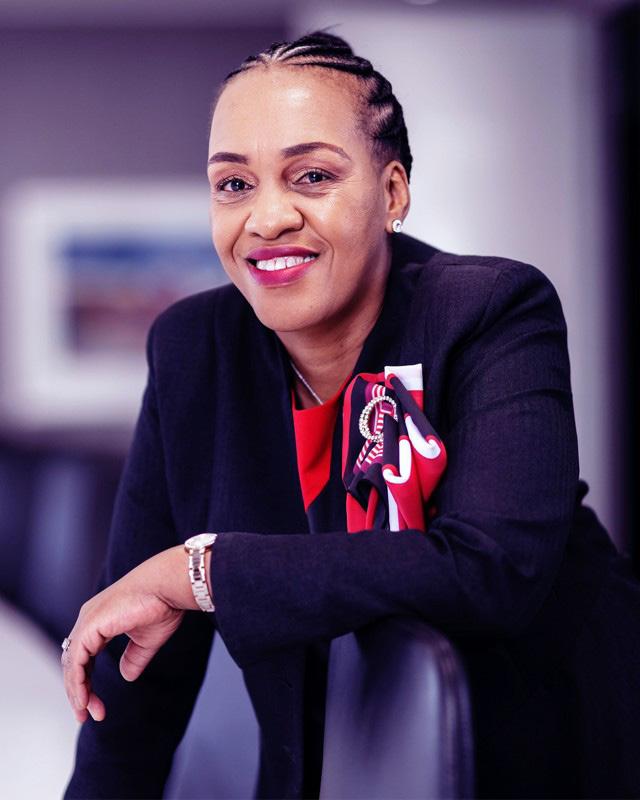 EY Sustainability: Punki Modise discusses Absa Group’s ESG projects on YouTube
EY Sustainability: Punki Modise discusses Absa Group’s ESG projects on YouTube
The South African healthcare industry is one of the most financially backed in the world, as the country dedicates a vast proportion of GDP to its healthcare system, totalling almost 8.5 percent. Although this is highly beneficial for the stability of the nation’s health, it has led to an imbalance in recent years between the private and public sector, particularly regarding access and the quality of healthcare provided.
“Both the private and public sector have the most difficult but imperative responsibility in working together to address the issue of unequal access and closing the glaring disparities in quality of services between those who can afford voluntary private medical insurance and those who rely on the state for their healthcare,” opens Sandile Mbele, Executive Director at AfroCentric Group (AfroCentric), a black-owned healthcare investment organisation.
As one of the most diversified healthcare companies in South Africa, AfroCentric is proud to be a part of the dialogue surrounding the evolving healthcare ecosystem and is excited for its contributions to the nation’s healthcare going forward.

Founded in 2008 and majorityowned by financial services titan, Sanlam Group, AfroCentric encapsulates a healthcare ecosystem which supports the objective of reducing costs and making quality healthcare accessible to more South Africans.

The organisation has a vast client base, with the primary market segments being medical aid schemes, public and private sector hospitals, corporate organisations and direct paying members. Furthermore, its medical aid administration business spans restricted and unrestricted membership for medical aid schemes in the public, private and corporate sectors.
AfroCentric has enjoyed phenomenal growth in recent years, thanks to a diversified business model. The leading strategy has enabled the organisation to be flexible and provide tailor-made solutions for businesses of all sizes. Furthermore, the company has proactive and preventative inventions that have a measurable return on investment
We speak to Sandile Mbele, Executive Director at AfroCentric Group, about how the organisation is pioneering affordable and quality healthcare throughout Africa, thanks to a diversified business model
Writer: Lucy Pilgrim
• Medical aid administration - risk management and health technology, with over 3.8 million lives under the management of AfroCentric.
• Pharmaceutical medical supply - dependable nationwide delivery directly to the member’s doorstep, all with the highest quality goods.
• AfroCentric Corporate Solutions subsectorprovides holistic employee well-being through tailormade healthcare solutions which provides access to quality private healthcare at a price that businesses can afford.
(ROI), whilst offering fully integrated care that combines work fitness and curative health services.
Above all else, the organisation’s primary focus is to reduce the cost of healthcare, making it affordable and of the upmost quality.
“Our unique and careful integration of key elements in the healthcare value chain, together with the advantage of substantial data insights, enable us to remove the duplication of costs in the delivery system, transferring the savings to our clients through beneficial pricing structures,” Mbele explains.
Sanlam is traditionally known for its market leadership in the provision of financial planning, insurance, investments, wealth and credit solutions. The AfroCentric venture marks Sanlam’s bold multi-billionrand investment, creating a landscape for future innovations in medical strategy.
Thanks to Sanlam’s recent acquisition of the controlling stakehold of AfroCentric, the
company can continue to provide vital healthcare to millions across South Africa, as the only organisation to offer substantial value and savings to its clients, via integrated value propositions that involve managed healthcare, pharmaceuticals, health and wellness programmes, and financial solutions.

AfroCentric operates across four sub-Saharan African countries, as its series of companies offer a range of solutions that are designed to work together, giving clients a greater choice in the solution that best works for them.
When taking a look at a sample of the multitude of companies under the umbrella of AfroCentric, Activo Health is crucial for importing and marketing pharmaceutical products, and trades across all pharmaceutical sectors.
Meanwhile, AfroCentric Wellness offers people-centric wellness solutions that identify noncommunicable clinical risk whilst
‘‘We recognise the role that primary care nurses play as the backbone of any healthcare system”
- Sandile Mbele, Executive Director, AfroCentric Group
also supplying educational material and promoting awareness. On top of this, the initiative provides designated high-risk members with established disease management programmes and offers home-based care services to scheme members.
Allegra is an additional techbased contributor to the medical sector that empowers healthcare communities by providing access to information that enhances total individual care. The company’s main goal is to gather and share critical information seamlessly through appropriate healthcare providers, funders, and other stakeholders. As a result, Allegra consistently improves patient quality of life.
With the belief in ‘Aid for AIDS’, AfroCentric has been an industry leader in HIV/AIDS management
since 1988. This particular sector of the business coordinates care between funders, doctors, pathology laboratories, pharmacies and patients. This includes the design, development, and delivery of unique and encompassing programmes that help businesses care for and manage medical schemes for individuals with HIV/AIDS.
“The ‘Aid for AIDS’ area of the organisation seeks to create programmes that understand patients’ needs and equip them with the treatment and tools to lead fulfilled lives,” Mbele informs us.
AfroCentric is proud to provide a combined service of preventative and curative healthcare, bundled
with affordable medical cover that puts the patient first. At the forefront of its patient-focus and streamlined healthcare is its industry-leading workforce of nurses.

“A nurse-based healthcare delivery system has been an integral part of a viable solution to address the growing disease burden globally, and the costs associated with this. As a result, we recognise the role that primary care nurses play as the backbone of any healthcare system,” Mbele proudly tells us.
This is most clearly demonstrated through the partnership programme, Sanlam Corporate Wellness, working with a network of over 3,000 nurses across the country. The programme enables nurses to play an even more significant role in improving access to affordable, quality healthcare. The
‘‘The ‘Aid for AIDS’ area of the organisation seeks to create programmes that understand patients’ needs and equip them with the treatment and tools to lead fulfilled lives”
- Sandile Mbele, Executive Director, AfroCentric Group
South Africa
• Activo Health
• AfroCentric Distribution Services (ADS)
• AfroCentric Employee Health Solutions

• AfroCentric Healthinsure
• AfroCentric Integrated Health Administrators
• AfroCentric Technologies
• AfroCentric Wellness
• AfroCentric WorkCare
• Aid for AIDS
• Allegra
• Curasana
• Dental Information Systems (DENIS)
• EssentialMed
• Forrester Pharma
• Klinikka
• Medscheme South Africa
• Pharmacy Direct
• Private Healthcare Administrators (PHA)
• Scriptpharm Risk Management
• Tendahealth
Namibia
• Medscheme Namibia
Botswana
• Associated Fund Administrators
Mauritius
• Medscheme Mauritius
• Medscheme International
organisation also recognises the key role nursing professionals play in clinical, administrative, supportive and leadership functions.
To bolster the nursing workforce, AfroCentric encourages businesses to invest in nurse-led primary healthcare clinics onsite, which provide easy access for the employees of businesses to take advantage of wellness screening services and proactively manage the early onset of non-communicable diseases, commonly known as lifestyle diseases.
Subsequently, a corporate nurse is present to do regular follow-ups for employees who have presented with chronic conditions. This ensures that they are registered on the correct active disease risk management programmes, gaining access to the right medical benefits, and reducing day-to-day costs.

“Nurses establish a personal relationship with patients, guiding them through the anxiety they may experience when adjusting to major lifestyle changes, and assist those who are starting on chronic
medication or in need of general health advice,” Mbele elaborates.
As AfroCentric navigates its future growth in the existing healthcare environment, the company is simultaneously ensuring its future role. In a country where national health insurance (NHI) will emerge as the funding mechanism for all citizens to be able to access quality healthcare, AfroCentric plays an integral role in many areas, from harnessing the true potential of primary healthcare to helping reduce South Africa’s high disease burden, all the way through to managing the high costs of hospitalisation.
“The market can expect an exciting array of product innovations and immense value creation to be unlocked for both organisations (AfroCentric and Sanlam), and most importantly, their existing and future clients,” closes Mbele.

Within recent years, the banking industry in Africa has undergone significant transformation and growth in how it engages with its community and expands its online presence.
Launching its operations in Ghana in August 2009, Access Bank has been a leader in this banking revolution, proving to be one of the most capitalised commercial banks in the industry. Operating through a network of more than 700 branches and service outlets, spanning three
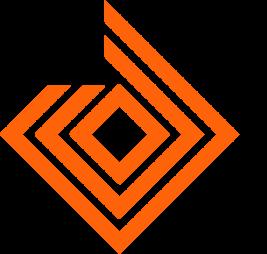
speak to Emmanuel Morka,
continents, 17 markets, and over 42 million customers, Access Bank has more than 30 years of remarkable achievements and making a difference in the community.
Ensuring that priorities such as accessibility, social responsibility, and digital transformation are at the forefront, Access Bank has been the go-to company for a wide range of local and international customers.
 Writer: Lauren Kania
Writer: Lauren Kania
“The bank’s experience in trade finance, treasury, and relationship management services has positioned



We
CIO of Access Bank, about how modern banking is making a difference by encouraging a sense of ownership in all aspects of business
us as the preferred partner for global businesses and international financial institutions seeking to do business in Ghana,” notes Emmanuel Morka, CIO
communities to deliver world-class banking services with the goal of becoming “the world’s most respected African bank”, a priority that has been “instilled in every member of staff to ensure that we work collectively to achieve this vision.”
Having been recognised as one of the five largest banks in Nigeria in terms of assets, loans, deposits, and branch networks, Access Bank has raised the bar in terms of what it means to deliver sustainable,

profitable, environmentally responsible, and socially relevant economic growth.
Cash as a primary form of currency is becoming increasingly obsolete, with digital banking becoming the predominant way in which people are looking to transact and conduct business. The COVID-19 pandemic has only proven to further push this march towards online and mobile dominance over recent years.

Fortunately, “within the last decade, Access Bank has invested heavily in developing robust digital products and services to meet the growing demands of its customers and stakeholders,” Morka reports.




With products and apps such as AccessPay, GhanaPay, Point of Sale Terminals, Easy Cheque Manager, GHQR, and Card Payment Services, all of which encourage the progression and ease towards utilising online and contactless methods, Access Bank continues to provide quick and userfriendly options for those looking to take advantage of these new opportunities.
AccessPay, for example, is a web-based enterprise suite and a payment solution that offers organisations a secure, simple, and cost-effective alternative to cash and cheque payments across multiple banks, allowing customers to initiate payments from corporate accounts to third parties.
The importance of SMEs has not been overlooked by Access Bank either. Employing digitalisation to drive the value of SMEs and provide
Increasing Access to Financial Services: In an effort to improve financial inclusion, mobile banking and digital payment platforms have worked to bridge the gap for previously unbanked populations.
Mobile Banking and FinTech: Providing simple, affordable, and convenient financial services to a broad range of people, Africa has been at the forefront of adopting mobile banking and FinTech solutions.

Regulatory Reforms: Many African countries have implemented regulatory reforms with the aim of enhancing financial stability, consumer protection, and adherence to international standards.
Foreign Investments and Expanding Presence: The development of more sophisticated financial products and services has been encouraged by the increase in foreign investments and partnerships.
Challenges: Despite progress, challenges including a lack of infrastructure in remote areas, low financial literacy, high operational costs, and cybersecurity concerns persist.
Regional Variation: Performance and maturity in the banking industry vary across African countries.
Role in Economic Growth: The African banking sector plays a critical role in driving economic growth by facilitating capital mobilisation, credit allocation, and investment.
Opportunities: Innovation and expansion in areas such as agricultural finance, SME lending, and cross-border trade facilitation are all opportunities within the industry.
“SINCE INCEPTION, THE BANK HAS PROVIDED UNIVERSAL BANKING SERVICES TO NEARLY THE ENTIRE POPULATION IN GHANA AND HAS ACTED AS A CATALYST FOR GROWTH AND SOCIO-ECONOMIC DEVELOPMENT”
– EMMANUEL MORKA, CIO, ACCESS BANK
them with all the necessities in order to succeed and grow in today’s business environment has been accentuated by mobile technology such as MPower Biz, a business current account that offers customers the additional benefit of interest earnings on their account balances and no charges.
This innovation and desire to put customers first has manifested itself in a robust technology-driven platform, which has stood the test of time and is situated as one of the best in the world.
“The bank’s well-established global network enables it to provide customers and other stakeholders with valuable local knowledge and contacts, and the distinct advantage of a truly international bank. Currently, Access Bank operates from 53 business offices located in major cities and commercial centres across the

country,” states Morka.
Mobile banking is undeniably the future of the industry, and ensuring that this is an aspect that can be accessed and utilised by those from every demographic is how it will lead the industry forward.
No operation would find success without the support and drive of the community in which it was established.
Access Bank not only recognises the importance of its local community but also the significance of giving back and helping to positively impact the lives of the populace.
One such practice that has come to have a notable impact is Access Bank’s work on reforestation.
“For the past two years, we have championed
GhanaPay: A new app launched in 2022 developed by the Ghana Association of Banks and Chana Interbank Payment and Settlement Systems complements the bank’s existing digital platforms and encourages the promotion of a cashless system.
Point of Sale Terminals: A new feature on the POS terminals that allows payment with mobile money wallets on point-ofsale devices, after the COVID-19 pandemic decreased the use of physical money.
AccessPay: A web-based enterprise suite and payment solution that offers a secure, simple, and cost-effective alternative to cash and cheque payments across multiple banks.

Easy Cheque Manager: A one-stop shop for all businesses to process and clear cheques in real time.
GHQR: Payment option in partnership with GhIPPS, allowing customers of various companies to initiate payment for the products purchased and services rendered by scanning a barcode on display.
Card Payment Services: A collaboration with Visa to implement an OTP service which provides a secured two-factor authentication during online transactions. This also includes corporate accounts (current/savings) and MPower Biz accounts specialised for businesses.
the reafforestation of Ghana by committing to the government’s tree planting initiative. This aims to restore the depleted forest cover to promote climate action, in line with the bank’s strategic objective of sustaining the environment through SDG 13 which focuses on climate action,” Morka highlights.
This is alongside Access Bank successfully supporting a total of 48 Ghanaian Division One football clubs in its efforts to promote grassroots sports, relaunching its commitment to eradicating the fistula menace in Ghana, and partnering with Chaint Afrique on “A Sandal More” project, which provides sandals made from recycled car tyres for deprived school children.
In addition to working with different companies to ensure the prosperity of the local communities, Access Bank works to empower its staff and recognise their daily contributions.
“Our staff are our number one stakeholder. They ensure the business is efficiently run and customers are satisfied. The bank therefore takes measures to ensure their satisfaction, work-life balance, and improve their knowledge and skill set through constant training. We invest in the welfare of our staff and have a highly rewarding appraisal system to motivate them,” concludes Morka.
With strong local and international relationships built with consistency, innovation, and hard work, Access Bank continues to set the standard for banking and all it has to offer in the ever-digital future.
Aworld where technology can co-exist with people to preserve the planet for future generations is envisioned by Samsung.
The company is committed to enabling more sustainable lifestyles for its consumers by continuously creating premium technology that lasts, with more power and less environmental impact.
Equally, Samsung knows that it cannot achieve its sustainability goals alone, and thus needs people to take an active role in the process.
Consumers nowadays also want to do their part and live more sustainably but don’t think a climate-friendly lifestyle is easy. Indeed, about 85 percent of consumers worldwide see a gap between their current lifestyle and how sustainable they would like to be.


Customer participation is therefore being encouraged by Samsung, so their customers can play an equal part in the important journey towards a sustainable future, which has been threatened in recent years by the acceleration of the climate crisis.

South African consumers are being encouraged by Samsung to join the technology giant’s “Everyday Sustainability” mission and take small actions together for a better planet
Writer: Jack Salter
Accordingly, Samsung is empowering everyone to make small and subtle changes in their daily lives, as the impact these can have collectively on the environment and making everyone’s lives more sustainable is huge.
For this reason, the company is encouraging South African consumers to join its “Everyday Sustainability” mission.
To achieve this mission, Samsung is building on its ‘Planet-First’ philosophy, a comprehensive environmental plan to join global efforts to address climate change.
Together with the upcoming commemoration of Global Earth Day in April 2024, current environmental challenges have prompted the company to further strengthen its governance and ensure that sustainability remains an utmost priority in all operational facets. For these reasons, South African consumers are requested to join Samsung on its mission towards a sustainable future.
In order to overcome environmental challenges, Samsung maintains that everyone, including consumers, needs to commit to minimising the current environmental impact and move aggressively towards both sustainable business and lifestyle practices.
Four new ways to live sustainably have been unveiled to local consumers by Samsung to achieve these ambitious goals, focusing on recycled materials, energy efficiency, eco-packaging, and recycling or upcycling.
The application of recycled plastic, for example, is expanding across a range of Samsung product categories to increase the use of ecoconscious materials.

Production, meanwhile, includes
renewable energy and chemical management, the latter of which sees Samsung developing alternatives for chemical substances and striving to minimise the negative impacts on customer and employee health of hazardous substances that may enter its products, as well as chemicals used in the front lines of manufacturing.

Distribution now also includes eco-packaging efforts and logistical optimisation, a process that involves the constant application of ecoconscious materials to packaging.

To reduce the environmental impact of its product packaging, Samsung is not only replacing plastic and vinyl materials with paper and recycled materials, but also reducing the volume and weight of its packaging to mitigate greenhouse gas (GHG) emissions in the transportation and shipping process.
Indirect GHG emissions are likewise being reduced, and recyclables are now separated by material.
In particular, Samsung’s “Everyday Sustainability” vision focuses on creating sustainable products for local consumers, and how these can be designed to benefit the environment.
The latest Galaxy S23 series, for example, is a high-performance device delivered by Samsung that meets the highest standards of quality while also using more recycled materials than any other Galaxy smartphone to date.
The responsibility of ensuring that the future of the planet is healthy and secure has been embraced by

Samsung, who has committed to incorporating sustainability into everything it does, from product design to development.
To ensure that it leaves a better planet for generations to come, Samsung is determined to continue championing responsible innovation in the future. As part of its commitment, the company continues to make a concerted effort to not only achieve enterprise-wide net zero carbon emissions but also use more renewable energy, research and invest in new technology to develop energyefficient products, as well as increase the re-use of water and development of carbon capture technology.
“Everyday Sustainability” is therefore being entrenched in every aspect of the organisation by Samsung, whose competitiveness and sustainable growth go hand-inhand with harnessing its technological solutions to preserve the environment and build a better world. For Samsung, it is everyone’s responsibility to care for the environment and make it a wonderful place to live in, which is why it advocates for all South African consumers to do their part and together re-imagine a better planet.
The small landlocked nation of Botswana in Southern Africa is the second-largest producer of diamonds in the world. Furthermore, its colourless gemstones are essential to stabilising the country’s economy and building infrastructure.

Indeed, Botswana relies on diamonds for 90 percent of its exports, and the industry is directly responsible for one in 20 jobs. Meanwhile, last year the gemstones accounted for around 30 percent of Botswana’s revenue, with De Beers depending on the nation for about 70 percent of its rough diamond supply, equating to 24 million carats.
In order to operate in Botswana, De Beers founded the De Beers Botswana Mining Company in 1968, later evolving into Debswana. Today, the company has four diamond mines and is the world’s leading producer of diamonds by value.
De Beers provided the necessary conditions for Botswana to experience the highest economic growth rate since its independence from Britain in 1966 when it agreed
to a joint venture with the government, accruing revenue from diamonds. However, since 2000, the economy’s growth rate began to stall and was below the sub-Saharan African average. To negate this, along with persistently high unemployment, the government of Botswana introduced a policy to diversify the economy.
Additionally, Botswana is one of the few sub-Saharan African countries that has truly benefitted from its mineral wealth. Thanks to the iconic and timeless diamonds, it is now considered a middle-income country, a status it has been elevated to within the last 50 years.
A major contributor to the country’s wealth is the Debswana Jwaneng Mine, located in the Naledi River Valley in Southern Botswana, which is one of the world’s deepest, most valuable diamond mines. Significantly contributing to the economy since it opened in 1982, approximately 50 percent of public revenue, 33 percent of GDP, and over 80 percent of foreign earnings, the mine is committed to empowering the community by tripling its
It is well-documented that Botswanan soil is very rich in diamonds, which has secured its financial future with De Beers to improve the country’s living standardsWriter: Rachel Carr | Project Manager: Dave West
citizen spending and increasing employment.
One of the most successful elements of the industry is diamond beneficiation – the downstream possessing of rough diamonds, which were previously exported as rough diamonds and processed elsewhere. In fact, the local marketing of domestically produced gemstones has helped the diamondcutting and polishing field, creating additional industrial jobs in the country. Consequently, it is now the largest manufacturing sub-sector in the country, growing at an exceptional rate, with factories continually adopting and employing new technologies.

Botswana’s joint venture with De Beers has also facilitated publicity for its diamond industry from an unexpected source, as the British royal family is known to have a connection to its diamond market. Prince Harry, the Duke of Sussex, designed an engagement ring for
the Duchess of Sussex, Meghan Markle, with a cushioncut diamond, having travelled to the country to select it personally.
Known as the Markle Sparkle effect, the Duchess’ influence extends to the Millennial population, who want to buy sustainable and ethical diamonds and emulate the antique aesthetic of the classic cushion-cut stone, ultimately benefiting the local population.
This royal recognition is priceless for Botswana, placing its diamond industry as a producer of conflict-free jewels, which appeals to a new generation of diamond buyers. The social and ecological responsibility displayed by the Duke and Duchess of Sussex has, in some way, contributed to the country’s transformation into one of Africa’s economic success stories. In fact, the African Development Bank has praised Botswana for one of the world’s longest-sustained economic booms.

BDMA’s objective is to represent and advocate for its members while advancing the interests of the diamond industry - the lifeline of the country’s economy. We speak to its Chairman, Siddarth Gothi, about the role BDMA plays in developing the dynamic presence of diamonds in the global gemstone market.
Africa Outlook (AO): Firstly, could you talk us through the origins of BDMA – what led to its creation and what is its current vision and mission?

Siddarth Gothi, Chairman (SG): BDMA was established as a non-profit organisation (NPO) in 2007; today, it is the voice of Botswana’s diamond-cutting and polishing industry, consisting of De Beers Sightholder members and associated members, who are cutting and polishing license holders in Botswana and brokers for the industry.
It began with a vision to create a sustainable diamond industry in Botswana by utilising the country’s most valuable resource in tandem with fostering inclusiveness, thereby driving the country’s sustainable economic development and social transformation.
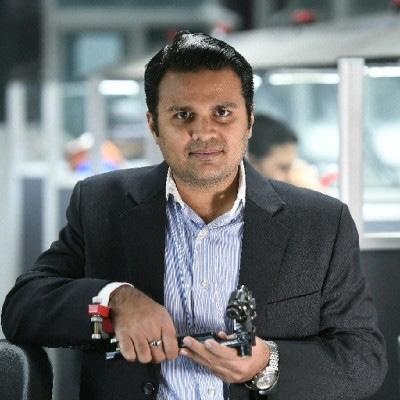
The Outlook Creative Services Division provides a complete web design, build and delivery service that leverages the expertise of our in-house production team. Complementing Outlook Publishing’s portfolio of esteemed global publications, our specialist skills cater to clients around the world with a fully bespoke service.


If you would like us to bring your digital story to life with passion and purpose, visit www.outlookcs.com or email hello@outlookcs.com
AO: How has BDMA developed and progressed regarding its mission, and what has it achieved?
SG: The initial mission was to represent the beneficiation and localisation of the industry in order to align it with government policies. This was followed by the aim to become the most important and responsible stakeholder in the Botswanan diamond industry and to ensure a stable and conducive business environment for industry players and relevant stakeholders.
Subsequently, our core values remain in continuing to develop a culture of professionalism, integrity, trust, continuous learning, collaboration and consultation amongst the industry members and its stakeholders.
AO: For you, what is the most exciting aspect of the diamond industry in Botswana?
SG: Botswana has been lauded for its effective management of diamond supply. De Beers backs this through its Global Sightholder Sales (GSS) headquarters, which positions the country as an exciting destination for diamond cutters and polishers. This is due to the guaranteed access to diamonds,
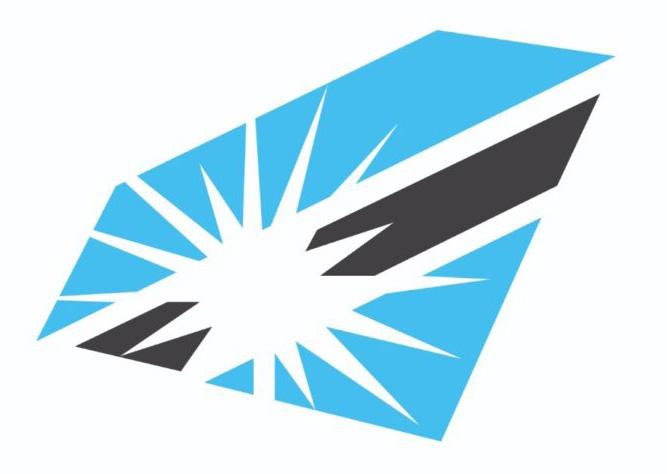
available for local Sightholders of De Beers, who cut and polish their diamonds within the country.
Furthermore, the country’s good governance and a red-carpet welcome to the diamond-cutting and polishing factories have made Botswana the favourite destination for these services.
AO: Conversely, what are the biggest challenges facing the industry at present?
SG: The absence of a diamond training school, which is vital for sustaining the diamond-cutting industry, is a current challenge. The key industry players do not have access to an available skilled workforce; therefore, the factories are expected to invest heavily in training the workforce locally. This leads to a higher cost in the production of diamonds within the country compared to India, which is the world’s largest and most economic diamond-cutting centre. Moreover, the sudden increase in Botswanan diamond-cutting factories during 2022 has led to a severe employee movement within the industry, due to the shortage of an available skilled workforce.
The fast increase was a shock to existing factories in Botswana, whilst putting a strain on the established cutting facilities, which were operating smoothly before the infusion of almost 20 new factories within one year. After a reduction in polished diamond purchases in the US and China, the global diamond industry slowed down as the industry’s midstream sector continued to take a cautious approach in Botswana. However, even though the factories are seeing a slowdown as a result of ongoing macroeconomic challenges, the future looks optimistic.
AO: Are there any key aspects of the industry you would like to highlight?

SG: As President of Botswana H.E. Eric K Masisi says, “Botswana are diamonds, and diamonds are Botswana.” We are a country heavily dependent on diamonds, as they have served the country well for over five decades since independence. Therefore, the diamond industry has helped the country move from poverty to upper middleincome status, accelerating its economic growth. During this time, additional high levels of public spending have created a better standard of living for the majority of the population.
Botswana’s economic growth also increased revenue, allowing for further developmental investment, and lifted national wealth levels rapidly, allowing for public services and facilities - once merely just aspirationalto be developed. This includes free public healthcare, access to free primary and secondary education, and the development of transport, energy and water infrastructure.
Botswana has managed to leverage the potential of its diamonds. As former president Festus Mogae states, “For our people, every diamond purchase represents food on the table, better living conditions, better healthcare, potable and safe drinking water, and more roads to connect our remote communities.”
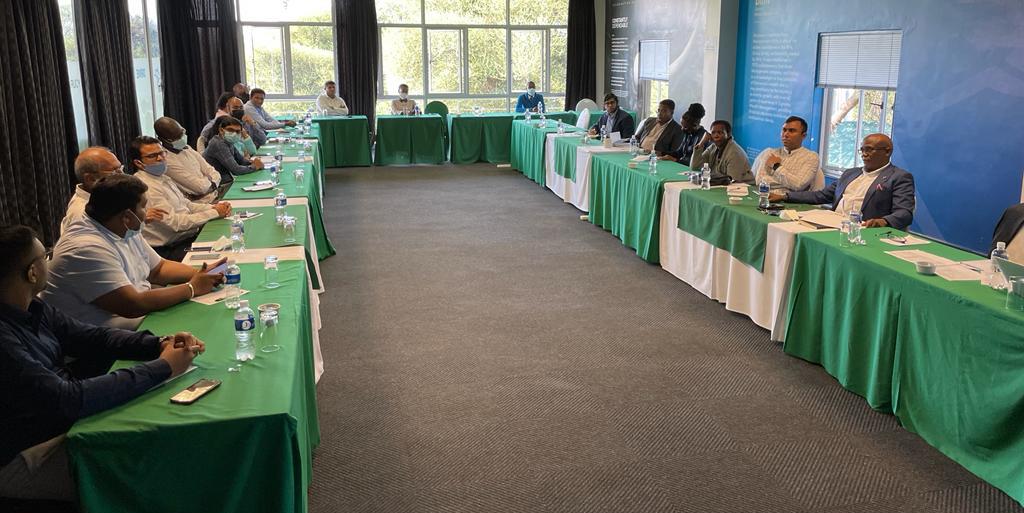
In addition to supporting local communities through cutting, polishing, and buying diamonds with known provenance from De Beers GSS, our members support local economic development. The diamond industry is a major contributor to the national economy, and by purchasing diamonds from the country, we contribute directly to the nation’s economy and add value to the local industry while supporting over 4,200 local jobs.
Diamonds positively impact the community and country; the vital product has become value-added by being exported after being studded into beautifully crafted pieces of Botswana jewellery. Additionally, the benefits of working with Botswana Diamonds extend beyond the conflictfree label. Ethical diamonds mean no human rights abuses, and employees are fairly paid with safe working conditions and environmentally sound practices.
AO: Are there any plans, goals or projects in the pipeline, or in the future for BDMA?

SG: As an important stakeholder in the diamond industry, BDMA significantly impacts policy and decision-making with the relevant authorities in Botswana. We also participate in sector-level consultative meetings with various stakeholders.
With the help of its members, BDMA strives to support communities through various programmes, such as supporting the health sector through its member Diacore, which organises Botswana’s most popular and largest marathon – the Diacore Gaborone Marathon. Alongside this, BDMA recently donated cars to Child Line Botswana
as part of its CSR project, and its members donate blood to the Botswana National Blood Transfusion Services to support the shortage of blood within the country.
BDMA organises some of Botswana’s most exciting sporting events, such as the BDMA Football League, BDMA Cricket League, and BDMA Netball League. These matches help build employee morale and develop team spirit. Indeed, during a recent football final, the company had over 1,000 spectators watching the game, and employees stayed back for the sundowner party.
Apart from this, BDMA hosts a few networking events and workshops where the members get to network and learn from the experts within the industry.
AO: Finally, how do you see the industry developing over the next five years?

SG: The role of BDMA is to ensure the industry is functioning smoothly and, therefore, to resolve any industry issues efficiently and appropriately. We also conduct industry-related workshops occasionally for the purpose of knowledge sharing and shaping up the industry for a better future.
We hope to see more beneficiation of the diamonds within the country and higher localisation through the inclusion of skills transfer and a greater citizen workforce.
Apart from this, a reduced carbon footprint for diamonds using green energy and recycling is something that is crucial within the industry. Whilst a more businessspecific development would be value-adding Botswana Diamonds jewellery manufacturing.
BDMA is a critical partner in boosting the success of the diamond industry in Botswana. The services it provides to its members help to develop businesses by finding optimal solutions and answers for any challenges. It organises regular meetings and workshops with the relevant authorities for its members and discusses industrywide solutions and facilitates knowledge transfer to its stakeholders.
BDMA has always represented those in the diamond cutting and polishing industry through advocacy to advance the industry’s interests by giving one voice to members.

“OUR CORE VALUES ARE DEVELOPING A CULTURE OF PROFESSIONALISM, INTEGRITY, TRUST, CONTINUOUS LEARNING, COLLABORATION AND CONSULTATION AMONGST THE INDUSTRY MEMBERS AND STAKEHOLDERS”
– SIDDARTH GOTHI, CHAIRMAN, BOTSWANA DIAMOND MANUFACTURERS ASSOCIATION




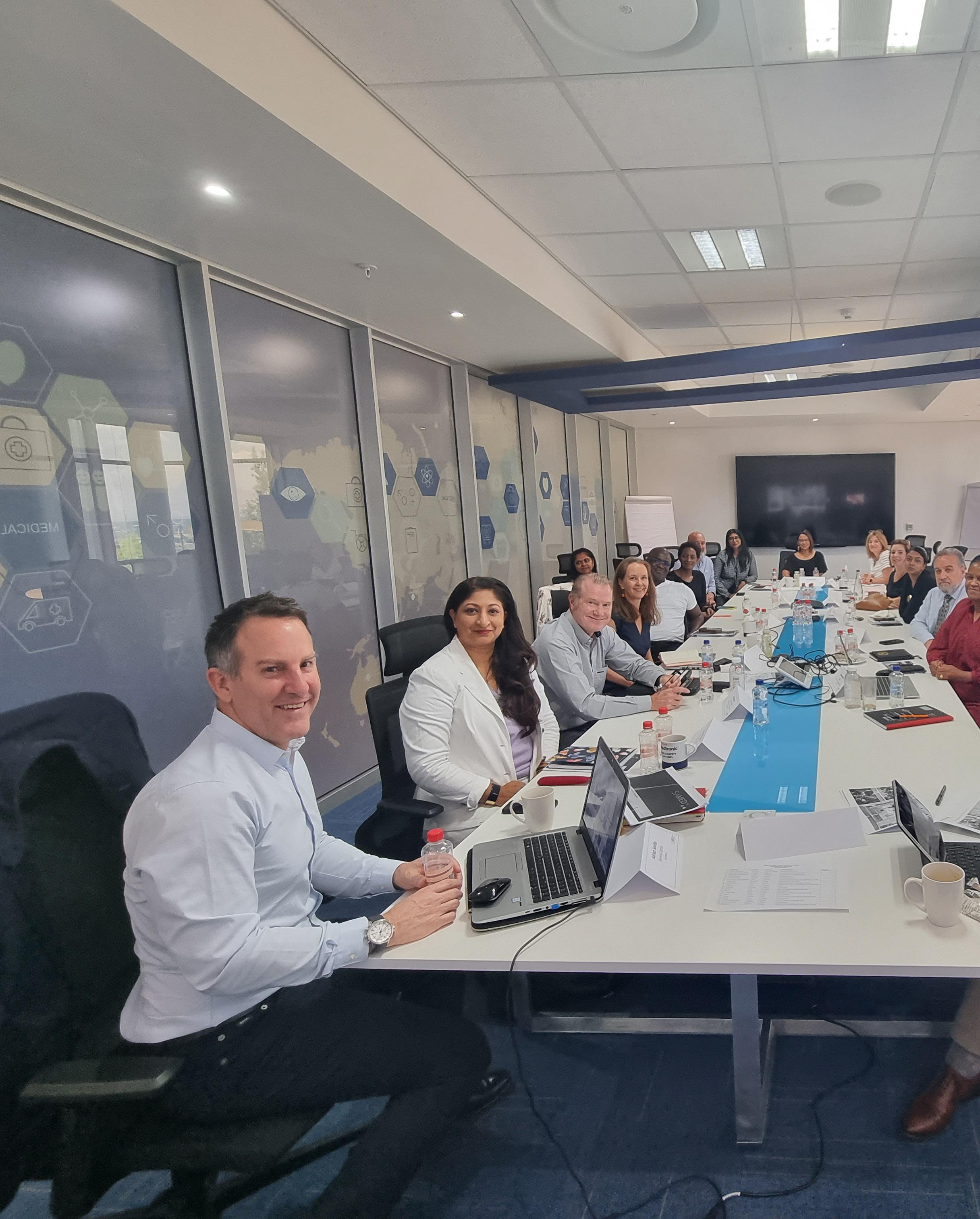










 Writer: Alex Tuck | Project Manager: Dave West
Writer: Alex Tuck | Project Manager: Dave West
According to the International Trade Administration, South Africa’s medical technology (MedTech) industry represents one of the country’s best prospect industry sectors, alongside pharmaceuticals. Its current realities reflect a sector that is ready for increased investment in localisation, development of critical manufacturing, regulatory skills, and strengthened trade with the rest of the African continent. Indeed, as a country that is dependent on imports for the majority of MedTech products, the vulnerability of this position rose to the fore during the recent global healthcare crisis of the COVID-19 pandemic, which starkly illuminated the issues that need to be addressed if the industry is to progress for the overall benefit of the national healthcare system.
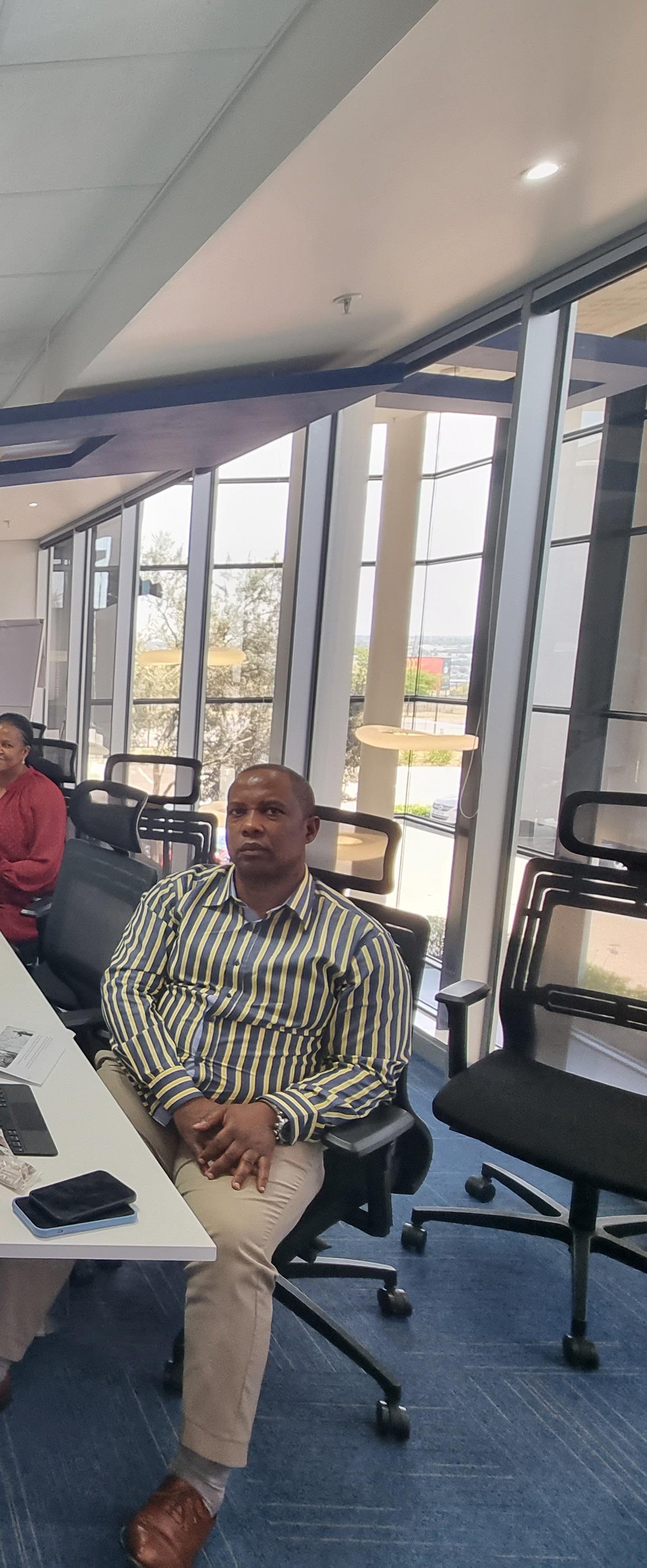
As with many industries, the MedTech sector is currently weathering major macroeconomic pressures, including increasing regulatory and labour costs, inflated expenditure on logistics, and the rising cost of energy and raw materials – the latter of which significantly impacts the semiconductor chips and medical grade packaging that are vital to the industry. Currently, all MedTech companies operating within the manufacture, distribution, import and export of MedTech products must obtain an establishment licence from the South African Health Products Regulatory Authority (SAHPRA). The sector’s future is reliant on greater engagement with this regulatory body, in addition to joint planning with all players involved in the delivery of care through consultations and collaborations.
This is pivotal as the country moves forward with the roll out of the National Health Insurance (NHI) scheme, which seeks to implement a universal healthcare system with the government acting as the main procurer of health goods and services. It is only through such collective efforts that MedTech can realise its full potential in South Africa as a field that is not only instrumental to the health of the population, but is a key step forward in the national socioeconomic trajectory.
As the country advances the roll out of national health insurance, a healthy MedTech sector will be instrumental to its success and the delivery of quality patient care. We step inside one of South
As the voice of the country’s burgeoning MedTech sector, we speak with Tanya Vogt, Executive Officer of SAMED, to unpack its aims and objectives
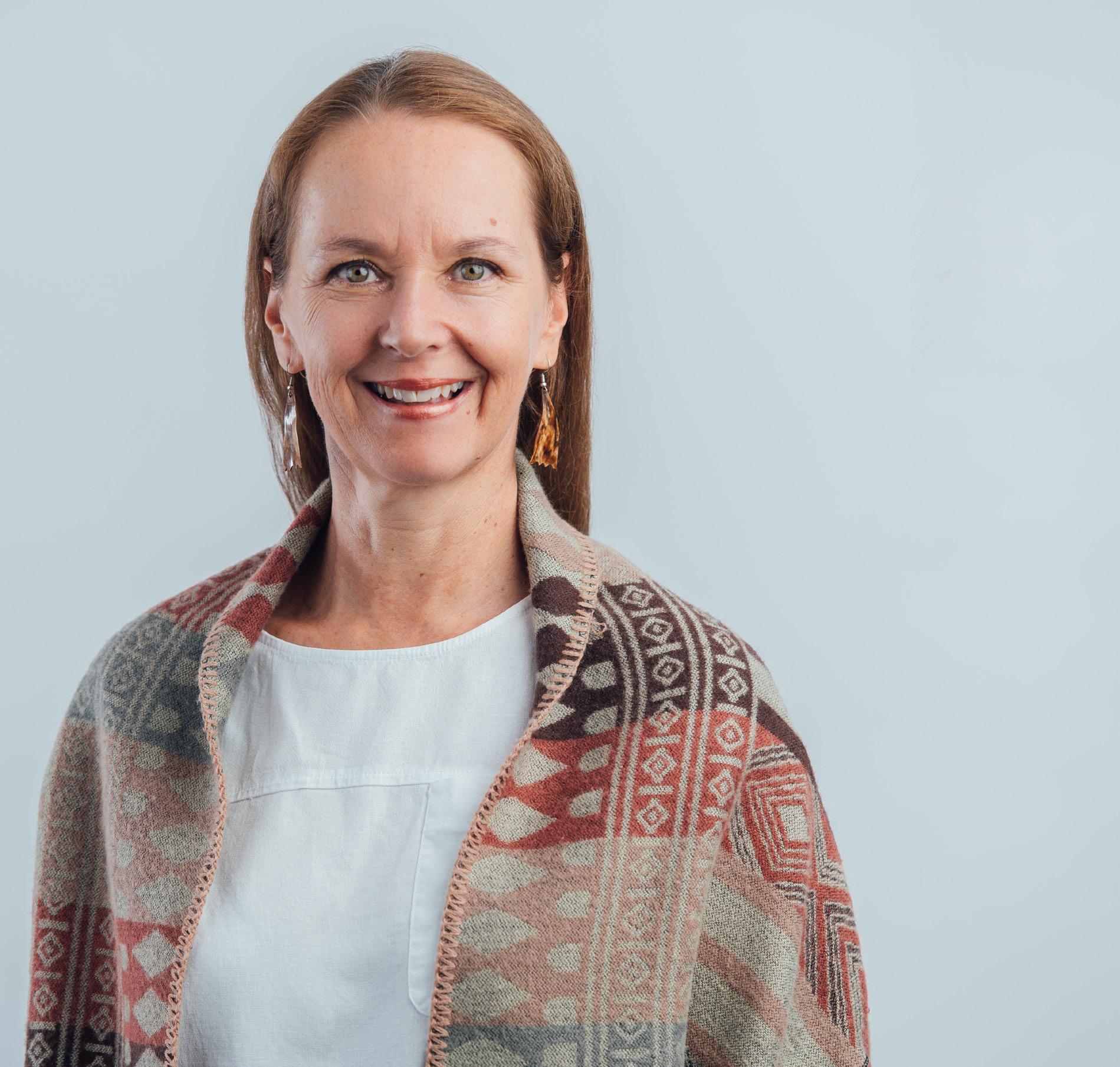
SAMED was formed in 1985 as a not-for-profit (NPO) voluntary association by a collective of local manufacturers, united by the objective of engaging with regulatory authorities and calling for the registration of medical technologies. Today, the association prides itself on providing the South African MedTech and in-vitro diagnostics (IVDs) industry with a collective, objective, and credible platform for engagement with stakeholders.

Africa Outlook (AO): Could you introduce us to the association and explain your vision and ongoing mission?







Tanya Vogt, Executive Officer (TV): MedTech plays a vital role across the continuum of patient care (prevention, screening, diagnosis, treatment and rehabilitation). As such, the MedTech sector is significant in providing effective and efficient healthcare for all South Africans. SAMED’s vision is to partner with our stakeholders to drive the MedTech industry to new frontiers and contribute towards enabling a sustainable healthcare system. Meanwhile, our mission is to enable an environmental, ethical and transformed MedTech industry that ensures patient access to medical technologies.

The world of health never stands still. And neither have we. At every moment that counts, we will be there.
From continuously devising and improving our existing tools and programmes that help assess and optimise efficiencies, reduce cost and increase patient outcomes across healthcare organisations, to contributing to a more resilient and sustainable work environment to ensure all healthcare practitioners focus on what matters most to them, we help to provide the best care for their patients.
At BD, our strategic partnerships across the patient journey, combined with our scale, and 125 years of experience have made us uniquely able to continually advance science and clinical outcomes, caring for patients and healthcare workers.
© 2022 BD. All rights reserved. BD and the BD Logo are trademarks of Becton, Dickinson and Company. All other trademarks are the property of their respective owners
Guerbet South Africa (Pty) Ltd | Co.Reg.No.: 2012/184409/07
Hertford Office Park, Building I, 90 Bekker Road, Vorna Valley, Midrand,Gauteng, 1682
Tel : 010 045 0300
www.guerbet.com/en-za
HIGH QUALITY CONTRAST MEDIA
For enhanced clinical decision-making
SMART INJECTION SOLUTIONS
For safe and efficient injections
INNOVATIVE DIGITAL SOLUTIONS

For heightened patient safety and productivity

Driven by its commitment to advance radiology today and tomorrow, Guerbet Diagnostic Imaging has designed a portfolio of interconnected contrast imaging solutions to enhance your desicion-making at each point of the patient journey from diagnosis, to treatment, to follow-up, so you can focus on what matters most, efficiently improving patient outcomes.
Our membership has grown over time to more than 150 members, including multinationals and small, medium and micro enterprises (SMMEs), distributors, wholesalers and local manufacturers of medical devices, medical equipment and IVDs.
AO: Since its foundation, how has SAMED developed and progressed in terms of its key objectives and the messages it tries to get across?
TV: We have retained regulatory affairs as one of our primary objectives since inception, with a broadened scope. Our engagement with the regulator – SAHPRA, and its predecessor the Medicines Control Council – has strengthened over the years. SAMED strives to contribute to the development and implementation of appropriate, fit-for-purpose and robust regulations. These are essential for a competitive MedTech industry that supplies safe, quality and effective products.
To achieve this, SAMED follows both local and international developments in the sphere of MedTech regulations, keeps members informed, builds their capacity to comply, and submits evidence-based comments on draft legislation and regulations. SAMED eagerly awaits the finalisation of regulations for product registration, which are expected in the coming period.

In the last decade, regulatory harmonisation and convergence has become a growing area of SAMED’s work. These processes seek to align regulatory pathways to facilitate access to innovative, safe and quality MedTech products to South Africa and other markets. SAMED works with global, continental and local entities to identify and shape regulatory best practices and facilitate capacity building.
SAMED also works to drive adherence to ethical marketing principles and business practices, promote access to MedTech for better patient outcomes, and support growth and transformation for sustainability. This is in the interest of not only MedTech companies, but also others in the healthcare system including patients, and the wider country’s socio-economic progress.







SAMED continually provides leadership on the transformation and localisation of the MedTech industry, which are among the factors that facilitate the industry’s growth and sustainability. This is in the interest of MedTech companies and others in the healthcare system including patients, but also the country’s socio-economic progress.
Our partnership with Youth Employment Services (YES) programme has created jobs in our sector for almost 2,000 youth, with help from over 30 SAMED members. SAMED also initiated the Women in MedTech forum that highlights the role of women in our space, and the
 SAMED Board with SAHPRA leadership
SAMED Board with SAHPRA leadership
benefits and potential for the industry to open up more opportunities for women.

AO: What do you find most exciting about South Africa’s MedTech industry?


TV: SAMED is inspired by the attractiveness and sophistication of the South African MedTech landscape and the potential growth of the sector as a meaningful player in the national economy. The localisation of lifesaving and life-changing MedTech is a priority for us. The association helps investors, innovators and commercial partners understand the South African healthcare environment and acts as a link between them and members who can fulfil various roles, such as distribution, manufacturing, servicing and maintenance. We undertake a number of initiatives to advance localisation, including:
• Championing SMMEs which constitute the majority of our members.
• Hosting localisation sessions at our annual conferences and speaking up for investors in the local MedTech industry at third-party events. In this area we collaborate with the dtic, SA Medical Research Council, Medical Device and Diagnostic Innovation Cluster (MeDDIC),
provincial development agencies, Centre for Scientific and Industrial Research and foreign trade missions.
Engaging with sector education and training authorities (SETAs) – including the Health and Welfare Sector Education and Training Authority (HWSETA) and the Manufacturing, Engineering and Related Services SETA (MERSETA) – to educate them about the MedTech sector and role they could play to grow it. SAMED is collaborating with CHIETA, the SETA for chemical industries, with a view to gaining recognition for individuals conducting MedTech regulatory functions. This would entail creating a new occupational qualification, health regulatory affairs assistant, and certified courses that encourage young people to enter our industry.
AO: On the flip side, what are the association’s biggest challenges?
TV: Globally, inflation in the medical/healthcare sphere, including the MedTech segment and health service funding more broadly, is cause for alarm. SAMED is acting on this challenge so that we build MedTech supply chain resilience. Often, MedTech prices are regulated by governments or negotiated with public and private funders in advance. There is little flexibility in our sector to adjust to market conditions. We seek solutions so that manufacturers, suppliers and funders can ensure adequate supplies of essential MedTech.
Supporting the MedTech sector through joint planning with others involved in the delivery of care and greater consultations and collaborations is necessary. As the COVID-19 pandemic has shown, our sector’s work is strategic and essential for the health of the population and our national socioeconomic trajectory.
The slow pace of investment into localisation and the necessary policy development is another challenge. We
could learn much from the automobile industry and the specific incentives the government has provided to that industry. South Africa is import-dependent on MedTech – a precarious position to be in during a regional/global health emergency. We must urgently start to grow critical skills in local manufacturing and strengthen trade into Africa, which presents valuable opportunities.
Project 18 C is an initiative that strives to make the Medical Device Code applicable to all MedTech companies, but it isn’t progressing as quickly as we hoped, as an opportunity to improve ethics across the entire value chain.

Finally, we must navigate the cost of regulatory and certification processes. Over the years, SAMED has invested major resources into differentiating MedTech from pharmaceutical products, and this challenge continues. Innovation in the MedTech industry moves at a much faster pace than pharmaceuticals and the majority of MedTech suppliers in the SA market are SMMEs. Charging MedTech suppliers the same license fees as pharmaceuticals has a significant impact on a MedTech company’s bottom line. Our MedTech members depend on conformity assessment bodies for accreditation, but the lack of these specialist skills and entities turns this into an expensive and arduous process, further affecting supply and associated costs.
SAMED offers members true value and represents their best interests. Its membership encompasses:
• A space for networking with others in the MedTech industry.
• A platform for voicing their collective views to decision makers in government and the private sector.
• Access to business-enhancing information and expertise through an annual conference, webinars, workshops, newsletters and interactive website.
• Industry insights through well-considered position papers and an opportunity to co-create these papers.
• Reputational credit as a signatory to the Medical Device Code of Ethical Marketing and Business Practice.
• Representation to expedite overdue public sector payments for goods and services supplied.
• Participation in an exciting new venture to collect industry data and generate invaluable business intelligence.








TV: We are seeing an increasing appreciation for the value of MedTech and its contribution to healthcare is allowing SAMED and its members to speak up on its behalf. We are elevating MedTech with confidence, helping to shape and strengthen relationships. In the process, we are also witnessing a growing understanding and need for stepping up ethical marketing and business practices, which is where the Medical Device Code plays a key part.

Equity, diversity and inclusivity (EDI) is another major trend. Broad-based Black Economic Empowerment (B-BBEE), changes to procurement regulations and their link to employment equity targets for our sector is also bringing change. SAMED continually builds members’ skills so they can comply and meaningfully contribute to socio-economic transformation.

























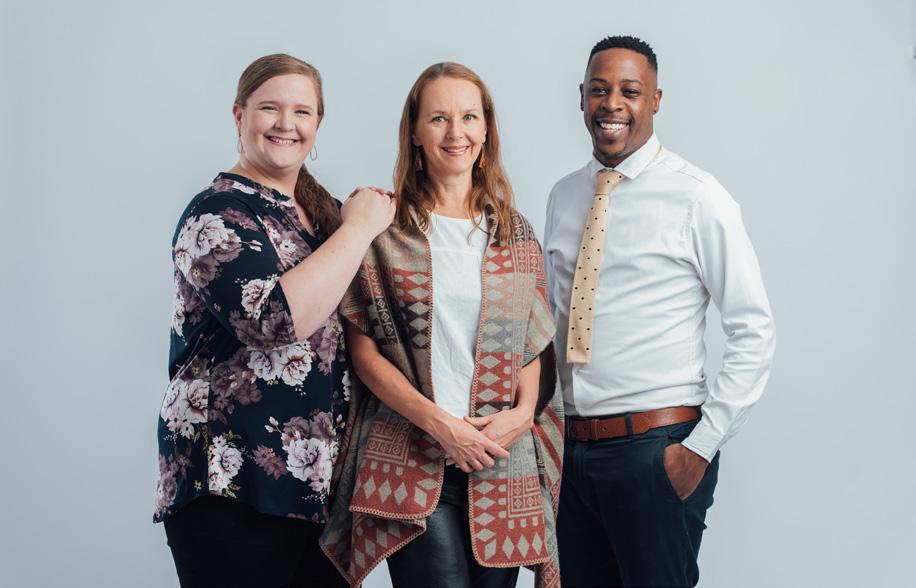
Finally, environmental, social and governance (ESG) and our industry’s impact on climate change are hot topics within MedTech, and SAMED is embarking on awareness and education initiatives.
AO: Finally, how do you see the industry developing across South Africa over the next five years?
TV: I believe we are about to witness exciting progress in local manufacturing which will have positive knock-on effects on our trade exchanges within Africa, spurred on by the Africa Free Trade Area agreement.

We can expect greater regulatory requirements and changes in procurement practices, potentially with the National Department of Health (NDoH) playing a bigger role in terms of procurement. Health technology assessments (HTAs) - a process of assessing the cost effectiveness, appropriateness, potential value and therefore price of MedTech - will become a greater feature of the procurement process, with implementation by the NDOH.
AO: Have you got any events or projects in the pipeline you wish to highlight?
Data with Integrity is a novel SAMED initiative to generate our own primary data on the industry. The name of the programme emphasises our concern to provide reliable, trustworthy information. In addition, we are introducing a Women’s Empowerment Index which will allow our sector to set goals and track progress in creating corporate environments which value diversity and afford women inclusivity and equity. Lastly, SAMED is building capacity to offer certified training on various aspects of our industry, including the Medical Device Code and regulatory compliance.
In the meantime, SAMED will persevere in its efforts to address medical inflation and supply chain challenges. We will likely see greater collaboration between stakeholders and deepen our learnings from the COVID-19 experience that private and public sectors need to work together for the good of our patients.
“WE MUST PERSEVERE IN OUR EFFORTS TO ADDRESS INFLATION AND SUPPLY CHAIN CHALLENGES”
– TANYA VOGT, EXECUTIVE OFFICER, SAMEDWomen in Medtech Forum
AFRICA OUTLOOK is a digital product aimed at boardroom and hands-on decision-makers across a wide range of industries on the continent.

With content compiled by our experienced editorial team, complemented by an in-house design and production team ensuring delivery to the highest standards, we look to promote the latest in engaging news, industry trends and success stories from the length and breadth of Africa.

We reach an audience of 185,000 people across the continent, bridging the full range of industrial sectors: agriculture, construction, energy & utilities, finance, food & drink, healthcare, manufacturing, mining & resources, oil & gas, retail, shipping & logistics, technology and travel & tourism.

In joining the leading industry heavyweights already enjoying the exposure we can provide, you can benefit from FREE coverage across our digital platforms, a FREE marketing brochure, extensive social media saturation, enhanced B2B networking opportunities, and a readymade forum to attract new investment and to grow your business.

To get involved, please contact Outlook Publishing’s Managing Director, James Mitchell, who can provide further details on how to feature your company, for FREE, in one of our upcoming editions.



SIPH’s
Africa is a land of excellence for natural rubber, a crucial raw material for sustainable mobility.
The consumption of natural rubber is inextricably linked to the development of the automotive industry and tyre production. This vast consumption is driven by growth in many emerging markets across Africa, including China and India.
Writer: Ed Budds | Project Manager: Poppi Burkeimpressive figure that was less than 300,000 tonnes 20 years ago. Across the African continent, Ghana has also made promising improvements to its rubber agricultural output, now producing nearly 100,000 tonnes per year.
Today, 95 percent of the world’s natural rubber is produced by small farmers with an average farm size of four hectares each.

Natural rubber demonstrates characteristics that give it a competitive advantage over synthetic rubber: a lower heat generation and a great capacity to recover its original shape. Such qualities are essential for tyres, especially for heavy goods vehicles, agricultural vehicles, aircraft, and for use in civil engineering.
The African natural rubber industry has witnessed monumental expansion and tremendous growth throughout the last two decades.
Historically, rubber
manufacturing started in the Amazonian region of South America in the 19th century before extending to Asia, where about 90 percent of its total production is still recorded today across Thailand, Indonesia, Vietnam, China, India, and many other nations.
Closely following this, Côte d’Ivoire has risen through the rankings, currently reaching the position of thirdworld producer, with an expected 1.5 million tonnes of rubber this year, an
Part of this vast, expansive industry, SIPH is located in West Africa and almost exclusively involved in natural rubber production and processing. Part of SIFCA, a large Ivorian group that produces palm oil, cane sugar, and rubber, SIPH is now moving into the renewable energy sector.
Having spent most of his career in West Africa ensconced in various sectors such as tyre manufacturing, car distribution, and general trade, Marc Genot, Managing Director of SIPH, now finds himself involved in the rubber plantation and processing business.
unwavering mission is the production and marketing of natural rubber from its plantations and partner smallholders across West Africa. We learn more about this indispensable resource with Marc Genot, the Managing Director
ISO 9001:2015
Established in 1977, Sphere Corporation Sdn Bhd (Sphere Corporation) is a highly reputable company that specialises in the design of processing facilities and factories for the crumb rubber industry, design and manufacture of crumb rubber machineries and installation and commissioning of crumb rubber processing facilities.
As a global supplier of crumb rubber machinery, Sphere Corporation undertakes machinery supply on a turnkey basis apart from selling individual machines. The scope of work includes technical assistance, training and troubleshooting services as and when clients require them.

Sphere Corporation skilled engineers have over the years developed a wide comprehensive range of topquality products and provide quality services, supplying to factories in more than 30 countries worldwide.
SPHERE CORPORATION’S EFFICIENT AND ECONOMICAL PROCESSING LINES PRODUCE:
• Technical Specified Rubber (TSR 3L/5L, TSR 10/20, TSR CV 50/60)
• Ribbed Smoked Sheets (RSS)
Mainline Equipment:
• Slabcutter
• Macerator
• Creper
• Dry Mode Prebreaker
• Granulator
• Hammerhill
• Mobile Coagulum Crusher
• Pelletiser (Coarse, Intermediate, Fine)


• Rotary Cutter
• Shredder
• Trolley Dryer
• Twin Chamber Press
• Twin Screw Prebreaker
• Homogeniser
• Air Scrubber
• Trolley Cleaning Station
• Rubber Sheeting Battery
The all-round services provided by Sphere Corporation:
Engineering Services
Providing design of processing layout and engineering drawings for in-factory civil works, in factory electrical cabling and water piping.
Installation and Engineering
Providing experienced and skilled mechanical and electrical supervisors to supervise installation of the processing facility.
Commissioning Services
Providing experienced commissioning engineers to lead the commissioning of the processing facility.

Trouble Shooting Services
Providing assistance in solving mechanical and processing problems.
Training
Providing in-house and on-site training for factory personnel.
Turnkey Services
Providing full scope turnkey services in design, supply, installation and commissioning of processing facilities and individual machines.
Research and Development
Working together with customers to understand their needs and continuously perform research and development for further improvement and efficiency of the machines.


“I’ve remained interested in the plantation business since 1986 when I was buying rubber for a tyre factory based in Port-Harcourt. However, it took 18 years until I had an opportunity to fully join the industry, first in Ghana in 2004, then in Côte d’Ivoire back in 2011,” he recalls.
SIPH’s rubber activities currently span Côte d’Ivoire, Ghana, Nigeria, and Liberia, with a total of 60,000 hectares of exploited plantations, 10 processing factories, and a workforce of 11,000 employees.
“We are the largest African rubber producer with a total processed rubber nearing 400,000 tonnes this year,” Genot states.
“SIPH is a French company headquartered in Courbevoie, near Paris, where our rubber trading activities are hosted. We also have an office in Singapore close to our main customers,” he adds.
Natural rubber is produced by rubber trees (hevea brasiliensis), which take six to seven years to start tapping after planting and will continue to produce for about 30 to 35 years if properly managed. A
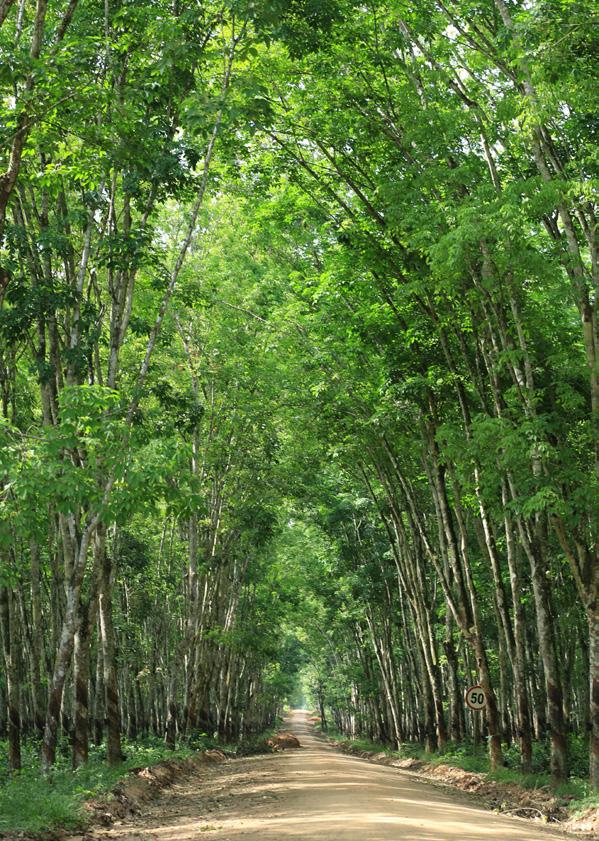
Marc Genot, Managing Director: “Upstream, our supply chain is complex with many farmers delivering their crops to us. We have a close relationship with them, as we provide capacity building programmes and offer various services such as farm management, collection at the farm gate, and payment via mobile money and bank transfer. We operate collection centres in the production areas to be closer to them, and then transport the rubber from there to our nearest factories.
“Security for such a complex supply chain is also important to avoid stealing. We have therefore a special partnership with our transporters.
“Most of our processing equipment is imported from Asia as per our specifications, with long lead times. This requires excellent communication to maintain our factories on top levels.
“Downstream, there is virtually no second transformation for rubber in West Africa, which we regret and hope will change one day! Therefore, our rubber goes out to the world, especially to Europe and the US, as we remain close compared to Asia. African ports are not always as efficient as the rest of the world, and we need to have a very close relationship with shipping lines and port authorities to deliver the right service to our customers.”
healthy rubber tree is tapped every four to six days to extract latex, which contains natural rubber, from the bark.

“Our clients are mostly tyre manufacturers and rubber traders as 75 percent of the natural rubber in the world is consumed by the tyre industry.
We deal with market leaders such as Michelin, Bridgestone, and Continental among others,” Genot explains.
SIPH is different from many of its competitors as it owns several plantations. The company prides itself as a collective of experts in the
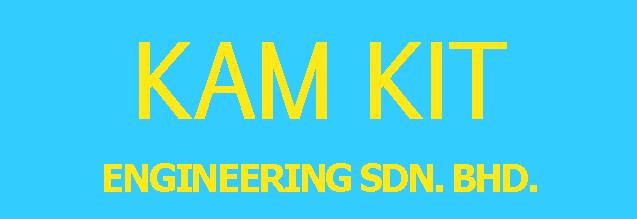
Established in 1979, Kam Kit Engineering is a pioneer and specialises in manufacturing natural rubber processing machinery. Being one of the world largest rubber process machinery suppliers, Kam Kit Engineering delivers multinational clients the finest rubber processing machinery and services.
We can:
• Provide clients with efficient and effective rubbber machinery (processing line)
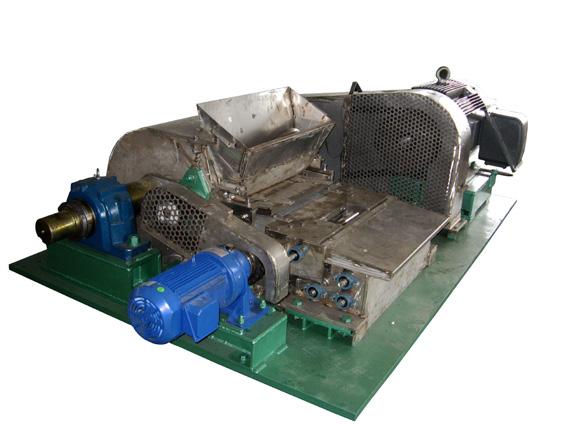



• Design and manufacture client’s custom-made machineries to fit specific needs
• Perfect client’s product qualities
• Be a trusted and experienced partner
mctang@kamkit.com.my / kamkit@kamkit.com.my
www.kamkit.com.my
maintenance of rubber trees and, therefore, knows exactly how to take care of them.
“We also provide extension services to farmers to build their capacity and run their farms efficiently. Overall, we provide service to about 80,000 farmers.”
This service enables SIPH to purchase rubber mostly from the farm gate, without dealing with traders and to deliver the best possible income directly to the farmer. As a result, the company doesn’t have any challenge complying with the new EUDR regulation that imposes traceability to the farm, while most of SIPH’s competitors, who deal with several layers of traders, will now have to review their



purchasing system to comply. As well as its excellent relationship that has been curated with rubber growers, SIPH has been involved in sustainability programmes since 2007. This is reflected by the impressive ratings SIPH holds with SPOTT and Ecovadis, its d’Ivoire, and and an Integrated Management System which will be completed by the end of the year.
“We are founding members of the Global Platform for Sustainable Natural Rubber (GPSNR) since its inception in 2018 and are currently holding a position in its executive committee where we stand as co-chair,” Genot acclaims.
“We are not upgrading our sustainability practices because GPSNR is asking for it, we are doing it because sustainability is in our DNA.”
“WE ARE NOT INCREASING OUR SUSTAINABILITY BECAUSE GPSNR IS ASKING FOR IT, WE ARE DOING IT BECAUSE SUSTAINABILITY IS IN OUR DNA”
– BERTRAND VIGNES, FORMER MANAGING DIRECTOR, SIPH








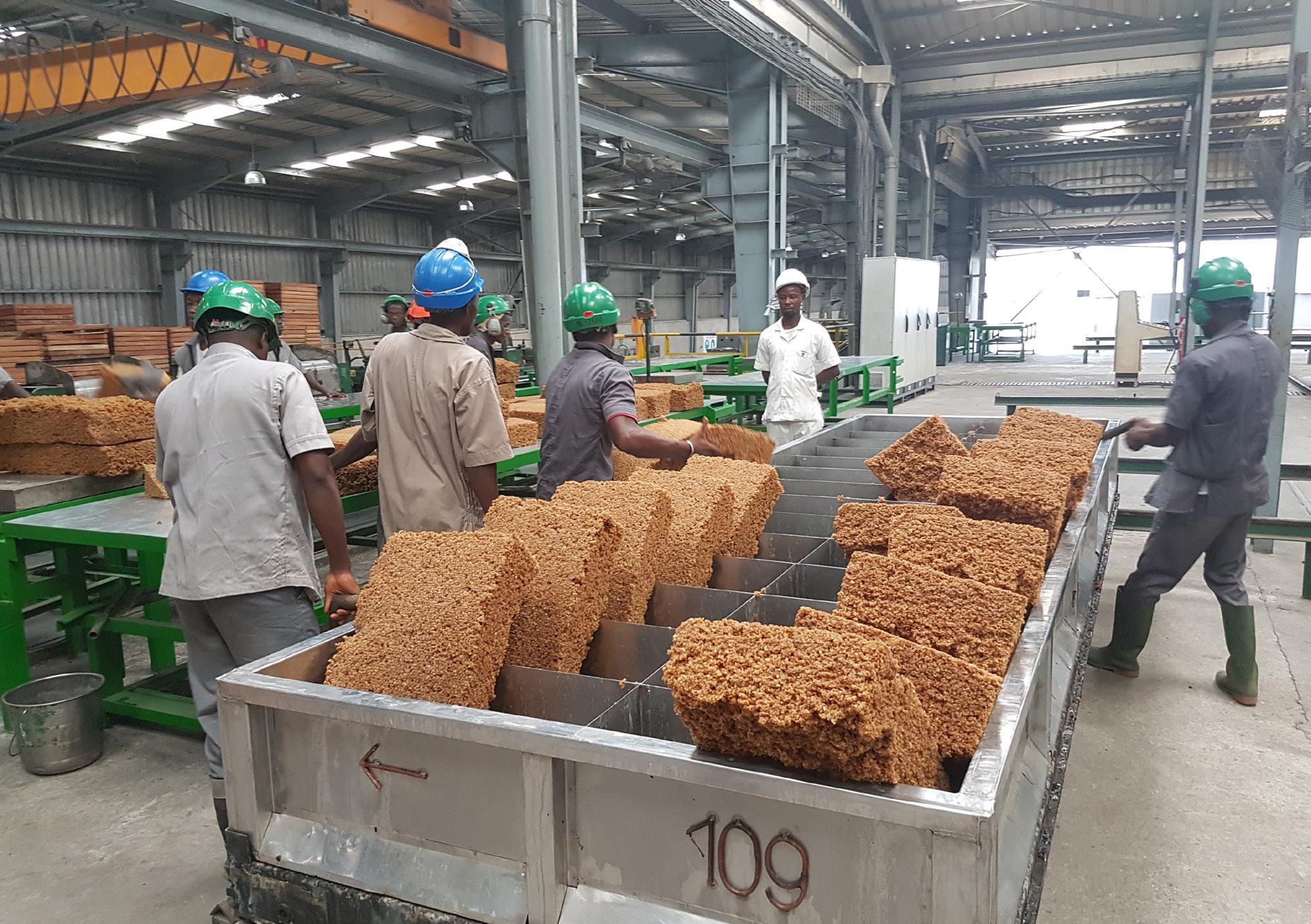
SIPH’s main project in the short term, is linked to the new EUDR regulation and the evolving definition of traceability standards, aimed at ensuring its supply chain is deforestation-free. This initiative is carried out in collaboration with Preferred by Nature and SOCFIN.

“We intend to share this standard with our competitors to ensure greater sustainability in our industry. We will be 100 percent ready by the close of 2024 to meet all EU law requirements,” Genot says.
The first of several steps that must
–be taken to remain compliant is to continue monitoring deforestation and fighting against it. Since 2020, SIPH has partnered with Proparco to implement a satellite monitoring deforestation and bushfires.
The key objectives of this programme are to have a clear view of where deforestation happens and to
identify high and low-risk areas.
“We can ensure that satellite monitoring alerts are accurate and are trying to share the results with the local authorities and Apromac, the local rubber sector body. We now know where the risks of deforestation are the highest in our area,” he elaborates.
“WE WILL BE 100 PERCENT READY BY THE CLOSE OF 2024 TO MEET ALL EU LAW REQUIREMENTS”
BERTRAND VIGNES, FORMER MANAGING DIRECTOR, SIPH
For years, SIPH has been buying directly from smallholders, thus ensuring traceability of the supplied raw material. The company therefore decided to extend the survey by taking the full farm’s coordinates and identifying years of planting.
The next step will be to control supplies made by farmers that should not exceed the potential of the farm, and to classify SIPH’s suppliers into high and low-risk categories so that additional controls can be enforced where necessary.

Elsewhere, SIPH was involved in the esteemed Rubberway initiative
from its inception, where around 15,000 farmers were interviewed and continue to be interviewed to carry out social and environmental practices diagnosis in the supply chain. This diagnosis was shared in local GPSNR platforms animated by SIPH in Côte d’Ivoire and Ghana to find, with relevant stakeholders, solutions that are shared with the capacity-building networks.
Using these sustainable initiatives as a springboard, SIPH aims to provide the market needs, while contributing to socio-economic development through optimisation

of the cultivated farmed areas, together with promoting rubber and smallholder support.
In doing so, SIPH continues to thrive as a leader in sustainable management and production efficiency, as well as sustainably growing the company’s agricultural and industrial activities in parallel.


Africa Outlook, APAC Outlook, EME Outlook, North America Outlook, Mining Outlook and Healthcare Outlook are digital publications aimed at boardroom and hands-on decision-makers, reaching an audience of more than 800,000 people around the world; spanning the full range of industrial sectors.




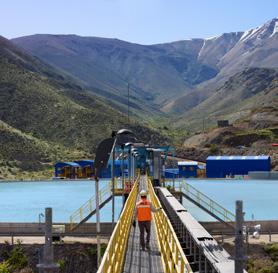


With original and exclusive content compiled by our experienced editorial team, we look to promote the latest in engaging news, industry trends and success stories from across the globe.
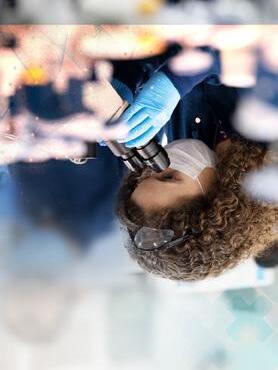


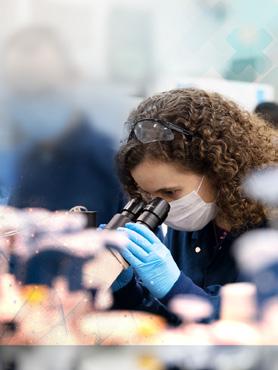


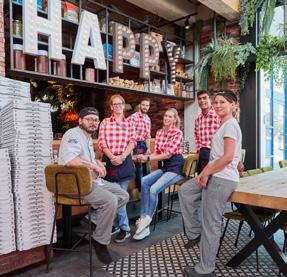
Your company can join the leading industry heavyweights enjoying the free exposure we provide across our platforms with a free marketing brochure, extensive social media saturation, enhanced B2B networking opportunities, and a readymade forum to attract new investment and to help you grow your business. Visit www.outlookpublishing.com/get-involved for details on how your company can feature for free in one of our upcoming editions.
www.outlookpublishing.com/get-involved

















Building on the global success of our regional titles – Africa Outlook, APAC Outlook, EME Outlook, and North America Outlook – Outlook Publishing is proud to introduce a platform dedicated to the mining and resources sector.

As mining organisations worldwide confront unprecedented change, embracing technological innovations and incorporating critical environmental sustainability agendas, now more than ever is the time to showcase the strides being taken in this dynamic sector. A multi-channel brand, Mining Outlook brings you the positive developments driven by organisations across the global mining industry through our various platforms. Discover exclusive content distributed through our website, online magazine, social media channels, and dispatches delivered straight to your inbox with a bi-weekly newsletter.
Through this compelling new venture, we foreground the movers and shakers of the industry. To participate as a featured company and join us in this exciting endeavour, contact one of our Project Managers today.
www.mining-outlook.com


We speak to Shammy Luvhengo, CEO of Ndalamo Resources, as he reflects upon the company’s evolution and explores its environmental goals for coal production in South Africa
 Writer: Rachel Carr | Project Manager: Joshua Mann
Writer: Rachel Carr | Project Manager: Joshua Mann
As a 100 percent black-owned mid-tier coal producer, Ndalamo Resources focuses on investment opportunities in the South African mining sector. The company was established in 2013 by amalgamating various mining and financial sectors with sustainable, socially responsible professionals and
entrepreneurs.
The impetus for Ndalamo Resources arose from the requirements of a black community empowerment charter. Now in its 10th year, the company has evolved from an investment enterprise to the fully operational business it is today. The company began with
the acquisition of New Clydesdale Colliery from Exxaro; it then became the partner for Universal Coal. Strategically, the two companies decided to consolidate all black economic interests within one, eventually emerging as Ndalamo Resources.

“It all happened over the last 10 years. We have grown through acquiring mines from Exxaro and other projects. That is how the company was formed, and I am proud we will soon be celebrating our 10th anniversary.
“We have the internal skills technically, corporately, financially, and otherwise where we are now a functioning coal mining company. Obviously, we are trying to grow our footprint to be much bigger than it currently is,” introduces Shammy Luvhengo, CEO of Ndalamo Resources.
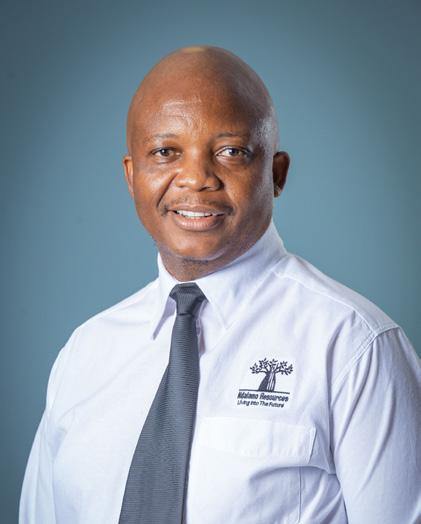
Partnering with Universal Coal, in a 51/49 percent split in favour of Ndalamo Resources, there are presently two actively operating mines, and one in care and maintenance and the other a prospecting project called Eloff, which will be operational in the next six months, and the Arnot South project.

Shammy Luvhengo, CEO: “Although we do not have an employee ownership plan yet, we carry out salary reviews every two years, benchmarked across the industry. The majority of our employees are within the 75 percent quintile in terms of the salary scale, so I believe we pay well from a salary perspective. We are also in the process of developing a much broader employee initiative scheme.
“We pay annual bonuses, but only if finances allow. We are now focused on the wellness of employees in the sense that we are now making sure we have medical aid and life cover for employees. Considering some of the suggestions from our HR department, we would like to see how we can do better. I am quite pleased that we can match what the industry is paying out there, if not better it in some instances. We will continue looking at the best way to incentivise our employees going forward through the bonus structure and ownership schemes.”
With 25 members of staff currently employed by Ndalamo Resources, the wider operations have indirectly created employment opportunities for around 4,000 people, including contractors within the three operations. Additionally, the company is making fortuitous strides within the community in terms of projects and ecological commitments.
The Eloff project is reopening subject to utility provider Eskom, the largest electricity producer in Africa, committing to the coal sale agreement. Despite the present uncertainty, Luvhengo is excited to return to Delmas, a small town in the Mpumalanga Province, to continue Ndalamo Resources’ investment efforts and uplift and empower the local community.
“It can be a big project; we need to get the right synergies on the logistics side. It is one of the most extensive resources in the area, close to all of the towns in Springs Coal Field, and we intend to make it much more of a larger scale operation going forward,” he reveals.



It is a project that Luvhengo is particularly proud of, and one that Ndalamo Resources is more likely to implement in the near future. Of course, the company is also honoured to be involved with various community projects.
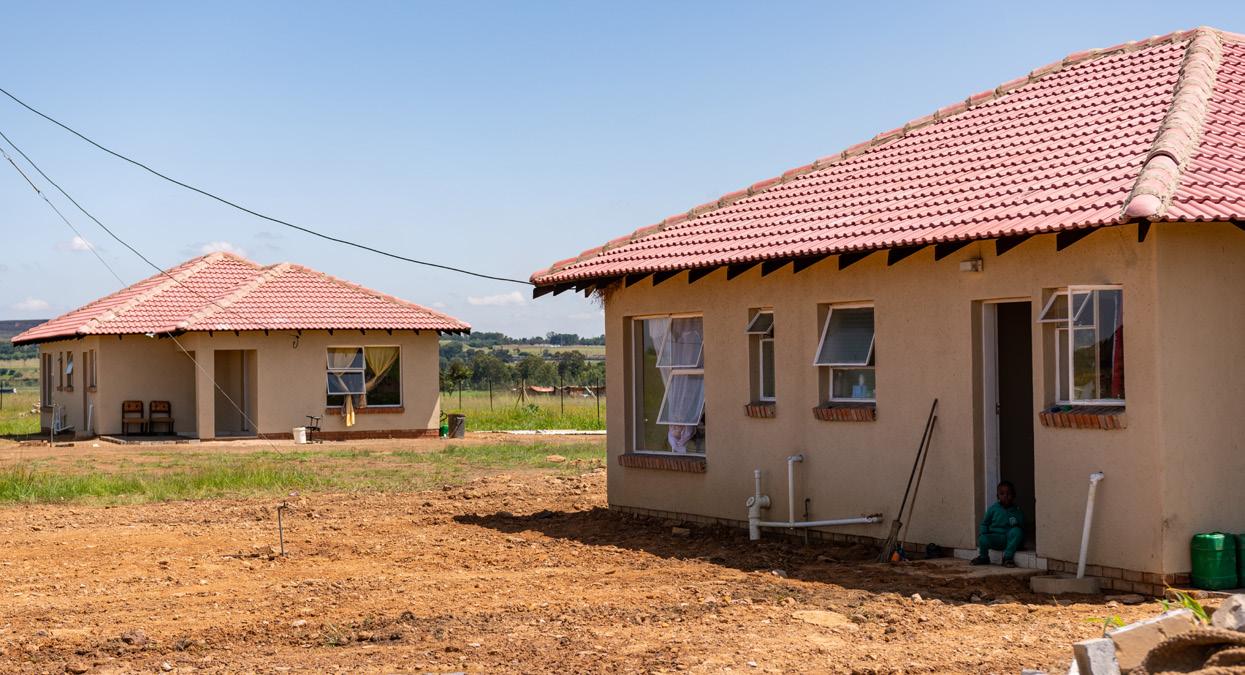
“Most of what we are currently working on regarding the neighbourhood is intertwined with what our mines are doing. We pride ourselves on being the first company to establish community-based trucking initiatives where we uplift local entrepreneurs and enable them to have long-term trucking
contracts within our operating mines.”
All projects are managed sustainably, which Luvhango feels is one of the best initiatives to come out of the coal industry. Sustainability is part of the company’s DNA, especially when Ndalamo Resources began work in Delmas.
Houses built for the local community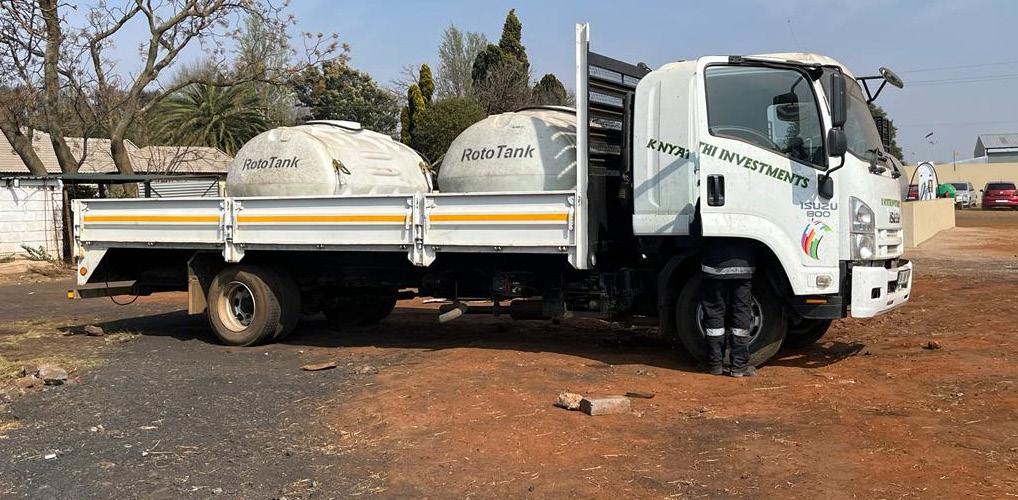










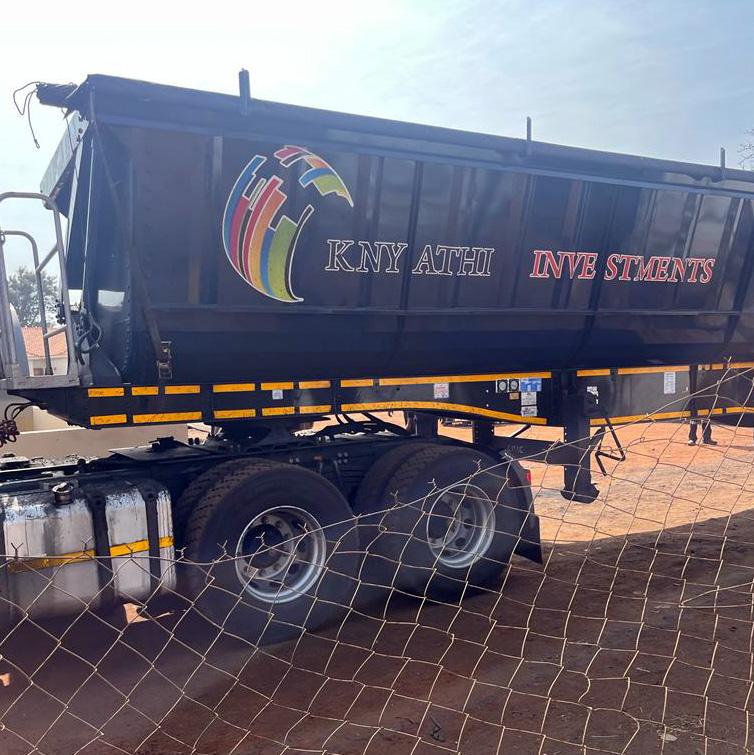
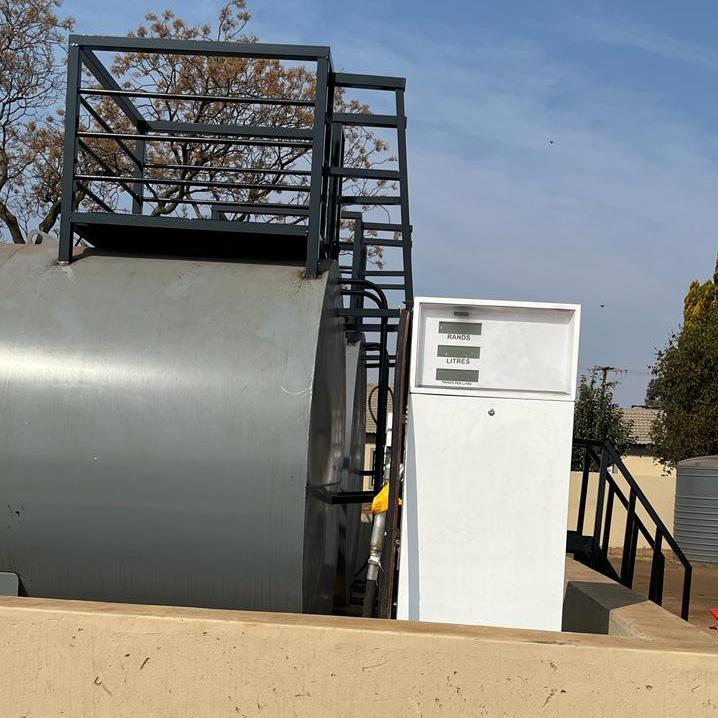
“We definitely want communities to have much more exposure and benefits out of where we operate, not just superficially, but in literal good terms.”
Environmental objectives for Ndalamo Resources are closely tied to the energy transition. Any obligations are premised on the fact that the company operates within the mining sphere and that excavation and extraction are achieved in the most ecologically responsible and sensitive manner.
“We are the company that takes environmental management very seriously, to the point where part of our performance must be about how we have mined and still looked after the
environment. That means we need to be active and obedient in running our rehabilitation processes; it cannot be an afterthought, but part of the business imperative,” Luvhengo outlines.
It was late last year when Ndalamo Resources established a green energy business that must be profitable in the long run. That helped the company chase carbon neutrality – its target regarding sustainability and climate change.
“Our aim is to ensure that we are carbon neutral in the next 10 years according to our latest environmental, social, and governance (ESG) framework. We are ESG conscious and have commissioned our first ESG report that sets the targets which will become part of our business targets as we advance,” he adds.

“WE HAVE THE INTERNAL SKILLS TECHNICALLY, CORPORATELY, FINANCIALLY, AND OTHERWISE WHERE WE ARE NOW A FUNCTIONING COAL MINING COMPANY. OBVIOUSLY, WE ARE TRYING TO GROW OUR FOOTPRINT TO BE MUCH BIGGER THAN IT CURRENTLY IS”
– SHAMMY LUVHENGO, CEO, NDALAMO RESOURCES

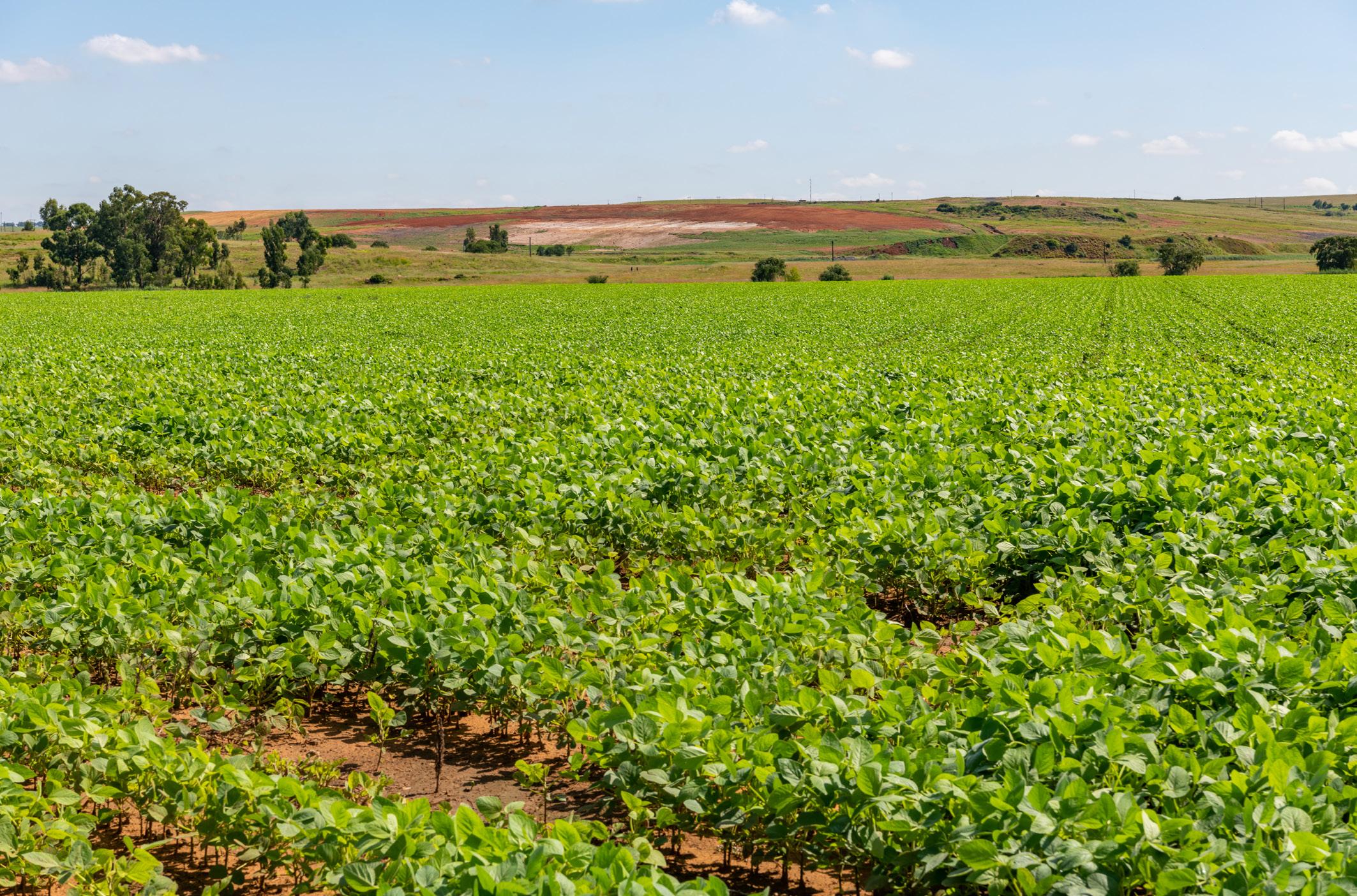 New Clydesdale Colliery before rehabilitation
New Clydesdale Colliery after rehabilitation
New Clydesdale Colliery before rehabilitation
New Clydesdale Colliery after rehabilitation
Inayo Mining is a resource division company. Formed as a result of a successful joint venture partnership between Inala Mining Services and Ayona Mining, an SMME company Inayo Mining was established in 2017. A Level 2 BBBEE rated company, with 51 percent black woman ownership. With our unique model in the mining industry, the company aims to merge the capacity of the various partner to deliver value to the client.

We operate in the mining industry and provide an array of services including opencast mining, mine rehabilitation, extra large mining plant hire, component refurbishment, mining equipment, and repairs.


Our current operations are based in Emalaleni coal fields with plans to extend beyond this basin in the near future. Consistent with our strategic intent to grow our geographical footprint throughout South Africa.

Our mission is to be the preferred mining partner in the industry with exceptional service and quality services.


Together we strive to be recognised as the preferred partner in the mining industry through competitive pricing, professional service, and safety as our highest priority.

Integrity
Entrepreneurial Spirit
Building Relationships
Respect
inayo.co.za
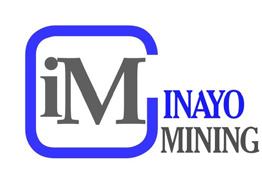
Alongside sustainability and community projects, the key principles of broad-based black economic empowerment (B-BBEE) also guide Ndalamo Resources’ commitments.
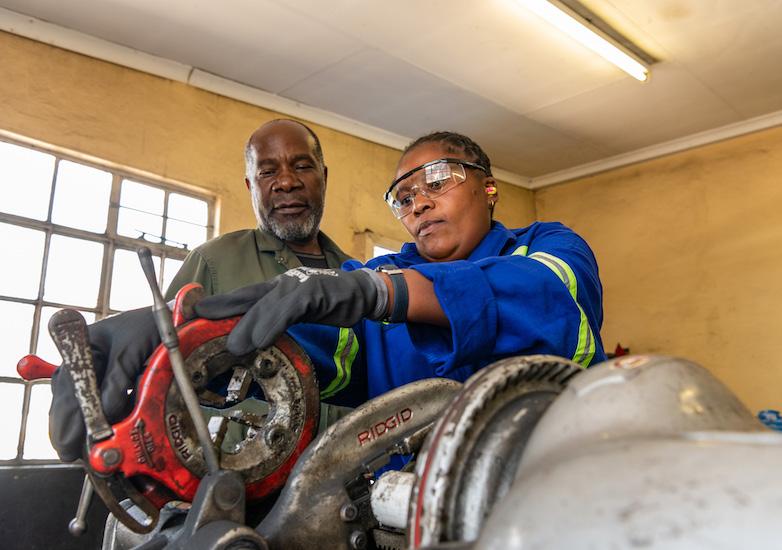
“I was pleasantly surprised that where we are operational, we received Level 1 certification in terms of B-BBEE Department: Trade Industry and Competition (DTIC) codes of good practice for the past financial year,” says Luvhengo optimistically.
Ndalamo Resources has a genuine and balanced approach when it comes to doing the best it can in business in terms of empowerment from a broad-based perspective and sustainable development, regarding how the company onboards suppliers, monitors this onboarding, and helps them develop into sustainable businesses going forward.
“Our initiatives have gotten us to the top spot, and I think it’s a measure of much work that the team has to
Ndalamo Resources aims to minimise any adverse environmental impacts that may occur from mining activity and promote efficient use of resources.
Environmental impacts are identified, and plans are developed, implemented, and adhered to. Reports and techniques to address water management, biodiversity management, waste management, air quality management, energy consumption, and greenhouse gas (GHG) emissions are constantly in use to ensure sustainability.
Ultimately, the goal is to go beyond compliance with environmental statutory requirements. New Clydesdale Colliery – which has successfully rehabilitated the historic Valkrantz opencast pit section, Ubuntu Colliery, and North Block Complex have been granted all relevant environmental licences to operate.
Environmental monitoring reviews, including inspections, risk assessments, internal audits, independent audits, and the processing and analyses of ecological data, are conducted regularly to assess and generate sustainable mitigation plans.
New Clydesdale Colliery, Ubuntu Colliery, and North Block Complex have obtained 2015: ISO 14001 Certification for Environmental Management System, and Eloff Colliery has environmental authorisation in terms of the NEMA Act granted for Phase 1 and Phase 3. A water use licence for Phase 3 has also been granted.
No major or reportable environmental non-compliances have occurred at Ndalamo Resources’ operations or projects.
This survey practice was established in 1982 by Eugene Pretorius to provide a comprehensive survey solution to smaller mining and quarrying enterprises, who did not have the establishment to employ full-time surveyors.
Eugene Pretorius & Associates (EPA) was re-established in September 1993 together with Stephan Museler and today forms part of the Pretorius Group of Companies.
Over the years EPA Survey has maintained a competitive edge by utilising state of the art technologies. These technologies are Trimble GPS, robotic total stations, terrestrial static laser scanners as well as airborne LiDAR and Mobile LiDAR Mapping

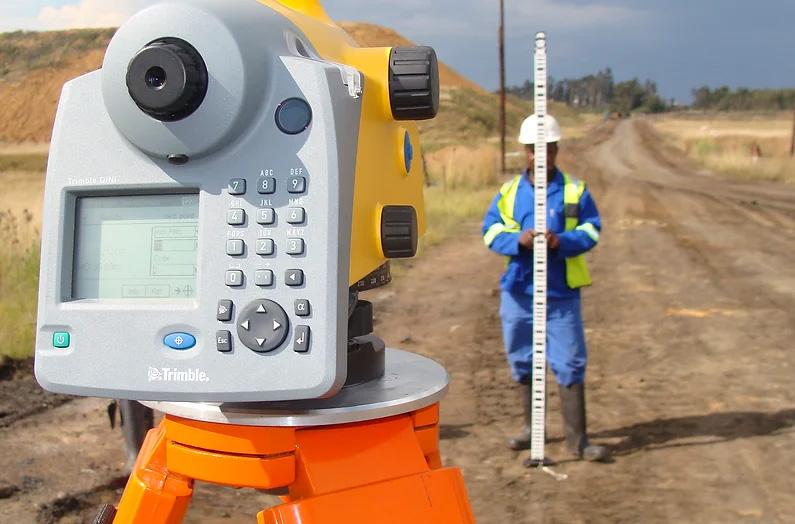
Systems. EPA has recently acquired its RPAS operators certificate from the South African Civil Aviation Authority which will assist our clients with aerial photogrammetry.
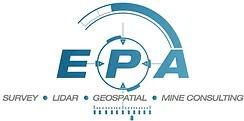
The company’s competitive edge is further advanced by a full geological, mine planning and technical services team who employs the latest technology in the form of two Robertsons

Geologging wireline logging unit and a ceasium-vapour magnetometer.
EPA’s qualified surveyors, geologists and highly skilled technical staff together with advanced technologies forms an effective and fully integrated mine technical solution offered into the mining,construction and engineering
put in to ensure we find ourselves a Level 1 supplier,” expresses Luvhengo.
Priorities for the year ahead include Ndalamo Resources becoming a respected mining business based in South Africa with a global reach, offering various commodities in addition to coal.
“We definitely want to achieve 10 to 15 million tonnes per year in coal sales, hopefully adding one or two other commodities to that,” Luvhengo outlines.
Primary objectives include creating sustainable value for all stakeholders alongside equity providers, employees, and communities. Furthermore, Ndalamo Resources’ plans for growth mean retaining profit

• Implementing operating models to integrate and sustainably operate small-to-medium-sized mines profitably.
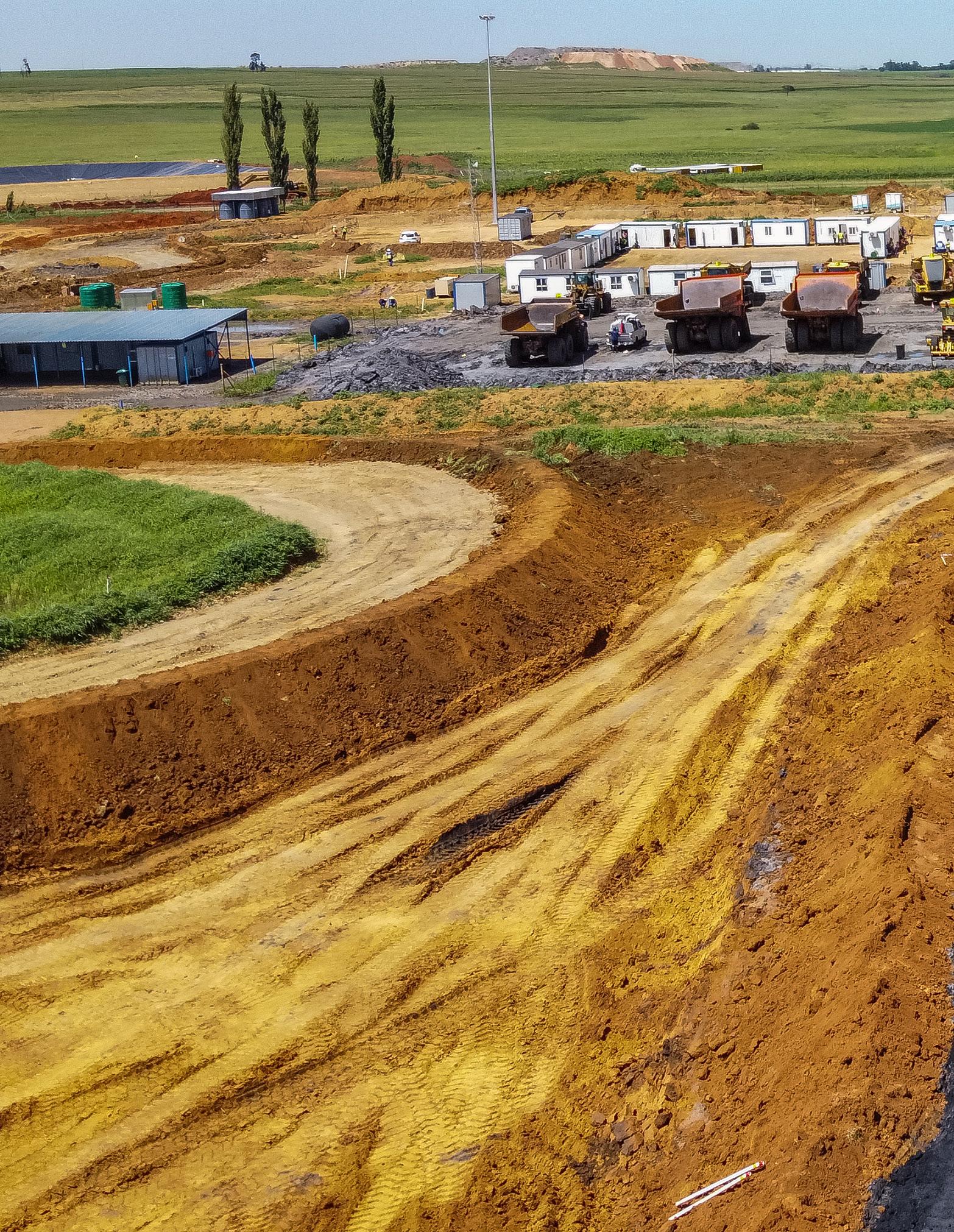
• The operating model, which has led to the successful acquisition of various mines from larger mining companies, following a thorough assessment and redesign of operational models where necessary.
• Conducting operations under a social responsibility framework that ensures the sustainability of all stakeholders, whilst meeting the economic returns expected by capital providers and complying with prevailing regulatory requirements.

margins through focused costcutting interventions.
Growth will also be achieved by acquiring and consolidating adjacent assets that have a strategic fit.
“Organic production growth will additionally come from our existing assets by increasing sales out of the North Block Complex, New Clydesdale Colliery, and Eloff-Kangala Extension, as well as introducing new investment opportunities into the business and diversifying out of coal into other commodities,” shares Luvhengo.
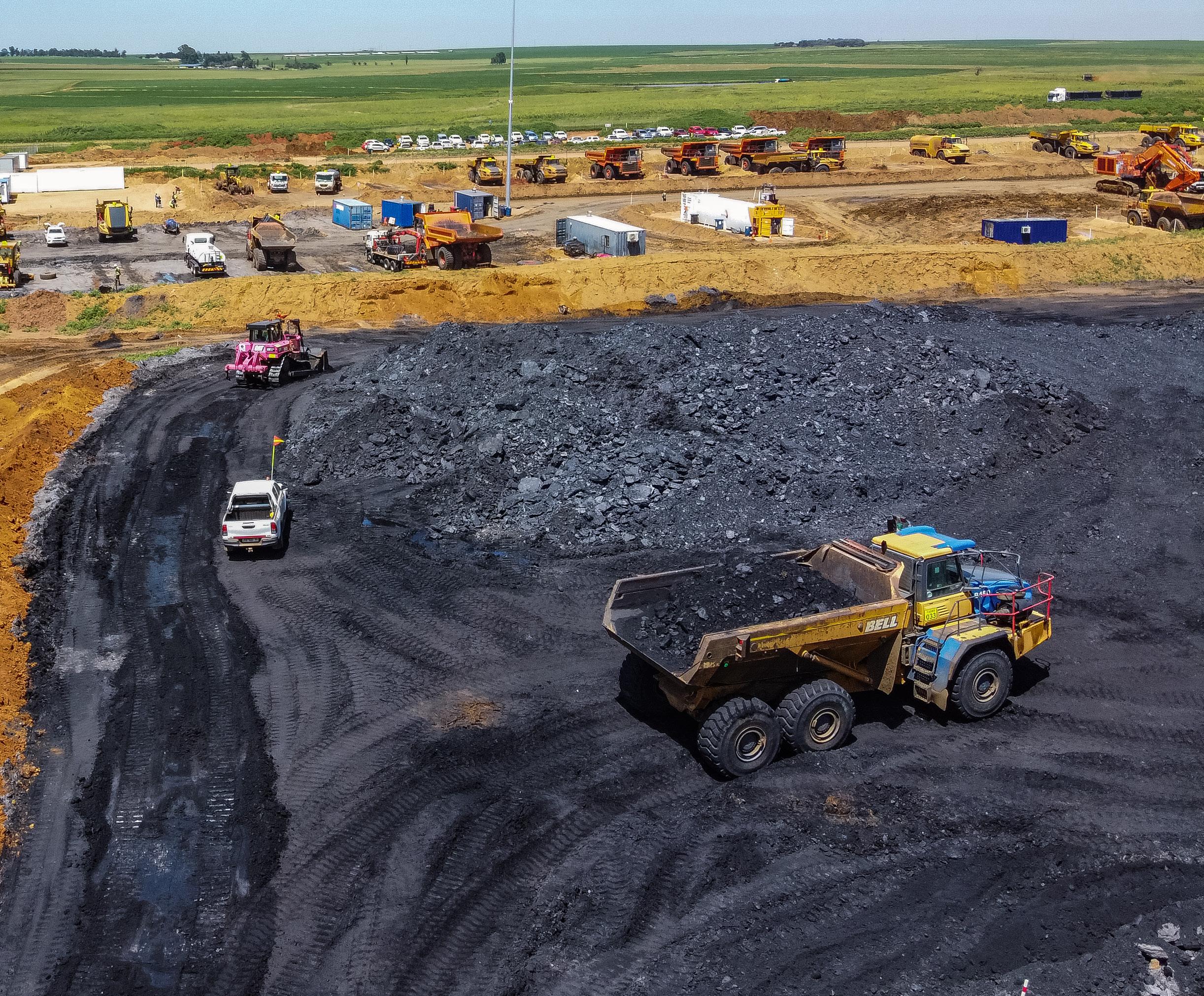
A mission closer to home is to provide socio-economic development opportunities for Ndalamo Resources’ employees,
empowering previously disadvantaged members of host communities with skills to advance in areas of the company’s operations with technical and business development through mentoring and coaching.
“We want to be a company that attracts the best skills for black people in the market and is known for giving people an opportunity to show their talent to create an atmosphere where people can excel in what we bring them here to do,” Luvhengo explains.
Upskilling current employees in areas where improvement is needed is important to Ndalamo Resources as it gives the workforce an opportunity they never thought they would have,
by ensuring that any progress is monitored; moreover, guiding them towards various career paths within the organisation is equally as crucial.
Ndalamo Resources recognises that with stakeholder interactions, it is able to achieve the goal of developing sustainably and contributing constructively to society.
“WE DEFINITELY WANT COMMUNITIES TO HAVE MUCH MORE EXPOSURE AND BENEFITS OUT OF WHERE WE OPERATE, NOT JUST SUPERFICIALLY, BUT IN LITERAL GOOD TERMS”
– SHAMMY LUVHENGO, CEO, NDALAMO RESOURCES
The executive team of FLSmidth in sub-Saharan Africa, Middle East and South Asia, talk us through the company’s pure play mining strategy, MissionZero sustainability programme, and service footprint across the region
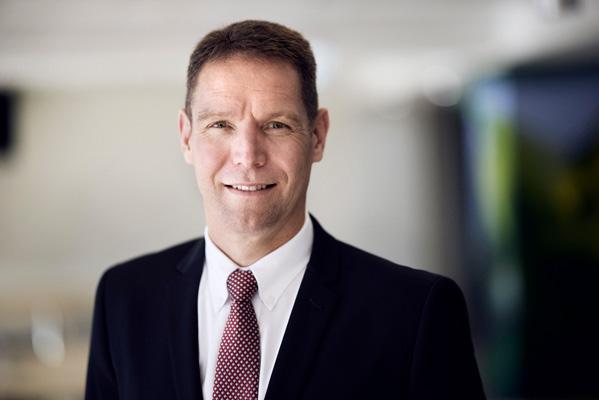

Writer: Jack Salter | Project Manager: Joshua Mann



CORE’26 thus provides a clear path for FLSmidth to build on its core strengths, become an even stronger player in the market, and improve its profitability in mining, where the company offers the full technology and service portfolio for process plants covering key commodities, including copper, gold, nickel, lithium, zinc, rare earth, and iron ore.
“The key priority for FLSmidth in SSAMESA, but also globally, is the pure play mining strategy. It really focuses on our core offering to become a technology and service provider for our clients, so they can become more successful, mine more responsibly, and drive down their carbon emissions to work towards net zero,” de Kock emphasises.
In addition to selling its material handling technology assets to KOCH Solutions, FLSmidth has also made the bold decision to exit coal and not participate in any greenfield coal projects, demonstrating its
commitment to sustainability and developing projects that can drive its MissionZero programme. With MissionZero, FLSmidth has set a target of providing solutions for zero-emission mining and cement production by 2030, supporting a green transition built upon sustainable materials. Indeed, cement and mining operations have a significant impact on the environment, accounting for approximately
10 percent of all CO2 emissions combined.
With growing populations, a larger middle class, and a transition to greener energy, the demand for cement and minerals – and thus the environmental impact – will only increase in the next 10 years.
“The coming decade is not going to be easy, as the growing population and green transition has put more pressure on net zero emission activities,” says Venkatesan Punniyamurthy, Head of Capital Sales for SSAMESA.

The company will continue to leverage its ability to innovate, improve, and produce world-class offerings across the full flowsheet in line with the MissionZero sustainability programme.
Through MissionZero, FLSmidth is taking the lead in bringing the mining and cement industries into a sustainable future without compromising quality or its customers’ commercial competitiveness.



Our capacity to process up to 1,000 tonnes per month will facilitate any project, no matter how big or small.

Tell us your story and we’ll tell the world
www.africaoutlookmag.com/work-with-us


Our services include:

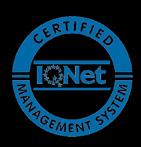
• 3D Plasma • Flame • Laser Cutting
• Chamfered • Bent • Rolled
All to your drawing specifications. bekkersteel.co.za
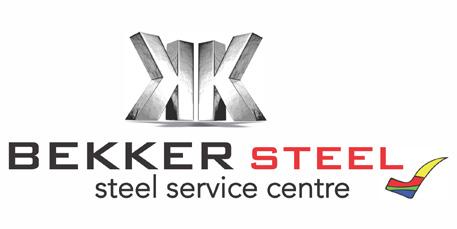
Dunlop Belting Products is South Africa’s largest local manufacturer of conveyor belts. We are a proud South African company and the only majority South African owned conveyor belt manufacturer worldwide.


Dunlop Belting Products’ superior quality conveyor belts are manufactured at the Dunlop manufacturing Headquarters in Benoni, Gauteng – a 57,000 sqm ISO 9001:2015 certified world class production facility that boasts six manufacturing presses for the production of steel cord, plied and solid woven conveyor belts, numerous calenders and completion presses.
Dunlop’s experienced, 450-person strong team of belt technicians and engineers operate 24/7 – on a threeshift system, to produce the highest quality conveyor belts tailored to our customers’ needs and provide economic efficiencies that are critical in today’s operational environment.
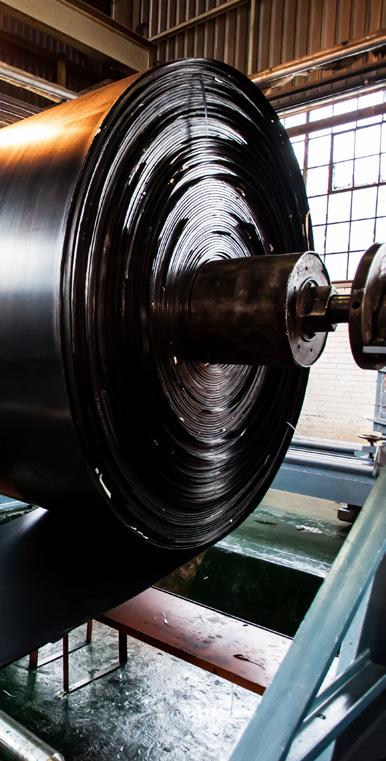

T:

FLSmidth’s ambitions moving forward are to deliver solutions that make it possible to manage zeroemission mining processes and operate zero-emission cement plants.
“Achieving this ambition really requires a paradigm shift in terms of collaboration, innovation, and the adoption of various new technologies in both industries,” Punniyamurthy emphasises.
From FLSmidth’s point of view, this starts upstream, where the company connects with suppliers and even ensures they have decarbonisation goals.
Indeed, the company has a tough internal target in which 30 percent of the suppliers it procures components from will have decarbonisation goals by 2025.
Downstream, meanwhile, it comes from FLSmidth’s products, technologies and innovations, which consume less energy in the mining plants.
“In the area that I’m responsible for, we have products that are definitely more efficient compared to our competitors,” shares Stephan Kruger, Head of Pumps, Cyclones and Valves for SSAMESA.


“We’ve seen improvements of around 15 percent; that’s how we really support our customers, by making sure that they’ve got the best technology.”

Another of FLSmidth’s key focuses in SSAMESA from a growth perspective
is Saudi Arabia, whose Vision 2030 blueprint seeks to transform mining into the country’s third economic pillar.
“The fundamentals in Saudi Arabia are sound. They’ve shown the ability to be able to scale up massive petro chemical projects, they’ve got a legal framework that is geared towards investment in mining, and there’s strong financial backing in the indus try,” observes Alistair McKay, Head of Site and Service Sales for SSAMESA.
In August 2023, FLSmidth was chosen to supply the key technologies and services for Ma’aden’s phosphate 3 phase 1 mine site in the northern province of Saudi Arabia.
The company has partnered with Ma’aden from the onset of the new phosphate mine operations, starting with the initial laboratory testing of samples retrieved from the ore body in 2019, through to the development of the flowsheet and pilot scale testing.
The focus of the collaboration all along has been to ensure the integrity of the flowsheet is maintained while ensuring the technology is well integrated into the overall plant design to deliver the best possible performance.

With this new order, FLSmidth will supply all key equipment associated with the phosphate beneficiation plant, as well as technical support services through the design, construction, commissioning, and ramp-up phases.

The order sets another strong standard for FLSmidth’s MissionZero agenda. In particular, the incorporation of paste thickening and dewatering technology at this important mine site plays a key role in reducing emissions and water spend from the beneficiation process.
“We’ve been in Saudi Arabia for many years and were recently awarded the phosphate 3 phase 1 project, where we are the technology partner,” McKay informs us.
“We are looking to continue that partnership into the future and certainly build on that as a key hub not only within Saudi Arabia but expanding into the surrounding region.”
As well as expanding into the Middle East, FLSmidth is also looking to build out its service footprint in West Africa to be more responsive to its customer base.
Bringing optimal value to clients is a very important focus for the company
as commodity prices cool following a steep rise in recent years, placing pressure on mines to cut costs.
“We’ve seen the inflationary effects starting to come through and weigh quite heavily on our clients in terms of their operating costs, so ultimately, what we do day in, day out must create value,” affirms McKay.

“It’s really about being that partner to our clients in terms of optimising processes, operations, and creating value.”
In order to be more responsive, FLSmidth is looking to add some
“WE HAVE A STRONG ESG, SUSTAINABILITY AND DIGITALISATION AGENDA IN OUR R&D AND APPROACH TO THE MARKET, COMBINED WITH A GLOBAL FOOTPRINT, TALENTED SERVICE PEOPLE AND APPROPRIATE INFRASTRUCTURE, WHICH MAKES US QUITE UNIQUE”
– DEON DE KOCK, PRESIDENT FOR SSAMESA, FLSMIDTH
Sustainability – FLSmidth wants to build a better future for its employees, society, and the planet. It will achieve this by accelerating its MissionZero ambition and achieving its ESG targets.
Service – Through its service offerings, FLSmidth aims to deliver quantifiable value over the life cycle of a mine that advances customers’ sustainability agendas and improves their bottom lines.
Technology – FLSmidth is the complete provider of process and product technology with worldclass sustainable offerings across the full flowsheet. The company prioritises R&D that supports its sustainability ambitions and its customers’ green journey.
Performance – The company will accelerate its profitability and build a healthy business by focusing on core business, simplifying its operating model and balancing risk.
much-needed operational space to its refurbishment business to shorten lead times and deal with larger volumes. The Chloorkop Service Centre is specifically targeted for expansion.
“We’re going to set ourselves up as a centre of excellence for high-pressure grinding roll (HPGR) refurbishment within our global service centre network, and we’re busy investing into potential service centres in Saudi Arabia and Ghana,” adds Nico Erasmus, Head of Professional Services for SSAMESA.
“To bring that OEM difference to our field service and on-site work, we’re also currently expanding our technician certification programme, and we continue to bring unique solutions in terms of how we execute and bring service to the market.”
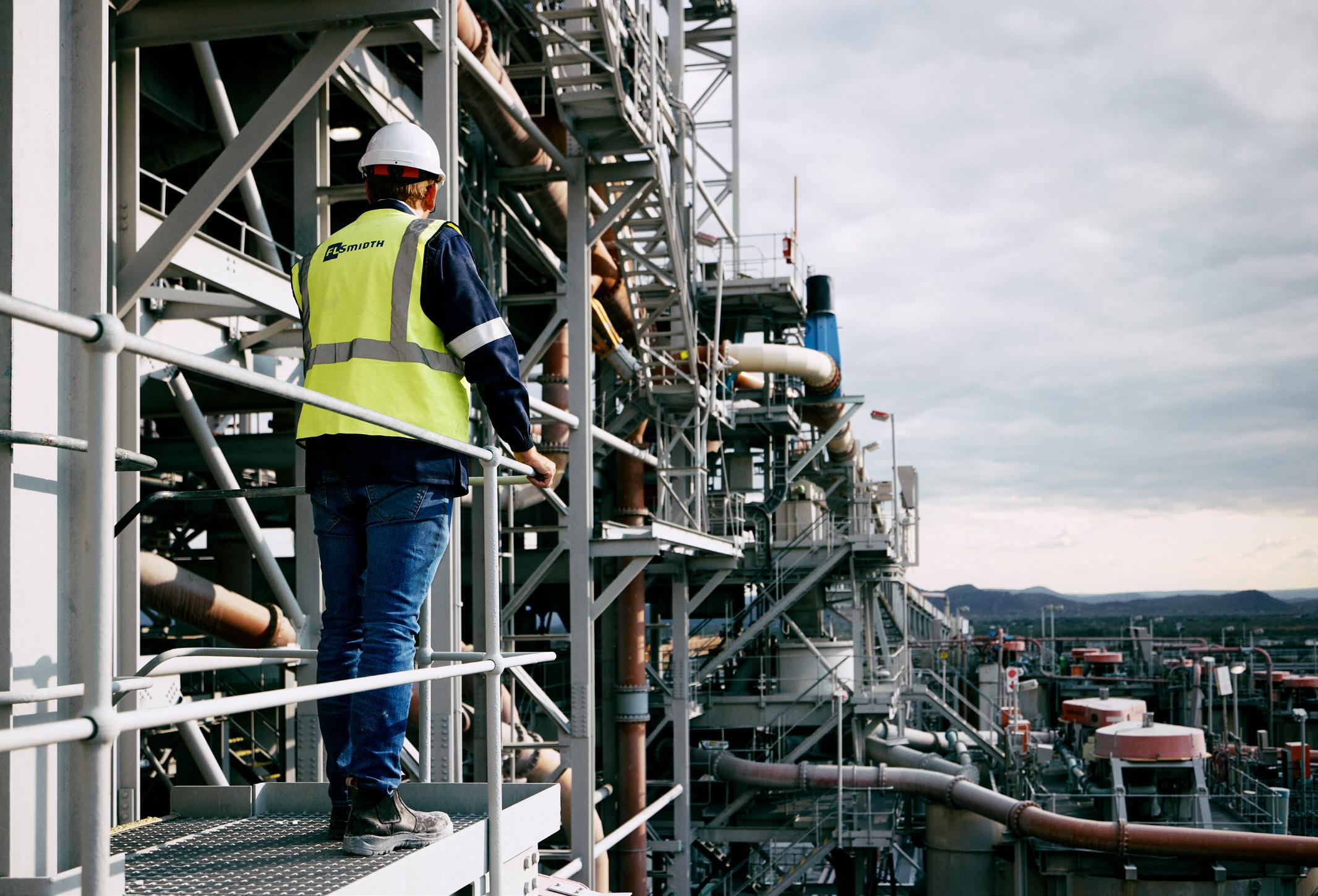
When it comes to responding to customers, people are FLSmidth’s biggest resource as brand ambassadors and the face of the company.
In return for increasing profitability, the company provides an environment of equal opportunity that allows them to perform to the best of their ability.
Looking at the SSAMESA region in particular, one of the key elements for FLSmidth is obtaining, training, and retaining talent in the organisation.
“All three of these things are difficult because it’s still tough to attract people to the mining industry, despite the fact we have become more responsible and our image in the market is better,” de Kock acknowledges.

“THE KEY PRIORITY FOR FLSMIDTH IN SSAMESA, BUT ALSO GLOBALLY, IS THE IMPLEMENTATION OF THE PURE PLAY MINING STRATEGY”
– DEON DE KOCK, PRESIDENT FOR SSAMESA, FLSMIDTH
“But to have sustainable operations, you need to have a solid pool of talent. We look at doing business in a financially viable and sustainable manner where we operate in SA, Ghana, Saudi Arabia and India.”
In SA, FLSmidth subscribes to broadbased black economic empowerment (B-BBEE) initiatives and is a proud Level 1 B-BBEE contributor
The company has invested heavily in apprenticeship, learnership, and scholarship programmes to feed the talent pipeline in SA, as well as Ghana and India, and will be doing the same in Saudi Arabia.
Furthermore, as it has done in SA, FLSmidth has made the conscious decision to employ native Ghanaians and Saudi Arabians in their respective countries.
“We believe in being a responsible
Parbhoo,Echoing this sentiment is Bhavesh Parbhoo, Head of Order Handling and Execution for SSAMESA, who takes heart and confidence in the team’s maturity and agility.

“Both the industry and the company are going through significant change, and the one thing that has always kept FLSmidth on top is the level of maturity to navigate this change,” he says.
corporate citizen in the communities that we operate, and exceed our corporate social responsibility (CSR) in terms of projects with doorstep community involvement,” adds de Kock.
Being a global multinational, FLSmidth has very strong values that are aligned with the values of its staff, making the company an employer of choice.

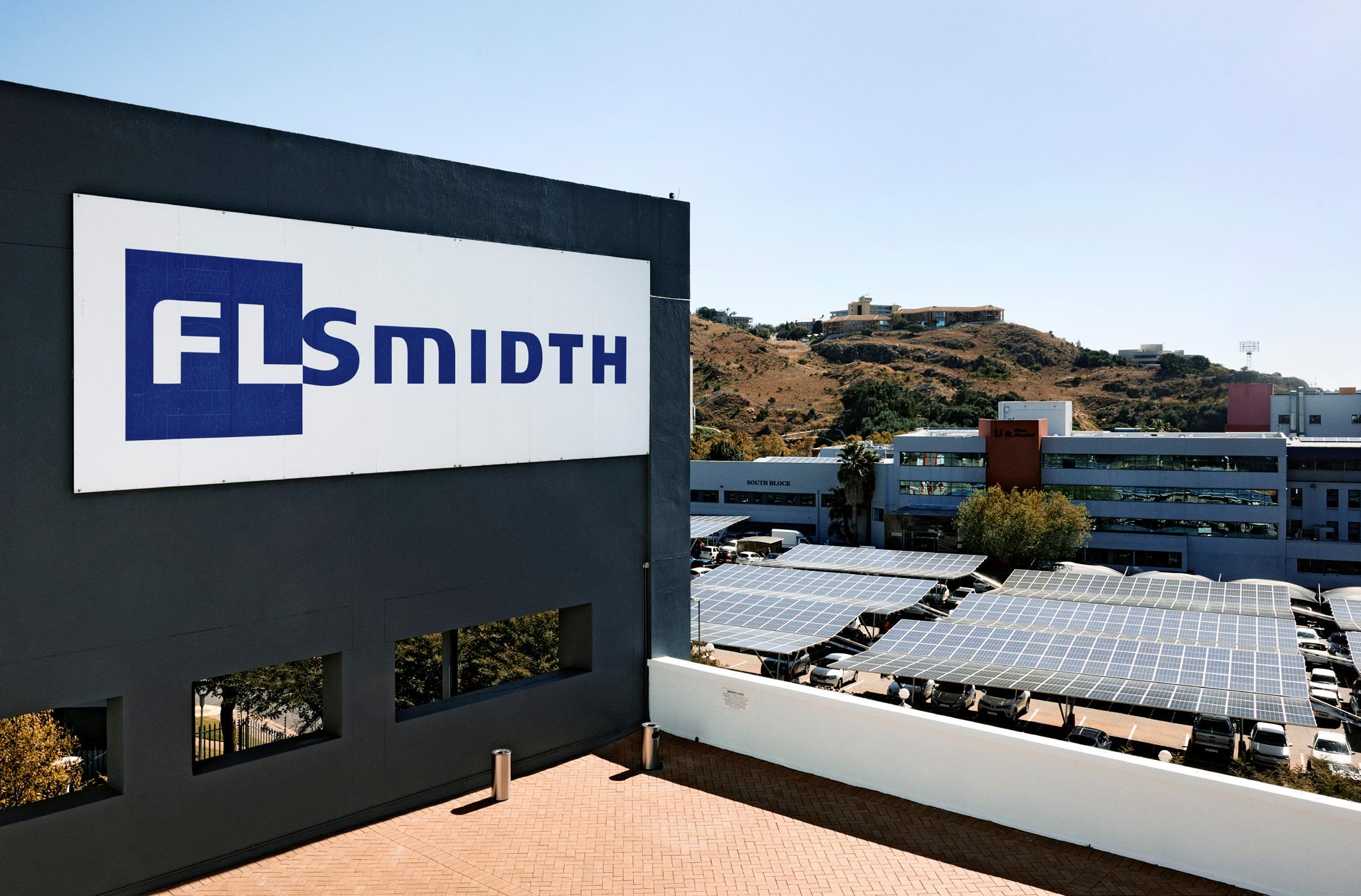
“We’ve got a lot of fantastic people that are critically important and the foundation of our success,” Kruger tells us.
Likewise, suppliers and partners play an equally critical role in helping the company achieve its strategy and leverage past learnings to increase its effectiveness.
“They assist us with the free flow of communication, feedback and ideas,” Parbhoo concludes.
Tel: +45 3618 1000 info@flsmidth.com
www.flsmidth.com
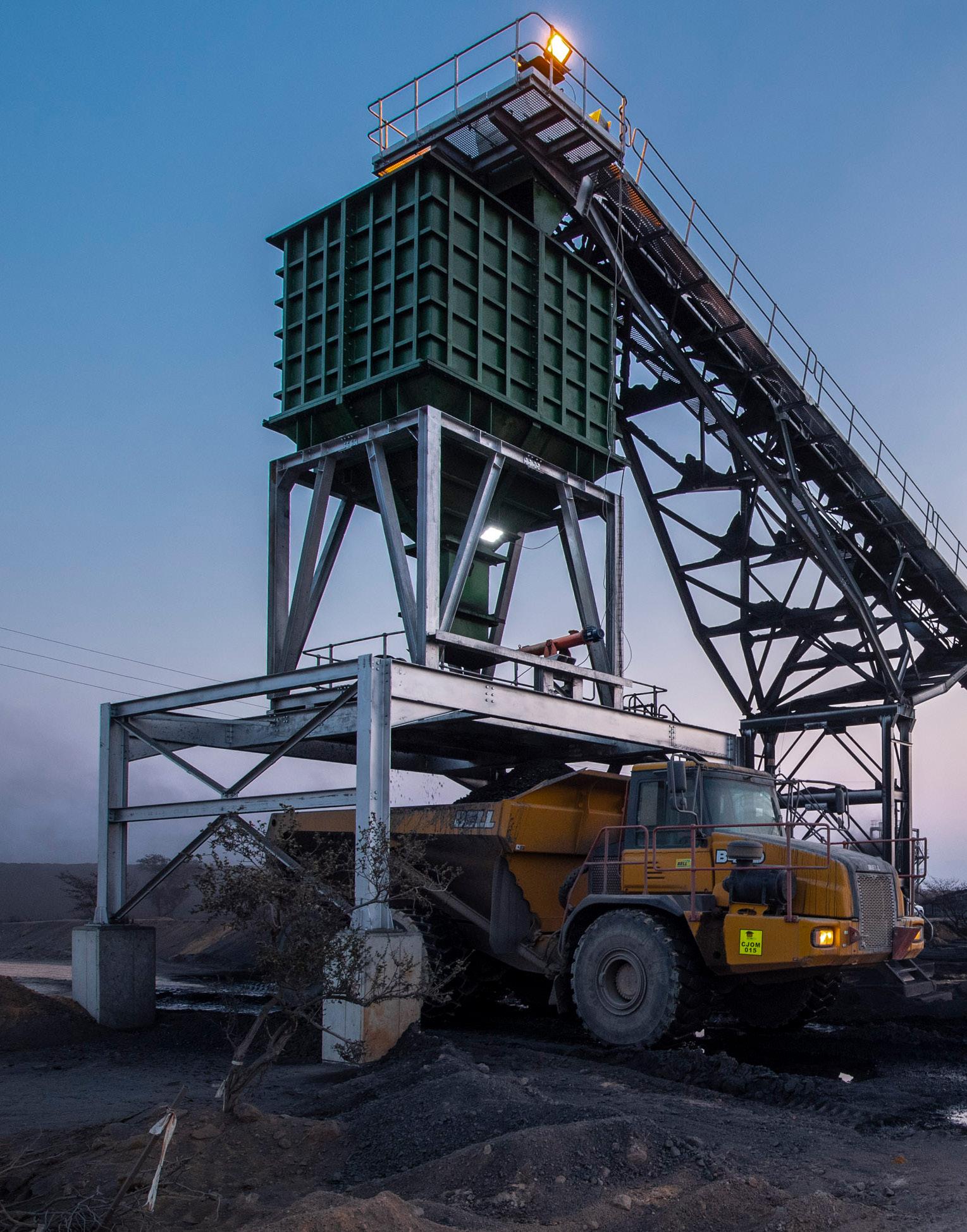


Writer: Lucy Pilgrim | Project Manager: Josh Mann
Minergy Coal (Minergy) was first established in 2012, as its initial shareholders registered a prospective mining license in Botswana for thermal coal. Although they were looking for other minerals at the time, coal was by far the most abundant resource with good geological information available. As a result, the shareholders established two drilling programmes to assess
the quality of coal in the Mmamabula coalfields.
Working on the founding principle to supply coal for energy generation in Botswana, there was initially no urgent need to support a power source of electricity in the area. However, a review of drilling results demonstrated that the resource could support the sale of sized thermal coal across Botswana, South Africa,
Namibia, and other neighbouring countries.
“Subsequently, we listed Minergy in 2017 on the Botswana Stock Exchange,” introduces CEO, Morné du Plessis.
From here, Minergy went from strength to strength, as its listed status and equity funding facilitated a further drilling programme, which kick-started the regulatory process necessary for licensing.
“Once environmental approval was received, a mining license was awarded to us at the end of August 2018 and we immediately started developing what became our Masama Coal Mine. This foresaw the development of box cutting, bush clearing, creating road access, as well as power and water reticulation,” du Plessis recalls.
Thus, within 12 months of being awarded the mining license, the Masama Coal Mine was developed, along with the completion of the first stage of a processing plant in 2019, which saw a dense medium

Morné du Plessis, CEO: “We currently have three main service providers who are indispensable to the business. We work on a contract model, so we don’t own the equipment ourselves. We are heavily reliant on our opencast mining contractor and processing plant service provider together with fuel supplier.
“A further group of service providers that come into play is transporters. Generally, we sell Free on Truck (FOT) where the customer is responsible for the management and cost of transportation. Where requested to do so, we provide a landed solution to offer transport for certain customer requirements. For this service, we often utilise the local transport industry as we believe it is important to work closely with the local community and ensure we deliver the product effectively to our customers.”
separation (DMS) module supported by mobile crushing and screening. This enabled Minergy to start selling its product to the regional market.
Continuing its development strategy, Minergy signed a three-year offtake agreement with a reputable cement supplier.
“Typically, we would then start ramping up our activities, but unfortunately the COVID-19 pandemic interrupted everybody, and eventually halted our efforts. We couldn’t start operating again until late 2020,” du Plessis tells us.
Once the company recommenced operations, it completed phase two of its processing plant, supplying the front section which crushes the product, so that the process was automated and fed straight into the DMS section built in phase one.
Subsequently, despite the turbulence in the market caused by COVID-19, Minergy completed phase three of the processing plant, a water management system (WMS), that recycles this precious resource in a region where water scarcity remains a significant issue.
Following the construction of the final phase of the plant, a rigid screening section, the Coal Handling and Preparation Plant (CHPP) reached completion in September 2021. Fortunately, it was finished before the start of the Russia-Ukraine conflict. Minergy navigated this period by running the mine at full capacity to make the most of the excess buying that occurred at the time.
Numerically, this equated to 125,000 tonnes of run-of-mine (ROM) feed sent to the processing plant, which resulted in 70,000 tonnes of saleable coal. Minergy was then able
to consistently achieve this capacity for the latter half of 2022.
Last year also brought great prosperity in the international market, as Minergy became the first Botswanan company to export coal via sea to Europe. This produced 210,000 tonnes of sales, equating to six vessels in total, as the product was well received globally.
“The end of last year was also the first period in which the company was a profitable operation, achieving an earnings before interest, taxes, depreciation, and amortisation (EBITDA) position,” du Plessis proudly informs us.
Minergy is continuously bolstered by the intricate quality of its products, as the company produces three different types of coal in various sizes.
“Typically, coal producers talk about seaborne thermal coal exports,

which is an unsized product that the international indexes measure. Alternatively, we produce sized thermal coal, ranging from a zero to 50-millimetre (mm) product, which we sell to the regional market,” du Plessis explains.
The first of Minergy’s three products is known as Duff, characterised as a finer product, ranging from zero to 12mm. Duff is widely used in the cement market, as its fine consistency can easily be blown into the kiln, acting as a differentiator in the construction sector.
Secondly, the product produced between 12 and 30mm is called Pea and is used in manufacturing outlets being fed by a boiler application to create steam and other forms of energy for the plant. This process is used across canneries, breweries, fisheries, textile manufacturers, and more.
Finally, the biggest fraction,
called Small Nut, sizes between 30 and 50mm. Small Nut can typically be found in specialised heating applications, used in the creation of steel and other metals.
On top of this, Minergy is fortunate enough to have its Masama Coal Mine in a prime location, 80 kilometres (km) northeast of Botswana’s capital city of Gaborone.
“We operate the most southerly located mine in the country, which is important to note because logistics is everything in this game, and the closer you are to your target market and land, the cheaper the product. So, it gives you an advantage in terms of customers and pricing,” du Plessis emphasises.

As it expands, Minergy is evolving its industry impact to herald the Botswanan coal industry as a vital part of the international coal network, due
• Connected the local area with electricity in 2019, five years before it was originally scheduled by the local government.
• Supported the creation of local businesses, including the development of local spaza and food stalls.
• Building of rental houses for workers by locals.
• The first large supermarket and extensive supply outlets established.
• Providing computers to local schools and offices.
to its initial success, prime location, and plentiful resource.
“It’s important to note that timing is everything. With this in mind, we were the first open cast coal mine that operated commercially in Botswana, as many other mining entities remained underground or undeveloped waiting for power solutions,” du Plessis states.
“Generally, people said sized Botswana coal is not of good enough quality to compete commercially. However, we have proven to the world, not just regionally but internationally, that the coal in the Botswanan ground is of such a quality that it competes with the very best supply in the world, especially with low ash and sulphur qualities.”

As noted earlier, the location of the Masama Coal Mine is a key differentiating factor, since it is situated close to the South African border. This is advantageous as it places the mine near to the Northwest Province in close
proximity to its main market of the cement industry.
As a result, Minergy is closer than most of its competitors to the target markets and has greater access to its strongest customer base.
Furthermore, Minergy’s sizeable resource also sets the company apart; whilst the majority of the Southern African mining market struggles to obtain a large resource, Minergy has an impressive 380 million tonnes on its mining license, 80 million of which is open and castable, providing a reliable level of longevity and stability to its products.

Alongside its optimum location, Minergy also bears the advantage of being supported by the Botswanan government since its establishment.
“The narrative around coal has been unfairly negative across the world in recent years, but with governmental support, we’re in a stable and investment-friendly region.”
As Minergy navigates the coming years, it has tenacious plans to double its capacity.
“To add to this, at a lower capital expenditure (CapEx), we could double the capacity of our Masama Coal Mine. As such, we could produce 250,000 tonnes of ROM feed, which can generate 150,000 tonnes of saleable coal per month,”
du Plessis highlights. This includes the development of significant metallurgical deposits that form part of the resource.
However, for the company to achieve the goal of double capacity, it must first address the limited level of infrastructure across the local community and the Masama Coal Mine.
Firstly, the current gravel track that leads to the mine has limitations and challenges. To tackle this, Minergy is working with the government in a private-public partnership (PPP). This dictates that the government and the company will split the expenditure for tarring the road, to guarantee a high-quality route that stretches 23km from the mine to the local town. Furthermore, the investment in the road will help solve issues of dust caused by gravel, as well as creating a
smoother traffic flow.
“We are very grateful that the government has agreed to the PPP. We have already started with the design, so we are hoping to have the new road completed by the end of next year,” comments du Plessis.
In addition to transport infrastructure, Minergy is also responding to the limited surface water resources available in the country. Since Minergy requires greater accessibility to water to double its capacity and help the community, the company has engaged with local water utilities and the government department to combat the issue.
Alongside its WMS, Minergy has subsequently been given access to a strong feed of water, known as the North-South Carrier, which links to the processing plant. However, this will take great precision and planning, as the water supply is approximately 43km from the plant, but Minergy is more than ready to take on the challenge.
Alongside plans for doubling its capacity, Minergy strives for a diversification of its portfolio, as the organisation aims to be part of supplying coal to a locally established power plant in the region.

“I think we have the capabilities to do this as we have enough coal to support the respective power plant for another 30 years without a problem,” emphasises du Plessis, who strives to see the company have a second listing on an international stock exchange, particularly the London market, as Minergy endeavours to elevate its international mining trade.
Tel: +267 397 2891 info@minergycoal.com
www.minergycoal.com
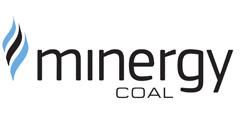
“WE HAVE PROVEN TO THE WORLD, NOT JUST REGIONALLY BUT INTERNATIONALLY, THAT THE COAL IN THE BOTSWANAN GROUND IS OF SUCH A QUALITY THAT IT COMPETES WITH THE VERY BEST MINING ENTITIES IN THE WORLD”
– MORNÉ DU PLESSIS, CEO, MINERGY COAL
The African construction industry is booming and continues to flourish at an impressive annual rate.
Undoubtedly, despite this upturn in prosperity for the continent overall, South Africa is facing unique challenges of its own, particularly within the construction sector, which has been struggling in recent years due to various economic, political, and social factors.
However, in the face of these challenges, there are positive developments igniting the sector with a sense of optimism for the future of construction across the nation.
Riding the crest of this wave of optimism is Ruwacon, one of South Africa’s leading and top-tier construction firms. Founded in 1999 by its current Managing Director, Pieter Ruthven, the company now boasts over 24 years of success in this vast and ever-shifting industry.

Today, Ruwacon is focused and poised to embrace the South African government’s infrastructure plan, a strategic endeavour designed specifically to invest in diverse sectors, foster job creation, and stimulate economic growth. Moreover, the South African private sector has displayed profound interest in infrastructure ventures spanning renewable energy, logistics, healthcare, residential, and commercial developments.
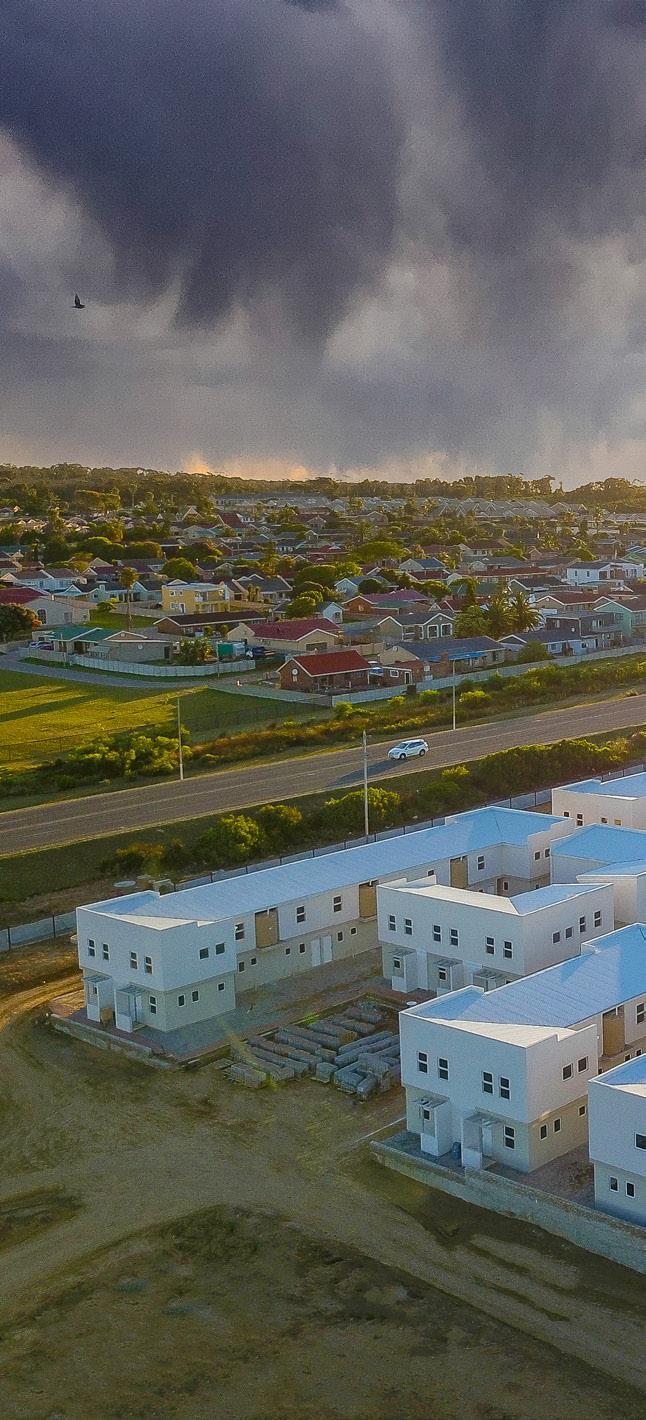
Continuously improving by establishing appropriate business objectives and implementing the most effective plans to achieve them, Ruwacon has positioned itself at the helm of the African construction industry. Commercial Director, Reeza Seedat tells us more
Writer: Ed Budds | Project Manager: Taylor Green

In response to this, Ruwacon has adeptly positioned itself within these focus areas over the years and stands primed for fresh business prospects and exciting development.
Ruwacon and its management team continue to be instrumental in taking proactive measures and adapting to the constantly changing environment in which it operates.
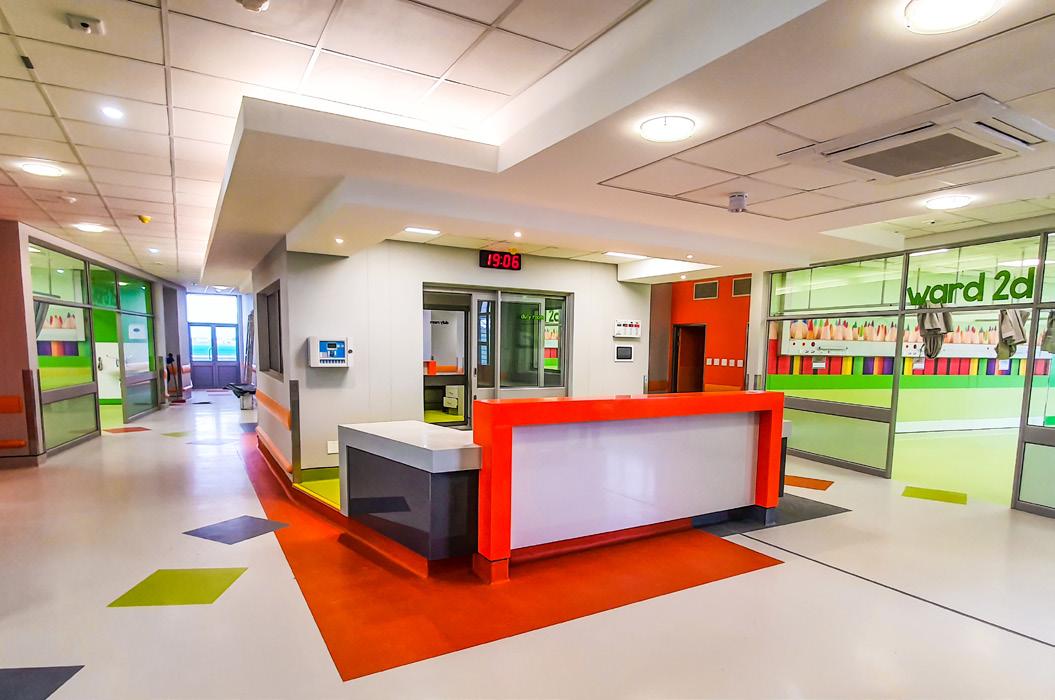
“We continue to embrace technology, diversify our service offering, and focus on sustainability, whilst building strong private and public partnerships for the long term,” opens Reeza Seedat, Commercial Director of Ruwacon.

“Our core belief has always been to deliver exceptional projects to our valued clients, develop skills in communities in the areas we operate in and contribute to the growth of the South African economy,” he continues.
AFRICA
COULD YOU PROVIDE US WITH SOME INSIGHT INTO YOUR CAREER AND EXPLAIN HOW YOU BECAME INTERESTED
Reeza Seedat, Commercial Director: “It’s a privilege and honour to be part of an ever-thriving industry. There will always be a need for constant development throughout our continent. I have always been intrigued by each project’s unique offering and the challenges and pleasures that come with constructing it.
“With 12 years of industry experience to date, I am humbled by the mentorship and opportunities provided to me throughout the years to progress through the ranks. Starting out in 2011 as a graduate in the construction industry, being part of site-based teams and relocating to different projects around South Africa, to now holding a position in office and being involved in Ruwacon’s business development, strategy and risk management has been a major milestone in my career.”
As part of Reeza Seedat’s portfolio of experience, he holds a MBA Degree, Honours Degree in Quantity Surveying and a Certification in Property Development and Investment. Reeza Seedat is a registered Project Management Professional and has a Chartered Professional Quantity Surveyor designation with the Royal Institute of Chartered Surveyors to add to his resume.
Ruwacon’s management team has irrefutably committed themselves to practising the vital principles of integrity, respect and transparency. This firm ethos forms the basis for managing all of the company’s core operations, systems and structures - as well as defining Ruwacon’s overarching organisational culture.
In May 2010, Ruwacon transformed its shareholding to become one of the few top-tier construction firms in South Africa with majority black ownership. On top of this, the company currently has a 9GB and 9CE CIBD grading and proudly holds Level 1 B-BBEE status.
It is simultaneously both the vision and mission of Ruwacon to become South Africa’s most preferred contractor, as the company

remains resolutely focused on client satisfaction and quality projects, completed on budget and on time. The company operates in some of the most remote areas across South Africa and most recently ventured into Botswana, to create, build and ensure quality for the future and is involved in a multitude of ambitious projects whilst targeting constant evolution and enhancement.
It is the belief of Ruwacon’s leadership team that a hands-on approach and the company’s regional management structure ensures direct and regular senior intervention at project level. In this way, transformation is driven at the highest standards and Ruwacon strives to ensure that the company forms an integral part of Southern Africa’s growth.
“OUR HISTORY OF ACHIEVEMENTS AND COMMUNITY-CENTRED DEVELOPMENTS IS TESTAMENT TO THE PROFICIENCY IN WHICH RUWACON OPERATES IN THE INDUSTRY”
– REEZA SEEDAT, COMMERCIAL DIRECTOR, RUWACON
OUR STORY
FF Gertse Transport Services was founded by Mr. Floors F Gertse in 2013 after identifying the need for proper transportation between his home town Kenhardt in the Northern Cape and Western Cape. He established a daily route running three to four times a week between the two provinces as was needed. After a short period of time with excellent management he bought several coaches and started working with major companies in the Mining industry transporting their staff from accommodation to the mining sites in the Northern Cape Province.
In 2016 FF Gertse Transport Services started their touring transport department partnering with CoachFairy Transport Services to take the TOURISM TRANSPORTATION industry by storm, running tours across South Africa and into neighboring countries such as Lesotho, Swaziland, Botswana, Namibia, Mozambique, and Zimbabwe.

For the past year, FF Gertse Transport Services worked with RUWACON CONSTRUCTION and other smaller contractors on a 20 year Solar Plant Project in the Northern Cape, transporting their staff to and from the site on a daily basis with over 10 coaches, midibuses and minibuses ensuring their staff is on time and ready for work.
In 2020 when the intercity giants closed their doors due to COVID19, FF Gertse Transport Services saw the urgent need and opportunity in this unique situation, and was willing to take the risk to assist South Africans with safe, reliable, and affordable transport between Cape Town, Johannesburg, Gqeberha, formerly known as Port Elizabeth, and Northern Cape. The core focus of FF Gertse Transport is to be the most reliable, safe, and
cost-effective passenger liner in South Africa to supply transport to all walks of life, or should we say all wheels of life.
FF Gertse Transport Services is a 100 percent blackmanaged company and, therefore, subscribes to the strict code of practice regarding BEE procurement. This procurement policy focuses on preferred blackowned businesses with the aim to procure 50 percent of the requirement from emerging BEE companies, including the outsourcing policy.
Ensuring that economic empowerment is the top priority for employees, FF Gertse Transport Services not only promotes reliability and satisfaction for customers, but also to those who work hard on a daily basis.
We have experienced drivers who regularly go on training courses to perfect their driving skills, who are skilful in interacting with people, and know how to follow the chain of command.
We believe that happy staff equals happy customers. FF Gertse Transport has a policy to empower, educate, uplift, and equip staff to be their best and do their best, creating better families, communities, and ultimately a South Africa. Our staff are our most valuable asset and we strive to take good care of them.
For over a decade FF Gertse Transport Services has aimed to evolve passenger transportation in every sector where transport is required.
This has led FF Gertse Transport Services to build
FF Gertse Transport Services provide a comprehensive range of transport services, including:
• Tourism
• Charter
• Intercity
• Shuttles
• Staff Transport
• Every form of passenger transport service thinkable

relationships with other big brands in the transport industry to revolutionise passenger transport in every way possible.
We have direct and/or indirect business relationships with corporate companies, such as Ruwacon, Raubex Construction, Maracof SA, Aries Solar Power, and Ilanga to name just a few.
Make FF Gertse Transport Services
“THE ULTIMATE CHOICE” when it comes to your passenger transport needs.
Our fleet ranges from sedans minibuses, midibuses and buses/ coaches up to 85 seaters
Fleet Standard:
• Commuter
• Semi luxury
• Luxury
• Super luxury
FF Gertse Transport Services will transport whoever, to wherever, make us your ultimate choice for passenger transportation in South Africa.

We are ‘‘The Ultimate Choice’’ providing transport for all group sizes, let us take you safely to your destination.


As a privately owned business established in 2003, our company was founded by its current owner, Floors Gertse with the vision of becoming one of the most prominent commercial truck companies in South Africa. Focusing on delivering quality service throughout the continent of Africa we succeeded to “SET THE TREND” in the transport logistics industry.
Our reputation has been built around the delivery of services that enhance quality performance and cost efficiency. These services are focused on supplying the highest quality and constantly on time transport that is eco friendly to our environment.
Since the start of Fairdinkem Carriers, the company has flourished into one of the leading Reefer Transport providers in the industry across South Africa. Taking pride in our customer service and reliability and ensuring that our standard of quality is always high to satisfy our clients needs.
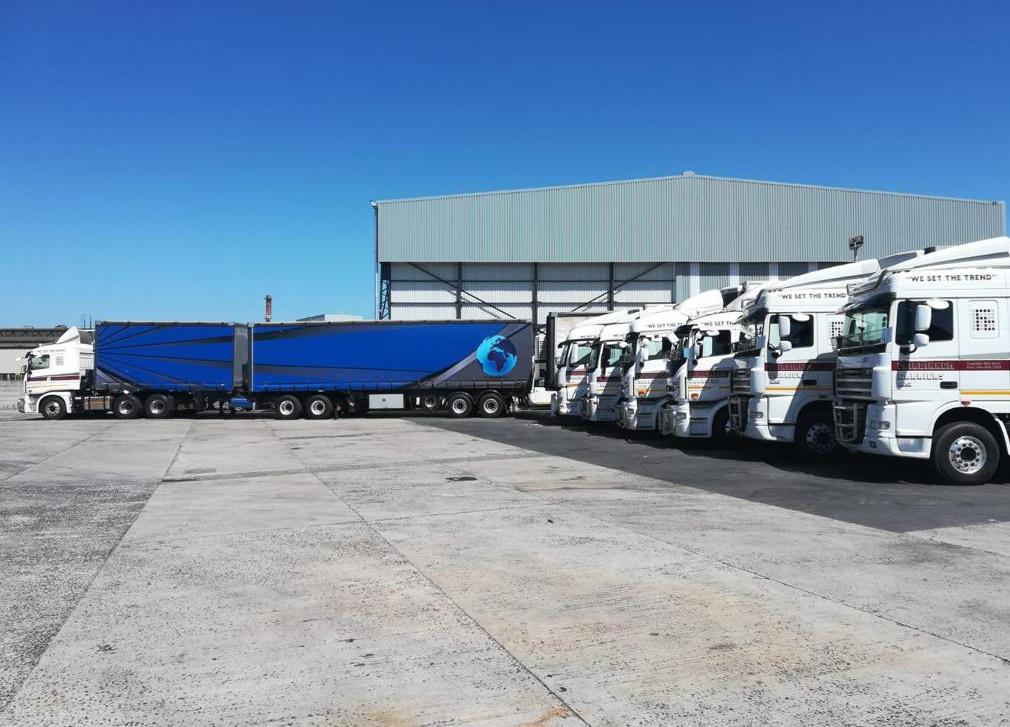
Fairdinkem Carriers has gained a reliable and trustworthy reputation built around the delivery of services that enhance quality performance and cost delivery, with these services being focused on the supply of high-quality and timely transport services. Our processes is one of the factors that makes us highly competitive in the logistics market.
Our fleet replacement program of every three to five years ensures that our vehicles can service the requirements of our supply chain.
Partnering with high quality brands such as Mercedes SA, Scania, Volvo, Babcock (DAF) , S A Truckbodies/ Hendred, GRW, and other leading brands to deliver only the best possible service to our clients.

Fairdinkem Carriers is a 100 percent black-managed company and, therefore, subscribes to the strict code of practice regarding BEE procurement. This procurement policy focuses on preferred blackowned businesses with the aim to procure 50 percent of the requirement from emerging BEE companies, including the outsourcing policy.
Ensuring that economic empowerment is the top priority for their employees, Fairdinkem Carriers not only promotes reliability and satisfaction for customers, but also to those who work hard on a daily basis.
Our most prized possession!
We believe that transfer of knowledge and skills development is vital and important to our organization and must be given priority in order to empower staff and in the same time promote the economic advancement of our communities, cities, and our country “we start small and change big.’’
Fairdinkem Carriers focus on learnership opportunities for employees to gain experience whilst working. Management shares knowledge and skills expertise by working closely with their staff.
Over the past 15 years, Fairdinkem Carriers has been involved in the transport for several large corporations across South Africa.

South Africa Breweries, Spar SA, and Grain Carriers just to name a few.
Fairdinkem Carriers took the responsibility to work with prominent industry leaders to ensure that we are a step ahead for customer satisfaction and experience.
We have worked diligently to commandeer our position at the top of the industry to ensure our clients only get the very best there is to offer.
Fairdinkem has promised and has delivered reliable and safe transport in the industry for over 20 years and promise to only do better.
Fairdinkem Carriers strives to deliver services which:

• Eliminate wasteful and costly tasks
• Deliver on time
• Save money
Workmanship and service is of a constant high quality and standard, including:
• Transport of goods
• Logistic services
Fairdinkham Carriers has the following divisions:
• Crossborders of Southern Africa and neighbouring countries such as Namibia, Botswana, Swaziland, Lesotho, Zimbabwe
• Contractual in various sectors
Ruwacon operates across several divisions of expertise, each fulfilling unique integral purposes to the company’s innovative and world-class projects.
As the organisation comprises multiple divisions such as construction, infrastructure, housing, plant hire and scaffolding, Ruwacon has the key advantage of operating across all fields of the vast construction industry.
Firstly, Ruwacon’s construction division offers multi-disciplinary solutions for building projects in both the public and private sectors.
“The construction division provides elite solutions that are adaptable to the financial considerations of our respectable clients,” affirms Seedat.
This arm of the business undertakes a range of projects for all government departments including, healthcare
facilities, public buildings, schools, prisons, courthouses, museums, military bases, and office buildings amongst others.
“We deliver a tailored approach to our private clients from inception to completion stages of their projects. With this, Ruwacon’s construction division has successfully delivered projects to reputable clients such as Walmart, Shoprite, Motus, Engen, Capitec and ABSA Bank, to name a few,” he adds.
Secondly, Ruwacon’s infrastructure
division has nurtured an extensive record and reputation for delivering projects of the highest quality to its valued clients. The performance of the division has created numerous valuable long-term partnerships with stakeholders involved in both the private and public sectors.
“Our team aligns their technical knowledge, experience and resources, and is driven by our commitment of continuous improvement in construction methods to optimise efficiency and enhance client value.”
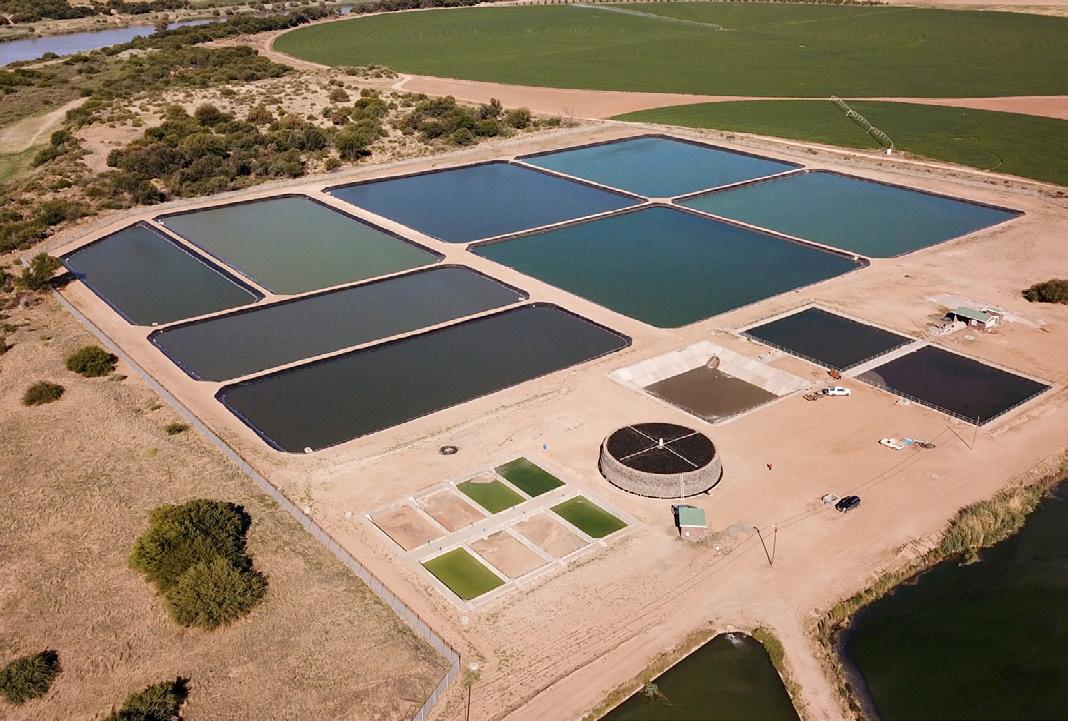
“WE CONTINUE TO EMBRACE TECHNOLOGY, DIVERSIFY OUR SERVICE OFFERING, AND FOCUS ON SUSTAINABILITY, WHILST BUILDING STRONG PRIVATE AND PUBLIC PARTNERSHIPS FOR THE LONG TERM”
– REEZA SEEDAT, COMMERCIAL DIRECTOR, RUWACON
















With more than 130 years of experience in the paints and coating industry, Plascon has a proud history and legacy in Africa.

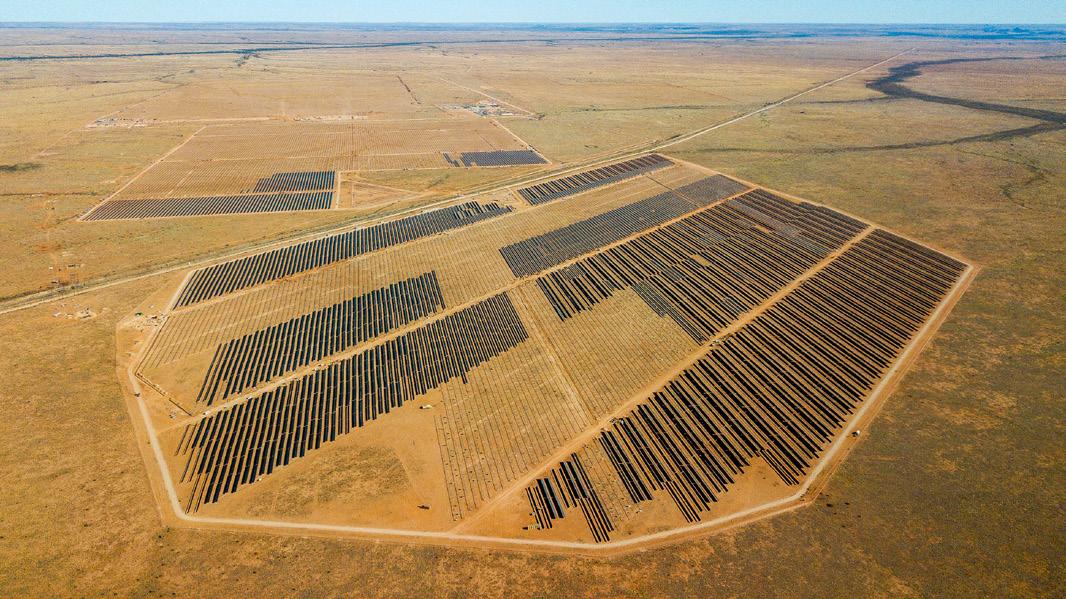
The division focuses on the construction of roads and railways, earthworks, civil and infrastructure, as well as renewable energy initiatives and has completed projects for esteemed clients such as SANRAL, Transnet, Airports Company South Africa, Glencore, Anglo, South32, Scatec and Abengoa among others.
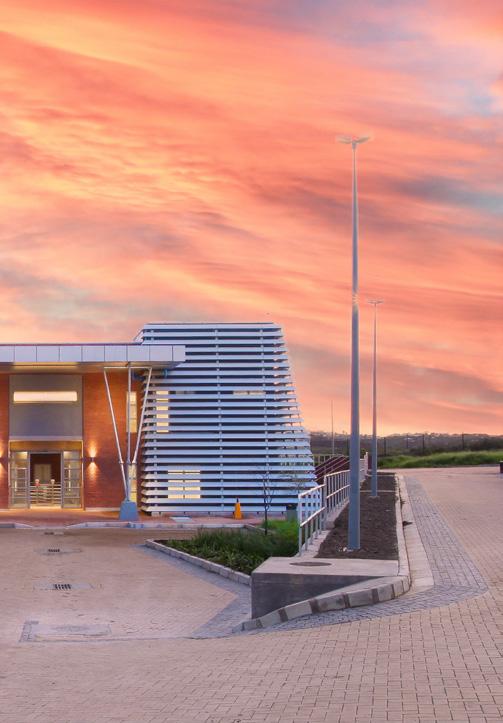
Meanwhile, Ruwacon’s plant division owns an extensive fleet of heavy construction machinery, trucks, equipment, and vehicles, with expert personnel who ensure the optimal use of all company vehicles and machinery used on projects nationwide.

“Our team includes a service component with competent personnel to maintain, service and repair our fleet. Additionally, our plant management team ensures that the fleet is maintained in line with the necessary safety and legislative requirements of the government as well as our clientele,” Seedat tells us.
Considering the current skills shortage in South Africa, Ruwacon is actively pursuing meaningful training initiatives that offer its teams career development and personal empowerment.


“Our efforts are predominantly based on our in-house bursary scheme for the previously disadvantaged members of the community pursuing their studies in construction management, quantity surveying and civil engineering,” Seedat explains.
Furthermore, Ruwacon offers in-service training for building and engineering students who wish to complete their experiential training year. The company’s in-house mentorship opportunities further complement its bursary and workintegrated learning scheme, offering graduates and junior staff members the opportunity to learn first-hand from Ruwacon’s experienced senior staff.
Training programmes such as the Expanded Public Works Programme (EPWP) are also pursued by the company in an effort to contribute to the upliftment and enrichment of the respective communities in which Ruwacon exists.
Further to these initiatives, Ruwacon continues to aid development and education initiatives within the communities in which it operates in order to facilitate sustainable access to the economy for any beneficiaries.
“It has been an exciting journey thus far and we look forward to what lies ahead for Ruwacon and the future development of Africa.” Seedat finishes.
With a unique ability to combine power, telecommunications, and managed services, IPT PowerTech Group is a leading complete solutions provider. The company’s CEO, Nabil Haddad, tells us more
 Writer: Rachel Carr | Project Manager: Kyle Livingstone
Writer: Rachel Carr | Project Manager: Kyle Livingstone
Recognised for its innovative approach to the power and telecommunications (telecoms) sector, IPT PowerTech Group (IPT PowerTech) has redefined the market standard by initiating energy-efficient concepts from hybrid systems with direct current (DC) cooling to dual hybrid technology, while catering to the growing digital demands of businesses and consumers in a hyper-connected world.
As a leading fully-fledged energy system integrator, IPT PowerTech is a complete energy-efficient solutions provider. Moreover, the company supplies telecoms infrastructure combining its expertise with managed services proficiencies. Furthermore, the company possesses a large portfolio of advanced and customised alternating current (AC) and DC solutions, including hybrid systems with DC cooling through dual hybrid technology, generators, and DC generators that reduce fuel consumption.
“We are founded on a vast record of operational excellence,” introduces Nabil Haddad, CEO of IPT PowerTech.
Established in 1993 and with more
than 4,500 specialists on board across the Middle East, Africa, and Southeast Asia, IPT PowerTech offers the most extensive portfolio of customised telecoms hybrid solutions globally. With advanced in-house solutions development and manufacturing capabilities, the company provides complete end-to-end services from design, manufacturing, and supply through to final integration.
“I was one of the founders of PowerTech, the mother company behind IPT PowerTech, which was then specialising in batteries trading, but we felt a need to provide more value to that industry,” recalls Haddad.
Throughout IPT PowerTech’s interaction with its clients in the industrial batteries and telecoms space, the company saw the need for a complete and problem-free energy solution, therefore requiring an expansion of products and service offerings.
“We saw a trend evolving and getting more complex with time, which made us pre-empt and improvise solutions ahead of both the competition and our client’s requests. Thus, we became the most specialised energy solutions provider,” he adds.



In the ever-evolving tech landscape of Africa, Delta Electronics EMEA stands as a leading global provider of power and thermal management solutions. With a core mission of providing innovative, clean, and energy-efficient solutions for a better tomorrow, Delta has made significant strides in addressing environmental challenges, including global climate change. Founded in 1971, the company’s expertise spans power electronics, automation, and infrastructure, offering a range of solutions to cater to various industries. In this article, we focus on Delta’s Telecom Power Solutions and its significant impact on Africa’s telecoms industry.

Delta’s Telecom Power Solutions play a crucial role in preparing Africa’s telecoms networks for the steep traffic growth in 5G and fibre requirements. These solutions are meticulously designed to cater to
diverse needs, including wireless broadband access, fixed-line applications, internet backbones, and data centres across the network’s core and periphery. The company’s efficient and highly reliable products, such as broadband networking peripherals, equipment, and uninterruptible power supplies (UPS), ensure seamless and uninterrupted communication.
Delta’s software platforms offer a powerful and featurerich solution to manage entire fleets of networks with ease, providing full control and insights to increase performance and reduce energy consumption. As the African telecoms landscape continues to grow and expand, Delta’s Telecom Power Solutions offer flexibility, efficiency, and high-quality power to meet the continent’s ever-increasing demand for high-speed connectivity.

Delta Electronics EMEA has a rich history, tracing its roots back to 1852 when it was born as a spinoff of the Swiss telecoms service. Throughout the years, it evolved and merged with other companies, ultimately coming under the wing of Delta Electronics. This journey allowed Delta to develop an extensive understanding of DC 48 Volt, the most common voltage used in telecoms towers, making it an internal and external expert in the field.

With an impressive 50 percent market share in the EMEA region’s Telecom Power Static Infrastructure market, Delta Electronics EMEA boasts the highest efficiency rectifiers peaking at 98 percent. Despite facing competition from cheap suppliers out of China, Delta’s unwavering commitment to reliability and high-quality products has won back customers seeking long-term and sustainable solutions.
Delta Electronics EMEA collaborates with various partners to enhance its reach and impact across the African continent. IPT PowerTech Group, a key partner, complements Delta’s offerings, providing full-fledged energy systems integration and telecoms infrastructure solutions. Moreover, Delta’s commitment to sustainability goes beyond its products. The company actively deploys solar panels to telecoms towers, harnessing Africa’s abundant solar energy, and contributes to reforestation efforts through its partnership with the One Tree Planted organisation.
As part of its commitment to sustainability, Delta Electronics EMEA has undertaken various ESG initiatives, aligning with global efforts to combat climate change. The company has been consistently recognized in sustainability indices, including the Dow Jones Sustainability Index and CDP for its contributions to climate change and water security issues. Delta is
www.delta-emea.com

working towards achieving 100 percent renewable electricity and carbon neutrality in all global operations by 2030.

Delta Electronics EMEA has cemented its position as a pioneering force in Africa’s telecoms industry, providing innovative and energy-efficient solutions to empower seamless communication across the continent. With a legacy spanning over five decades and a strong commitment to sustainability, Delta continues to shape the future of technology in Africa, bringing reliable and efficient power solutions to the forefront of the telecoms revolution.
As the continent experiences a wealth of data transfer and connectivity, Delta Electronics EMEA remains at the forefront, driving Africa’s technological advancement for a better tomorrow.



The pioneering systems amalgamate two worlds, giving endto-end solutions to tower companies (TowerCos) and mobile network operators (MNOs).
IPT PowerTech is focused on power solutions, telecoms services, and telecoms energy service companies (T-ESCOs).
Power solutions include introducing speciality application batteries, telecoms site power supply including hybrid options, initial investment in outdoor cabinet manufacturing, and integrating proprietary solutions through the acquisition of Stratum Romania.
All this is in addition to the introduction and massive deployment of the DCG and DCG hybrid concept for the telecoms industry. Moreover, IPT PowerTech initiated the dual battery concept.
As a leading telecoms power expert, IPT PowerTech has
offered a global system for mobile communications infrastructure for over two decades, including managed services, site acquisition and tower infrastructure, equipment installation
Nabil Haddad, CEO: “The supply chain operates by sourcing the main components from different suppliers, which was a strategy implemented a while ago. Many of our European suppliers have global facilities, ensuring diversified sourcing options.
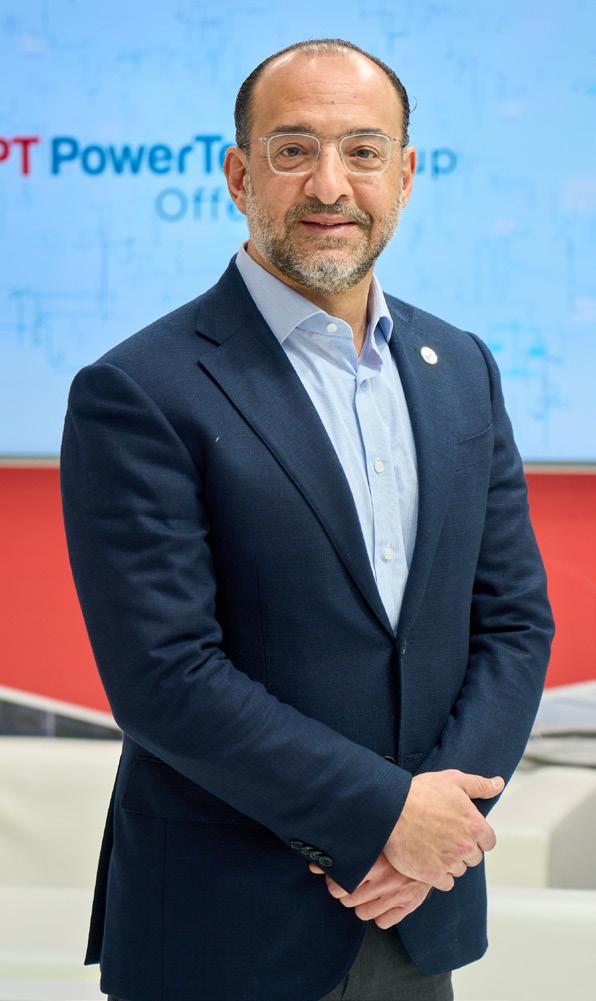
“However, in recent years we have experienced certain challenges due to factors such as the COVID-19 pandemic and political issues, which have led to increased prices for raw materials, and subsequently impacted the cost of our end products.
“Despite these challenges, our diversified sourcing approach has helped mitigate potential supply chain issues.”
and integration, network optimisation, expansion and upgrades, fibre optics development, data design and construction.
In 2015, IPT PowerTech became the first company to initiate and implement the T-ESCO model in Africa and Southeast Asia. Although it has the most significant number of sites in the area, the company has ambitions for further expansion.

The T-ESCO, in its different models of guaranteed savings, kilowatt hour (kWh) based, and total operational expenditure (OPEX) is a risk-free approach that ensures MNOs and TowerCos reduce their capital expenditure (CAPEX), leading to an optimal total cost of ownership with a minimised carbon footprint.
“During the lifetime of an ESCO contract, IPT PowerTech is responsible for all CAPEX (and its replacements), management, supervision, maintenance, and diesel supply, all while guaranteeing savings at a superior optimal performance,” Haddad informs us.
Committed to preserving the environment, IPT PowerTech has made efforts to maximise the use of
The telecom industry has its own unique demands and as such deserves purpose-built engines that offer maximum efficiency. Especially when it comes to cell towers on remote locations, you seek uptime. Always. And that is exactly why IPT made a different choice from everybody in the industry. They selected Yanmar to power any tower. Because when every drop of fuel and reliability counts, nothing is as efficient as a generator powered by Yanmar.

• Vodafone
• Africell
• Nokia
• Huawei
• Motorola
• Ericsson
• 15+ offices
• 50+ countries
• 60+ operators and vendors
• 2,500+ integrated power systems
• 3,500+ sites under management
• 10,000+ under T-ESCO
Products, services, and solutions
• Energy efficient solutions
• Generators
• Full data centre solutions
• Power systems, protection and distribution
• Anti-theft solutions
• Energy storage solutions

• Remote monitoring solution
• Telecoms products
• Telecoms services
• Telecoms infrastructure products
• Telecoms infrastructure services
• Fibre optics network deployment
• Managed services
• Guaranteed savings model
• Consumption-based model
• Full OPEX model – a fixed payment model
renewable energy on all its T-ESCO sites. Furthermore, the company is constantly proposing solutions and business models such as solution as a service (SaaS), banking as a service (BaaS), solar farms, mini-grids, and special products and applied research (SPAR).
“Such solutions help customers to reduce their carbon footprint in the short-term and meet carbon neutrality obligations in the longterm,” notes Haddad.
Designed to transform industrial technology standards, IPT PowerTech’s state of the art facilities are original design manufacturers (ODM) and integrators of cabinets for telecoms, power solutions, data centres, and generators.
“This facility enables us to create and execute innovative blueprints in space and energy efficiency, site renovation, customised energyefficient/hybrid solutions, and renewable energy solutions,” states Haddad.
IPT PowerTech’s modern testing laboratory is a simulated live telecoms site fully equipped with contemporary testing and development tools necessary for performance evaluation and optimisation.
“This helps us conduct detailed assessments of all solutions under harsh and actual conditions in simulated environments.”
IPT PowerTech’s mission is to provide clients with unprecedented value and quality through its fully simulated telecoms sites, telecoms infrastructure, power management platform, field-managed services, and T-ESCO models.
However, its vision is to transform industries and societies and continually develop innovative telecoms energy solutions, widening the efficiencies of IPT PowerTech’s telecoms services to encompass a more global and suited offer, while growing its T-ESCO leadership.
“Our motto is redefining power solutions and reinventing telecoms infrastructure,” Haddad says proudly.
To effectively address the growing operations and emerging technologies within the sector, a strong emphasis is placed on the internal training and development of technicians and engineers. These training programmes are conducted both at the headquarters and at various operations across each country.
“By investing in comprehensive training programmes, we are empowering our workforce to acquire the necessary skills and knowledge required to navigate the expanding demands and advancements in the sector,” he reveals.
Indeed, this strategic focus on continuous learning not only enhances operational efficiency, but also fosters innovation and drives overall growth within the group.
“WE ARE THE ONLY FULLY INTEGRATED ENERGY-EFFICIENT SOLUTIONS PROVIDER WITH ADVANCED IN-HOUSE SOLUTIONS DEVELOPMENT AND MANUFACTURING CAPABILITIES”
– NABIL HADDAD, CEO, IPT POWERTECH GROUP
IPT PowerTech’s manufacturing facility in Romania has emerged as a leading ODM which focuses on delivering comprehensive power services tailored to specific needs.
“Our factory in Romania Stratum Enclosures SRL was acquired by the group in 2012. It has been continuously expanded upon and been through process development and quality certification to meet the requirements of our clients and the high standard of the group,” details Haddad.
Furthermore, the capacity at the factory has quadrupled with the constant addition of machinery and human capital while reducing waste management and carbon footprint, generally improving working conditions.
The facility enables effective creativity and innovative blueprints in space and energy efficiency, site
renovation, and customised energyefficient/hybrid, and renewable energy solutions.

Located in Lebanon, IPT PowerTech’s modern testing laboratory is a simulated live telecoms site fully equipped with the contemporary testing and development tools necessary for performance evaluation and optimisation. The process helps conduct detailed assessments of all solutions under harsh and simulated environments.
“We are working on many fronts and in many fields of solution development, and there are also contracts under negotiation adopting a new model of operation for telecoms services and supplies. Additionally, several ESCO contracts are also under negotiation,” Haddad explains.
IPT PowerTech’s key priorities for the coming year are to expand operations to serve T-ESCO growth

directly and increase power sales indirectly while pursuing its core mission – to add value, transform industries, and develop innovative telecoms energy solutions.
“We are the only fully integrated energy-efficient solutions provider with advanced in-house solutions development and manufacturing capabilities, in addition to our telecoms infrastructure expertise, which led us to become the largest T-ESCO globally,” Haddad concludes.
This expertise, combined with its unique profile, continues to set IPT PowerTech apart from its competitors in the dynamic realm of telecoms infrastructure.
“OUR MOTTO IS REDEFINING POWER SOLUTIONS AND REINVENTING TELECOMS INFRASTRUCTURE”
– NABIL HADDAD, CEO, IPT POWERTECH GROUP
As a force for change in the electrical sector and beyond, we speak to the team at Virunga Energies SAU about its high-impact projects centred around nature

Writer: Rachel Carr | Project Manager: Kyle Livingstone
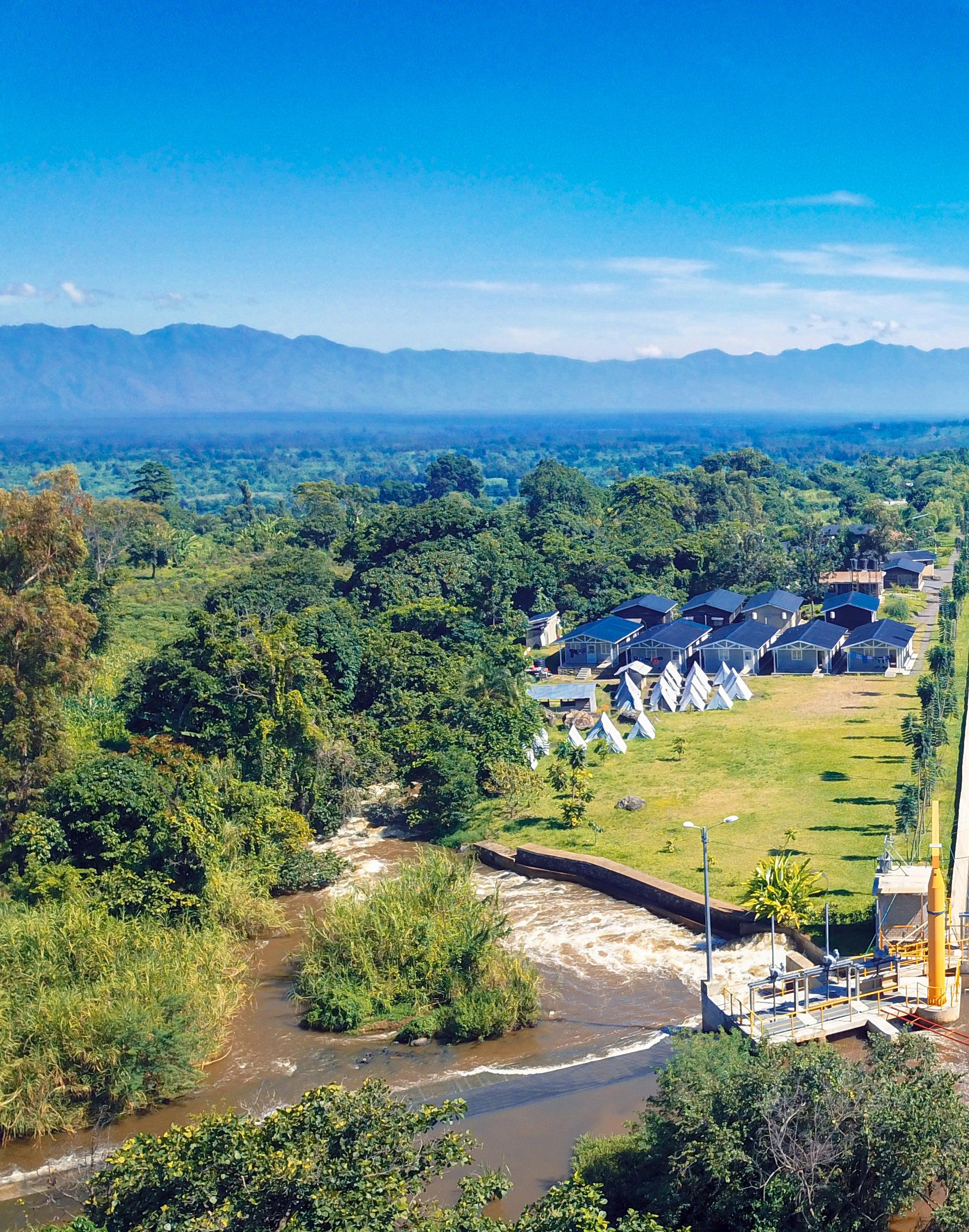
Founded in 2013, Virunga Energies SAU (Virunga Energies) is a subsidiary of the Virunga Foundation, a non-governmental organisation (NGO) that focuses on conservation and manages Virunga National Park. The company undertakes the building, producing, distributing, and marketing of clean and renewable hydroelectric energy that facilitates socio-economic development in the areas surrounding the park in the Democratic Republic of the Congo (DRC).
As a commercial business, Virunga Energies has a positive and multi-faceted mission; all its revenue is being
reinvested in either the expansion of its energy assets, the conservation of Virunga National Park or the provision of free public lighting and electricity to social infrastructures. Over USD$120 million has been invested in Virunga Energies in the last 10 years. Furthermore, with approximately 400 regular employees, the company is also able to provide daily work for thousands of people, and it is presently active in the province of North Kivu, including Goma, the region’s major city. Pioneering a new energy model, Virunga Energies is also the first company in eastern DRC to benefit from a loan from an investment bank.

“Throughout Virunga Energies’ existence, it has benefitted from substantial financial support from the European Union (EU), The Schmidt Family Foundation, The World We Want, Howard Buffet Foundation and British International Investment, without whom we would not be where we are today,” opens Jérôme Gabriel, CEO of Virunga Energies.
Although Gabriel was previously involved in the power sector, he was moved to leap to his position at Virunga Energies after discovering the company when he “stumbled across” a documentary about Virunga National Park. Today, he considers energy one of the most exciting and high-stake sectors to work in.
“Energy is to the physical world what currency is to a modern economy – indispensable for a proper, functioning system. It transforms lives for the better from an environmental and economic perspective. Ultimately, clean energy is a key driver in the fight against climate change,” he adds.
However, in the hydroelectricity sector, several operators have invested in constructing power
stations for mining companies which generally reserve little energy for local communities.
“Many operators have invested in solar energy with solar kits or mini-grids. The overall coverage rate remains low, particularly in rural areas with limited power purchasing capacity,” introduces Ephrem Balole, Managing Director of Virunga Energies.
Balole has been with Virunga Energies since its inception, having previously worked at the Virunga Foundation. He is integral in carrying out the company’s vision to rebuild the economic fabric of North Kivu and conserve Virunga National Park.
Virunga National Park is a marvel of nature. It is a UNESCO World Heritage Site that is internationally recognised for its exceptional wildlife and habitats and is famously home to the last of the critically endangered mountain gorillas. Despite this, the protection of Virunga National Park consequently deprives the local communities most in need of additional revenue
as it prohibits resource extraction. Therefore, it became clear that Virunga Energies had to do more than conservation; it had to create value for the local community equal to the opportunity cost of conserving Virunga National Park, totalling 800,000 hectares (ha).
“There are no words laudatory enough to describe the awe and how the park inspires me daily. However, Virunga National Park represents a substantial social injustice to the five million people – among the poorest on Earth – depending on the park’s resources to survive, as it has one of the most fertile soils in the country and is extremely valuable for agriculture,” Gabriel informs us.
In that context, the Virunga Alliance was launched, a province-wide socioeconomic development programme with four pillars: clean energy, sustainable agriculture and fisheries, entrepreneurship, and ecotourism.
“The economy in North Kivu is predominantly based on agriculture. However, it has remained focused
25,290 connected households
1,332 enterprises connected 900,000 inhabitants with an improved water supply, while an additional water network for refugee camps is currently being commissioned, with electricity also provided

20 villages and towns, as well as the city of Goma, have free public lighting
THREE operational hydroelectric plants
500+ kilometres of high, medium, and low-voltage lines
We offer:
• Metal fabrications - Carbon steel - Stainless steel - Aluminium

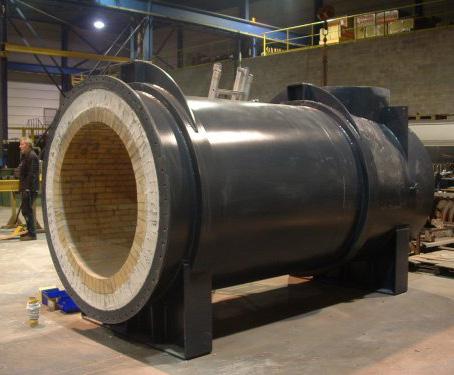
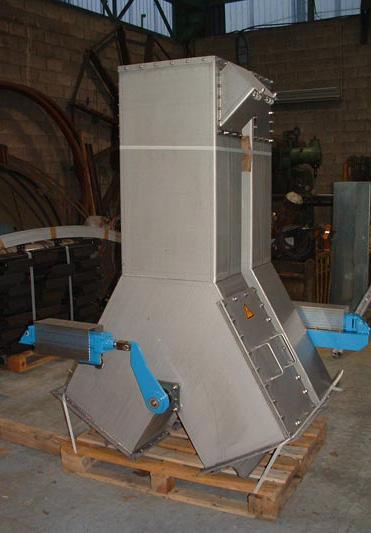
• Laser and plasma cutting
• Sheet metal folding and bending
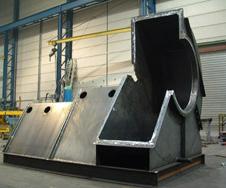


• All kinds of welding
• Engineering
info@ateliersmaquet.com
www.ateliersmaquet.com
on the export of raw agricultural products with little added value. The Virunga Alliance systematically tries to remove barriers to creating a healthier economy along the cultivation value chain,” states Balole.
Additionally, the Virunga Alliance has set multiple enterprises in motion to contribute to creating jobs. “We have helped launch the largest soap factory and the first high-quality chocolate factory in eastern DRC.”
This critical development programme has created a virtuous circle between conservation, economic development, and peace.
“A healthy Virunga National Park enables us to invest in job-creating initiatives and fostering peace. We’ve noted that for every 10 jobs created, one job is held by a former armed group member,” Gabriel reveals.
“We hope that by creating tens of thousands of jobs, we will be able to contribute to sustainable peace in eastern DRC. We owe that to Virunga National Park as it has lost over 200 rangers in the past 20 years, murdered by armed groups.”
Virunga Energies tracks its impact on the local community in various ways as part of its core mission. Furthermore, many of the team have seen first-hand how the advent of electricity has changed the lives of residents.
“Energy has radically transformed Congolese society. Initially, the electricity demand was for lighting and charging telephones. Household equipment was minimal, but radios, televisions, and computers were quickly acquired. At the same time, others had fridges and freezers, also used for commercial purposes,” Balole tells us.
In the Rutshuru area, which has great agricultural potential, some small businesses have bought mills for cassava, rice and maise, carpentry, welding and garage machinery, chick incubators, and more. Subsequently, this has boosted entrepreneurship.
Electricity has also changed how people work in schools, hospitals, and public administration offices, enabling them to work with electrical and electronic equipment. Concurrently, general lighting has transformed nighttime habits, reduced insecurity, and given the population greater confidence in business and leisure.
The advent of electricity in North Kivu has sparked a massive change in society. Businesses that would not have otherwise opened are now thriving, and the population have come to depend upon them.

“The arrival of Virunga Energies has significantly impacted my life and that of my fellow citizens. What was once a privilege reserved for a minority of families is no longer so. Access to energy has become normalised in our region. Of course, there are obstacles, such as costs, but less than eight years ago, there was no supply source,” recalls Josue Duha, Commercial Director at Virunga Energies.
“As a student, I remember when many people had to travel to our
Jérôme Gabriel, CEO: “We have developed long-lasting relationships with international and local suppliers. However, most electrical materials are procured internationally from highly specialised suppliers. We are incredibly fortunate to have maintained a stable core of suppliers throughout Virunga Energies’ existence. Usually, our suppliers are moved by the mission of Virunga National Park and understand that the company is more than just another electricity company.
“Local procurement is highly complicated for electrical materials. Normally, some standard elements can be found but are either of bad quality or too expensive. However, we work with local suppliers to procure almost anything unrelated to electrical materials. We hope to see a strong Congolese industry emerge one day, but we are not there yet.”
campus to obtain electricity because of a lack of permanent electricity in their homes,” adds Germain Kasayi, Lead Hydroplant Engineer at Virunga Energies.

“With Virunga Energies, there has been a considerable reduction in the number of groups where households all contribute towards a generator to light up an avenue and members’ homes. The generators had the negative consequences of air and noise pollution in the area.”
Now that Virunga Energies is active in the area, generators are redundant and have been consigned to history.
Saint-Gobain PAM is the world leader in complete ductile iron pipeline systems with comprehensive solutions dedicated to the transport of water
Its main product ranges include:
• Ductile iron pipes, fittings, from DN60 to 2,000mm for raw and potable water, irrigation and sewage.
• Valves, air valves, pressure regulating equipment and accessories (connectors and flanged fittings).
• Ductile iron municipal castings.
From its production facilities in Europe, China and Brazil, Saint-Gobain PAM has supplied water supply systems in Africa for more than 100 years and has thousands of prestigious references in more than 120 countries.

Driven by a strong willingness to ensure the availability and sustainable management of water and sanitation for all, we as PAM are the reference trusted partner in infrastructure solutions.

SAINT GOBAIN PAM
Telephone: +33 (0)3 83 80 73 20
Mobile: +33 (0) 6 38 21 16 56
E-mail: sebastien.chong@saint-gobain.com
Website: www.pamline.com
The two differentiators of Virunga Energies are its mission to save Virunga National Park and its people, as Gabriel’s and Balole’s colleagues will testify.
“Virunga Energies’ mission sets it apart from other companies; it serves people and breathes new life into an area. North Kivu has been a war scene for three decades. It is rebuilding the economic fabric of the province, based on a model that is as simple as it is practical, with incalculable positive consequences,” affirms Duha.
Whereas in Kasayi’s opinion, Virunga Energies is exceptional as its projects have a positive impact by catering to the needs of the people of North Kivu.
“The electricity supplied by Virunga Energies has created several
businesses, which in turn creates jobs for the unemployed, which leads us to conclude that the company both directly and indirectly employs a good number of the population.”
Virunga Energies’ objective is essential in a harsh environment such as eastern DRC, as it is one of the world’s most insecure and remote areas.
“Despite the risks and hardship, our achievements would not have been possible without individuals who have dedicated parts of their lives –sometimes at the cost of their life – to building Virunga National Park as it is today and continue to do so,” Gabriel tells us.
“Our collective mission is to help save Virunga National Park; as one of the most incredible and biodiverse areas on Earth, it unites us and gives us the rocket fuel required to hop over the roadblocks one may encounter in eastern DRC.”
The Virunga Alliance’s vision and code of ethics of zero corruption and governance form its foundation. In addition, Virunga Energies is a social enterprise with highly motivated teams working close to the locals.

As a vertically integrated company,
Virunga Energies maximises starting and completing work efficiently. The company trains its teams of engineers and technicians in different areas of hydroelectricity (production, transportation, distribution, and marketing), with a great deal of openness to innovate as a start-up.


“The company is constantly improving its way of working and adheres to international management standard procedures, which has earned it the confidence of many donors,” Balole acknowledges.
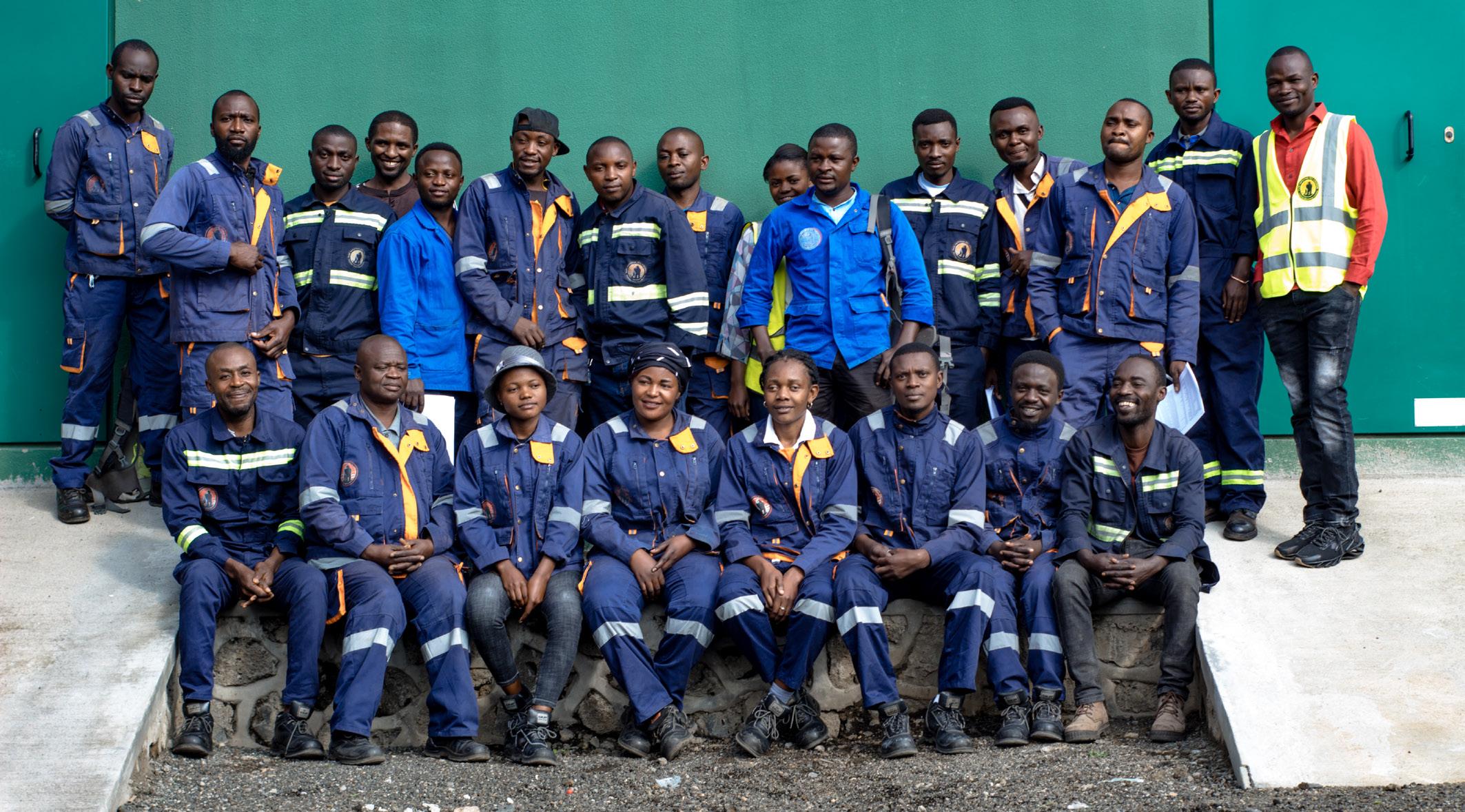
Virunga Energies is helping businesses to increase revenue from agricultural products by aiding field yield growth and striking profitable partnerships with leading export companies, as it has done for high-quality cocoa and speciality coffee, available here
All this includes supplying quality energy through access to clean and affordable electricity, providing cheap loans for capital to start a business, and building industrial zones.
The people and technology enabling transformation
KPMG firms operate in 143 countries and territories, and in FY22 collectively employed more than 265 000 partners and people, serving the needs of business, governments, public-sector agencies, not-for-profits and through KPMG firms’ audit and assurance practices, the capital markets

KPMG
In the coming year, Virunga Energies will focus on scaling its impact by constructing additional hydro assets and increasing its customer base.
“Next year, we will aim to finalise the new hydroelectric power plant in Rwanguba, in the province of North Kivu, if the security situation does not deteriorate too much,” Gabriel outlines.
The new plant will also require Virunga Energies to begin operating high voltages, the process of building a new high-voltage substation has already started as the company is growing its revenues by 30 percent each year.
“We have commissioned a new electrical grid in Goma, doubling the size of our network and enabling us to electrify hundreds of thousands of people in the coming months while providing free public lighting and electricity to social infrastructure,” Balole adds.

KPMG. Make the Difference.
Furthermore, Virunga Energies is currently building its fourth hydroelectric power plant, which will be the largest plant in eastern DRC and have the country’s longest penstock.
“It is an engineering and logistical challenge. Working conditions are tough, as the area is a theatre of conflict between the Congolese army and the armed M23 group,” Gabriel continues.
“If the team manages to finish it, Virunga Energies will be able to triple the availability in Goma, a city of one to two million inhabitants, which will have a significant impact
on people’s daily lives. In the not-toodistant future, we will aim to reach 105 megawatts (MW) of clean, renewable electricity and electrify North Kivu.”

It has been a long journey for Virunga Energies and the team. Still, it has successfully pioneered a path through DRC to provide clean electricity to communities, and its people-centric mission will ensure that both the company and residents living in and around Virunga National Park have a bright future.
energies.virunga.org
RDC a leading Audit, Tax & Legal and Advisory firm in the Democratic Republic of Congo, and a member of cluster “KPMG French- speaking subAudit Sylvain Bernasconi sylvainbernasconi@kpmg.cd Tax & Legal Louison Kiyombo lkiyombo@kpmg.cd Advisory Samba Diagola sdiagola@kpmg.cd Saharan Africa” made of five countries Ivory Coast, Togo, Cameroon, Republic of Congo and Democratic Republic of Congo KPMG RDC is committed to quality and service of excellence, bringing the best to clients and earning the public’s trust through our actions and behaviors both professionally and personallyOUR COLLECTIVE MISSION IS TO HELP SAVE VIRUNGA NATIONAL PARK; AS ONE OF THE MOST INCREDIBLE AND BIODIVERSE AREAS ON EARTH, IT UNITES US AND GIVES US THE ROCKET FUEL REQUIRED TO HOP OVER THE ROADBLOCKS OF EASTERN DRC”
– JÉRÔME GABRIEL, CEO, VIRUNGA ENERGIES

Writer: Jack Salter | Project Manager: Bex Middleton
Forming part of a healthy, balanced diet, milk and dairy products are great sources of protein and calcium.
Indeed, one glass of milk contains 30 percent of the daily calcium requirements for adults, and Dairy Group South Africa (DGSA) proudly supplies the continent with ultra-high temperature (UHT) milk, as well as butter, cheese, and other dairy products.
DGSA is a leading collector of raw milk and manufacturer of UHT products in South Africa (SA), whose tagline – We Are Milk – reflects its commitment to creating better business value and growth opportunities for all member dairy producers, who are at the heart of the business.
“We are the only farmer-owned dairy company in SA which means that we are very close to our main supplier source. As a low-margin business, it’s important that we’re aligned with our farmers,” begins DGSA CEO, Drikus Lubbe.
“We speak from one mouth, which allows us to think ahead and means we’re not overly profit-driven in the short term, although that’s important for DGSA going forwards. They also have a long-term view on milk supply and where we want to take the business.”

DGSA’s shareholding members are part of an esteemed national milk buyer network that extends to nearly every province in SA.
The company is proud of the solid relationship it has nurtured with members, extending back over several generations, and has devotedly succeeded in providing a home for milk, ensuring first-class dairy products are delivered to millions of South Africans every day.
“Farmers are our number one partner, not only as shareholders but in understanding the long-term game that we play. I have regular meetings with them, and we have committees and teams that look after them,” shares Lubbe.
“Both sides – the farmers and the business – must understand how we can help each other. The agricultural sector is not an easy one, and without the farmers, the business wouldn’t exist, so we work closely together.”
DGSA was founded in October 2020 as a merger between Dairy Farmers of
South Africa (DFSA) and Coega Dairy.
The former became fully operational in 2017 as a subsidiary of Clover, who Lubbe started working for in 1993 (then known as National Cooperative Dairies) and where he became one of the company’s youngest board members at the time in 2006 in the role of Executive Supply Chain Director, tasked with looking after the entire supply chain from farm to customer.
“In 2019, DFSA was battling to survive. I was asked to join DFSA as the new CEO and saw that the business model wasn’t working, merged it with Coega Dairy, and renamed it DGSA – the rest is history,” he recalls.
Following the merger, DGSA has been operating for over two-and-ahalf years and is now in the process of further mergers and acquisitions.
“Because we need to be low cost and have scale, we are busy talking to a number of other companies that want to join forces with us to create a better dairy platform, which will have a big impact on our business.”
Milk procurement – DGSA purchases milk regionally based on volume, locality, composition, and quality.


Protection – The interests of DGSA producers are protected by delivery agreements and/or supply contracts.
Reliability – Milk is collected timeously and sampled by reliable, well-trained truck drivers as well as being independently analysed by externally accredited labs.
Transparency – DGSA has a fair and transparent milk payment system, and nearly all factors affecting the price can be managed and influenced by the producer.
Feedback – Producers receive frequent feedback on milk volumes collected, as well as the latest sample analysis regarding milk composition and quality.
Support – Encouraging sustainable development for its producing members, DGSA applies its expertise in the establishment of internationally recognised best practices on their farms.
Communication – DGSA has the infrastructure in place to ensure frequent communication between all stakeholders. Producers are well represented on the group’s board to guarantee their voices are heard and interests protected.
Complaints – All complaints are addressed promptly and effectively. DGSA’s emphasis is on professional feedback and continuous improvement.













































































































if food packaging were carbon-neutral?







Food packaging plays a critical role in getting food safely to consumers around the world. But it can also cause problems for the planet. What if all food packaging came from plant-based materials and didn’t impact the climate? At Tetra Pak, we already have paper-based carton packages with reduced climate impact. But we won’t stop there. Our aim is to create cartons made solely from plant-based materials that are fully renewable, fully recyclable and carbon-neutral. It’s all part of our journey to deliver the world’s most sustainable food package.
Learn more at gonature.tetrapak.com







































Teamwork – DGSA’s flexible, ever-changing teams consistently speak up, experiment, reflect, listen intently, and integrate different facts and points of view to create new possibilities.
Integrity – DGSA is honest, does at it says, and consistently does what is right.
Trustworthiness – By accurately reporting current and past facts, being reliable, and fulfilling what it consents to do even if it means unexpected sacrifice, DGSA earns future trust.
Drive – Accomplishing the right goals at the right time, regardless of the circumstances.
Commitment – DGSA invests time and energy to complete each task it is assigned.
Resilience – Springing back into shape and recovering quickly from difficulties.
Operating in the Eastern Cape province of SA, DGSA has a UHT milk and butter factory that supplies Shoprite, Africa’s largest grocery retailer, as well as a plant that produces cheeses for Famous Brands, the continent’s leading branded food services franchisor.

“We supply all the cheeses for Famous Brands’ pizza and burger franchises,” Lubbe informs us.
As with its farmers, DGSA hunts for partners such as Shoprite and Famous Brands that are aligned with the company and its value chain.
After all, dairy is one of the most seasonal businesses in SA, with most of DGSA’s work taking place in the summer months, something that needs to be understood by partners.

“For us, it’s very important that we work on integrity, commitment, and
see through the whole value chain,” outlines Lubbe.
“No man is an island, and because we are a low-margin business, there’s no place for inefficiencies or extra costs. There needs to be solid relationships and an understanding from farm to store of everyone working together.”
With a large footprint of farms across the Eastern Cape, one of the poorer provinces in SA, it is likewise important to give back to the people and communities that support the business.
From Lubbe’s perspective, it’s equally vital that DGSA’s supply chain partners, from farmers to retailers, understand that the company recognises their importance and depends on them.
All hands are currently on deck to ensure DGSA gets through the current season, as dairy producers in SA continue to deal with load shedding. Daily power cuts and scheduled
blackouts have had a major impact, for example, on the processing and storage of milk.
“The world is aware of our load shedding issues, our road and rail infrastructure is falling to pieces, and security has always been a problem in SA, so basic services in the country are under threat,” Lubbe says.
“But it also creates opportunities for businesses that can think outside the box and exploit the issues and challenges we have, so we spend a lot of time thinking about how we can improve the power situation and get around road, rail, and security issues.”
Having supplied Shoprite short this year due to low milk flow in SA, farmers are being asked by DGSA to increase the collection of milk in the coming months.
“All the machines must be up and running, and our cash flow is ready to handle all the stock build-up to make
sure that we can supply our retail partners with the necessary product for the whole of next year - that’s our main focus,” assures Lubbe.
As a 100 percent dairy company owned by farmers, DGSA’s technical capabilities are built upon the likes of UHT milk, butter, and cheese.
Expanding into different commodities and product ranges, DGSA recently launched the Creamline brand, whose UHT milk and dairy blend products are lactose free for improved digestive wellness.
“Some of the technologies we’ve applied in the Creamline products are different in terms of how we want to play in the lactose-free space,” Lubbe outlines.
“Most Africans are lactose intolerant, but in SA, lactose-free products are sold at a premium. We
want to sell Creamline at just above the normal price, utilising our low-cost infrastructure. We just launched it at the end of last year, so we’ve been busy with that and it’s still early days.”
DGSA is passionate about growing the strength of the local dairy industry and the first-class products it sends across the continent.

By growing a culture of shared interests and opportunities within the local dairy industry, DGSA offers consumers a wide range of nutritional products at competitive prices.
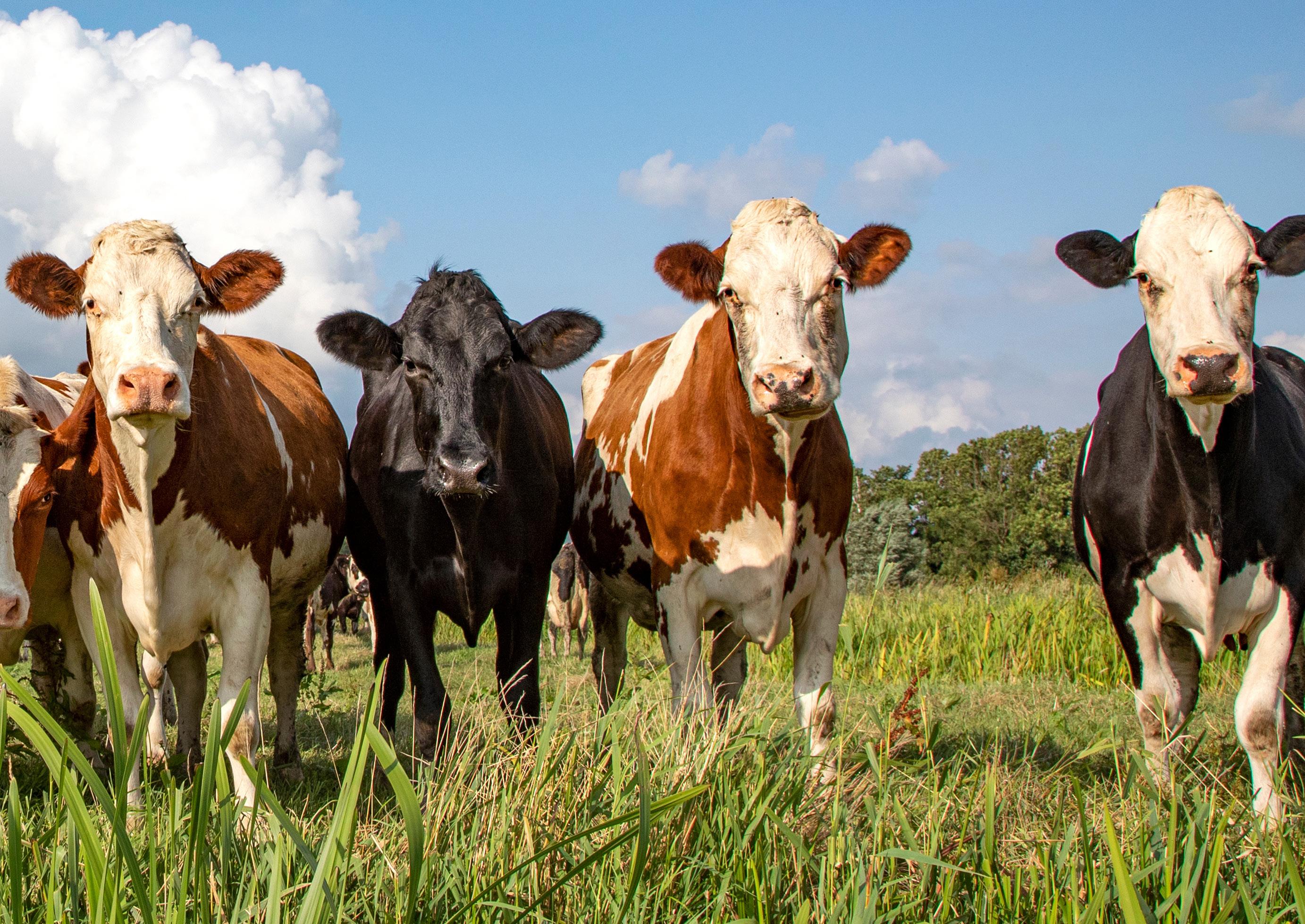
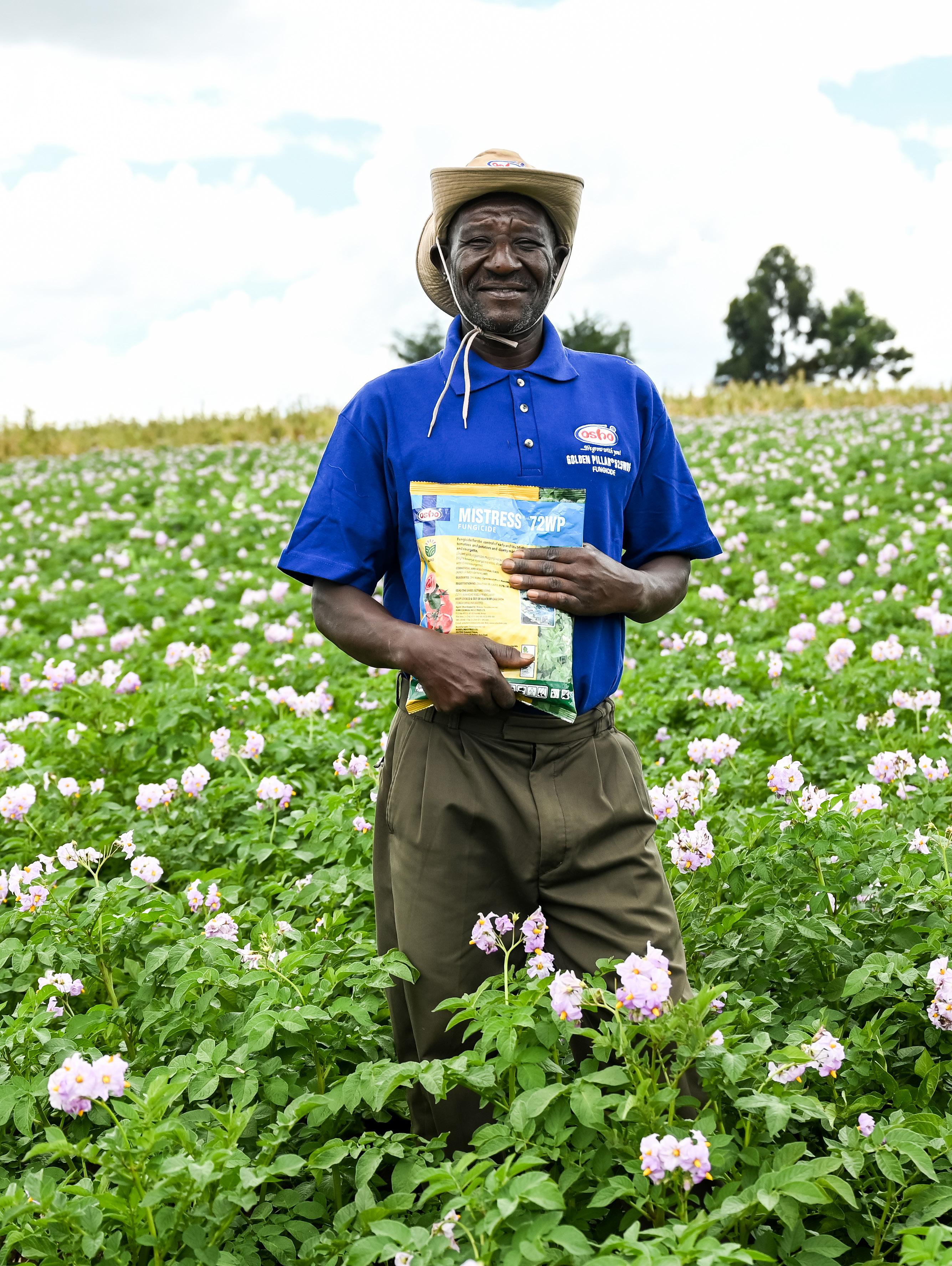
As Osho Chemicals Industries Ltd. celebrates its 30th anniversary, Rushabh Shah, Head of Sales and Marketing, tells us how the company has emerged in the African agribusiness sector as a key supporter of the local farming network
 Writer: Lucy Pilgrim | Project Manager: Bex Middleton
Writer: Lucy Pilgrim | Project Manager: Bex Middleton
Over the past three decades, Osho Chemicals Industries Ltd. (Osho Chemicals) has become firmly established as a dominant player in the agrochemical sector across multiple countries in East and Southern Africa. This includes a strong presence in Kenya, Malawi, Zambia, Uganda, Ethiopia, and Rwanda, gaining recognition for its outstanding products and services.
The company’s extensive distribution network of agrochemicals comprises over 500 distributors and 6,000 stockists, enabling Osho Chemicals to enjoy a vast reach.
“Our impact is significant, touching the lives of approximately 10 million farmers with diverse product offerings in agribusiness, animal health, public health, and industrial sprayers,” opens Rushabh Shah, Head of Sales and Marketing.
“We have developed from a small collective of six employees to a stronghold of 506 staff members, who are all fondly known as Osholites.”
Osho Chemicals came to life in 1993,
thanks to the work of Manoj Shah in Kenya. The company’s journey started by providing chemical inputs for the textile industry; from here, the founder identified a gap in the agricultural sector and strived to revolutionise the farming landscape across East and Southern Africa.
Consequently, from its humble position as a small-scale enterprise, Osho Chemicals quickly gained momentum due to its commitment
to quality and a customer-centric focus. This was further supported by the steady increase in its product portfolio, focused on developing innovative solutions for its varied clientele.
“Through strategic partnerships and investments in R&D, Osho Chemicals emerged as a trailblazer in the industry, continuously introducing cutting-edge products and sustainable agricultural practices. We have always believed in local manufacturing and now boast the largest manufacturing facility in East and Central Africa,” Shah proudly exclaims.
Currently, the African agricultural manufacturing industry is facing unprecedented challenges, which have caused the Kenyan shilling to depreciate drastically over the past year. Coupled with increasing taxes and rising costs, the industry has had many adverse knock-on effects in the wider agricultural sphere.
Established in March 2002, we specialise in various formulations with small packaging. Our main markets encompass Africa, Central America, and the Middle East. Our product range includes maize, wheat, tobacco, flowers, vegetables, fruits, and more. We possess numerous GLP reports and can assist with registrations worldwide. At Ningbo Finechem, we focus on helping our clients choose the right products, providing effective solutions and resolving
any challenges they may face. Our achievements speak for themselves: we hold over 100 registrations in Kenya, commanding a 30 percent market share. We are the top brand for agrochemical business in Iraq, a key supplier to tobacco plantations in Zimbabwe, and we are currently expanding into the Brazilian market with our unique maize herbicides consisting of three compounds.
We are eager to expand our business, and we would love to collaborate with you to develop local markets. Additionally, we have our own machinery and equipment brand called “EM” which caters to small farms and household gardens, reducing labour for farmers.

1. Ningbo Finechem - focusing on the production of the finished products with various small packagings.
2. Ningbo Huili Import and Export Co Ltd. - Focusing on the registration and logistics.
3. Agrichem (Ningbo) Ltd.Focusing on the R&D of TCs, especially the new moleculars.
4. Agora Agrichem Innovative Solution (Ningbo) Ltd. - Focusing on the technology and service of innovative solutions to our customers. Our services:

1. Custom manufacturing (technical and formulation)
2. Commercial small packaging
3. Supply of registration packages
4. Support of formulation technology
5. Help to provide agricultural solutions
Ningbo Finechem is committed to consistently providing cost-effective and technologically innovative solutions, which satisfy customer requirements in the field of crop protection and other non-crop specialty industries.

1. Develop, manufacture and market superior products.
2. Insist on an intimate and personalised relationship with customers.
3. Nurture and stimulate growth, profitability and enduring trust with all our stakeholders.
4. Strive for honesty and integrity in every aspect of the company’s service.
5. Maintain the highest standard of ethics and technical competence.
6. Provide a stimulating and empowering environment for employees to achieve growth and satisfaction.
7. Demand the highest standards of environmental responsibility and human safety.
Tel: 0086 574 87641881-8
Fax: 0086 574 87641880

Email: info@finechem.net.cn
Website: www.finechem.net.cn
“At Osho Chemicals, we deeply value the well-being of Kenyan farmers and their continued agricultural activities. Despite the cost
Osho Chemicals relies on a vast network of reliable suppliers to ensure a steady and timely supply of raw materials.


The company’s suppliers are an integral part of its value chain, enabling it to manufacture a diverse range of products on time and maintain a consistent flow of goods.
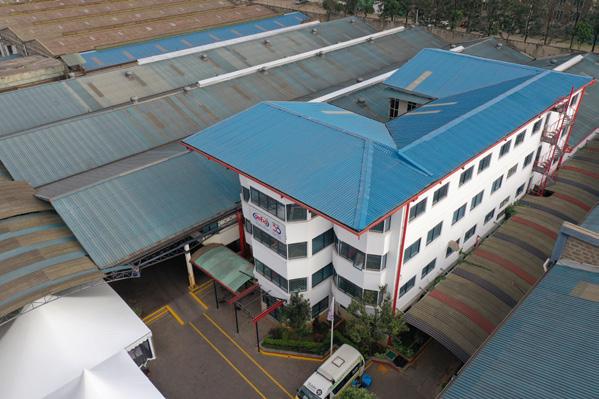
Therefore, great emphasis is placed by Osho Chemicals on fostering strong and transparent partnerships.
increases, we have made a conscious decision not to impose a major price increase on our products,” Shah emphasises.
To alleviate the pressure for local farmers, Osho Chemicals has focused instead on internal measures to mitigate the impact of rising costs. This foresees rigorous efforts in improving its processing, streamlining operations, and optimising efficiency across the supply chain.
“Our rationale is clear – we do not want to pass the financial burden down to the farmers who are already navigating difficult economic circumstances,” he adds.
By doing so, the company has already seen a reduction in its costs without compromising the quality of agricultural inputs.
On an external basis, Osho Chemicals has developed a robust strategy that revolves around visiting farmers directly in their fields to gain a clear understanding of the
client’s specific needs and tailoring its solutions accordingly.
“We firmly believe that understanding farmers’ concerns firsthand is the key to offering effective and relevant support. Our team of agricultural experts spends considerable time on-site, working closely with farmers to comprehend their unique circumstances, challenges, and aspirations,” Shah explains.
As such, Osho Chemicals endeavours to foster lasting relationships built on trust, mutual respect, and support to in turn improve its offerings and better service the needs of farmers.
By providing smaller and more affordable packages to smallscale clients, Osho Chemicals can help support the agricultural sector in being the backbone of local communities. Prior to Osho Chemicals, the multinational
corporations (MNCs) that dominated the market offered only large-sized packs, which were prohibitively expensive for small-scale farmers who had limited resources and landholdings.
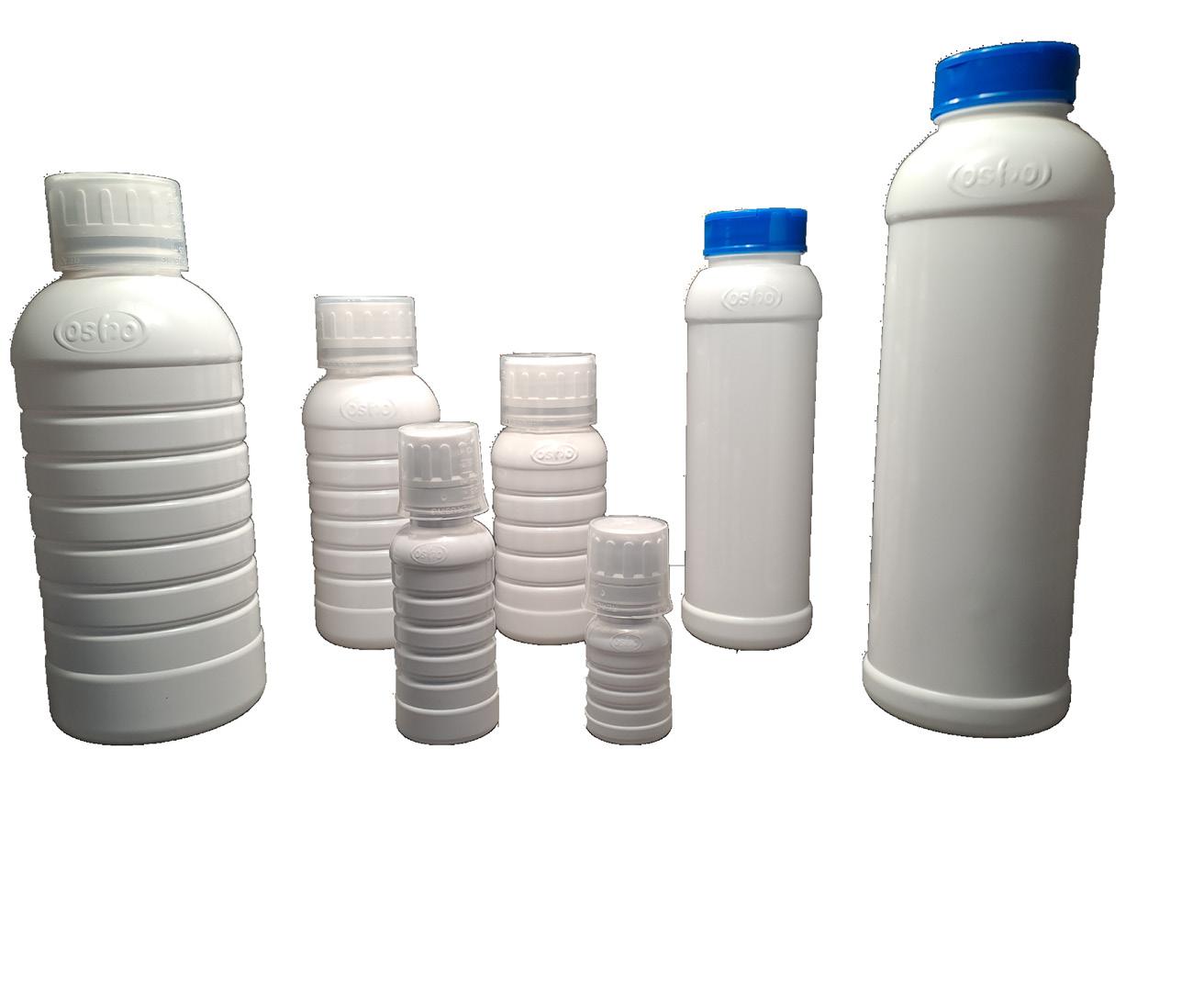


“The introduction of smaller packages of agricultural inputs proved to be a game-changer for small-scale farmers in Africa. The affordability and accessibility of these

products led to increased adoption rates, allowing farmers to enhance their crop yields and improve the overall quality of their products”, Shah states.
On top of this, Osho Chemicals has recently implemented a robust farmer outreach programme, which equips local growers with the essential knowledge, training, and support in the form of workshops,
field demonstrations, and seminars organised by the company. This aids farmers in staying up to date with modern agricultural practices, as well as enhancing their understanding of crop management and pest control techniques.
Additionally, Osho Chemicals takes pride in shaping future generations with its impactful internship programme, designed to provide young
“OUR UNWAVERING COMMITMENT TO THE WELL-BEING AND PROSPERITY OF KENYAN FARMERS REMAINS AT THE CORE OF OUR MISSION, AND WE WILL CONTINUE TO EXPLORE INNOVATIVE WAYS TO ADDRESS CHALLENGES AND CONTRIBUTE TO THE GROWTH OF THE AGRICULTURAL SECTOR”
– RUSHABH SHAH, HEAD OF SALES AND MARKETING, OSHO CHEMICALS INDUSTRIES LTD.
graduates with work experience and valuable exposure to the industry. The internship teaches younger generations practical skills and knowledge that complement their academic qualifications.
Moreover, the internship programme exemplifies Osho Chemicals’ commitment to investing in human capital and fostering a dynamic and talented workforce to drive the company’s future growth and success.
“Osho Chemicals places great importance on nurturing talent. This approach not only provides an opportunity for younger generations to launch their careers but also allows us to benefit from fresh perspectives and innovative ideas from the next generation of leaders,” highlights Shah.
One of the primary reasons Osho Chemicals has maintained its position as the number one choice for smallscale farmers is the production of high-quality agricultural inputs in a way that aligns with the shift towards sustainable farming.
By prioritising innovation and sustainable practices, Osho Chemicals aims to equip farmers with effective solutions that are not only safe for the environment, but also promote the long-term health and productivity of their crops, achieved through establishing a state of the art biological production facility.
This cutting-edge project is at the forefront of R&D, harnessing the power of naturally occurring microorganisms and biological agents to offer farmers effective alternatives to conventional chemical-based products.
Additionally, Osho Chemicals’ most recent project, the Pyrethrum, showcases its commitment to sustainable sourcing and community empowerment. The facility ensures a steady supply of high-quality pyrethrum flowers, a natural source of
AFRICA OUTLOOK: COULD YOU TELL US MORE ABOUT YOUR STAFF AND THE RECENT OPENING OF THE OSHO TRAINING ACADEMY?

Rushabh Shah, Head of Sales and Marketing: “Recognising the invaluable contribution of our workforce, the company has shifted its focus towards investing in the development and well-being of its employees. Central to this transformation is the establishment of the Osho Training Academy, to nurture and empower our people.
“The academy serves as a platform to equip employees with essential skills, knowledge, and personal development opportunities that go beyond their professional lives. By offering comprehensive training programmes and workshops, Osho Chemicals strives to empower its staff to excel in their roles, foster innovation, and cultivate leadership skills.
“We have also implemented a robust goal-based performance system alongside a recognition scheme to ensure all Osholites are aligned and working towards a common goal. This transition to a people-first approach reflects Osho Chemicals’ dedication to creating a positive and fulfilling work environment, fostering a sense of belonging among its workforce, and ultimately driving the company’s continued growth and success.”
pyrethrum that is a natural insecticide renowned for its effectiveness in crop protection and public health applications.
By contracting pyrethrum farmers, Osho Chemicals has established a mutually beneficial relationship that not only supports local farmers by providing them with a reliable market for their produce but also ensures the production of eco-friendly and safe agricultural practices and public health inputs.
Looking more towards operational expansion, Osho Chemicals envisions the establishment of a network of light manufacturing facilities in all
the countries in which it resides.
The ambitious plan is driven by the company’s commitment to localising its operations and contributing to the economic development of the regions that it serves.
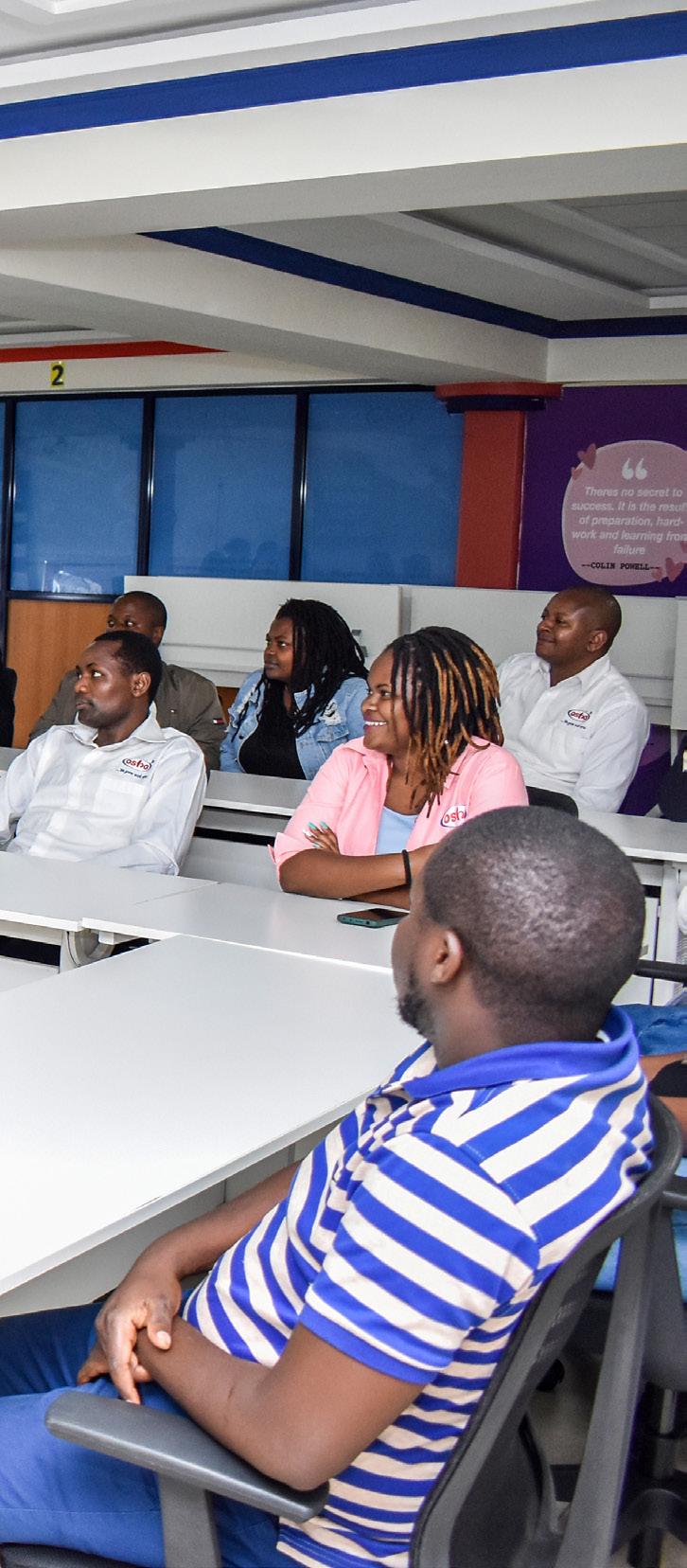
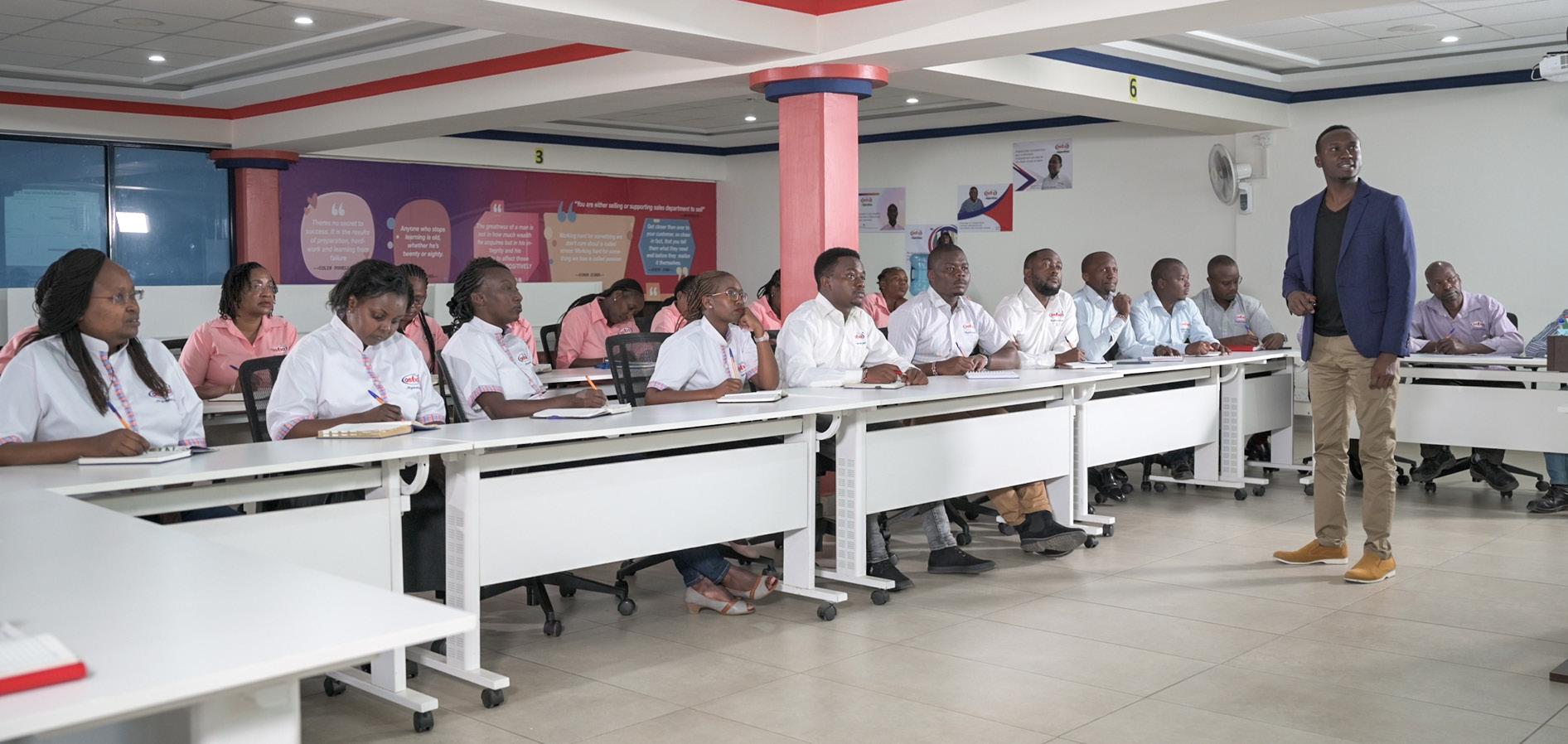
By setting up manufacturing facilities in these countries, Osho Chemicals aims to enhance its capacity to produce high-quality agricultural inputs at a more localised level, reducing logistical challenges and improving the availability of products to farmers.
Pointing towards future evolution, the company is on course to hit 53 percent growth this year and based upon the Vision 2025 plan, Osho Chemicals is striving for growth of 43
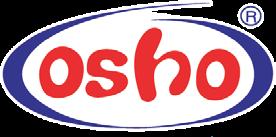

percent annually going forward.
“We have targeted expansion to new countries such as Somalia, the Democratic Republic of the Congo (DRC), and Zimbabwe within the next two years, and are focusing on growing our animal health and public health market position to be the number one choice of brand for our customers in those product portfolios,” concludes Shah.
Linhas Aéreas De Moçambique has an ongoing mission to deliver intercontinental services while advancing into the cargo freight sector. Director General Joao Jorge, tells us about the company’s journey

Writer: Rachel Carr
Project Manager: Cameron Lawrence
Flag carrier transport company, Linhas Aéreas De Moçambique (LAM) glided into the industry in 1980; today, the established airline is restructuring and intends to expand its operations over the next few years. With a hub at Maputo International Airport, LAM has overcome challenges and has remained unrivalled.
Having navigated LAM through the COVID-19 pandemic, Director General Joao Jorge is transporting the airline into a new era.
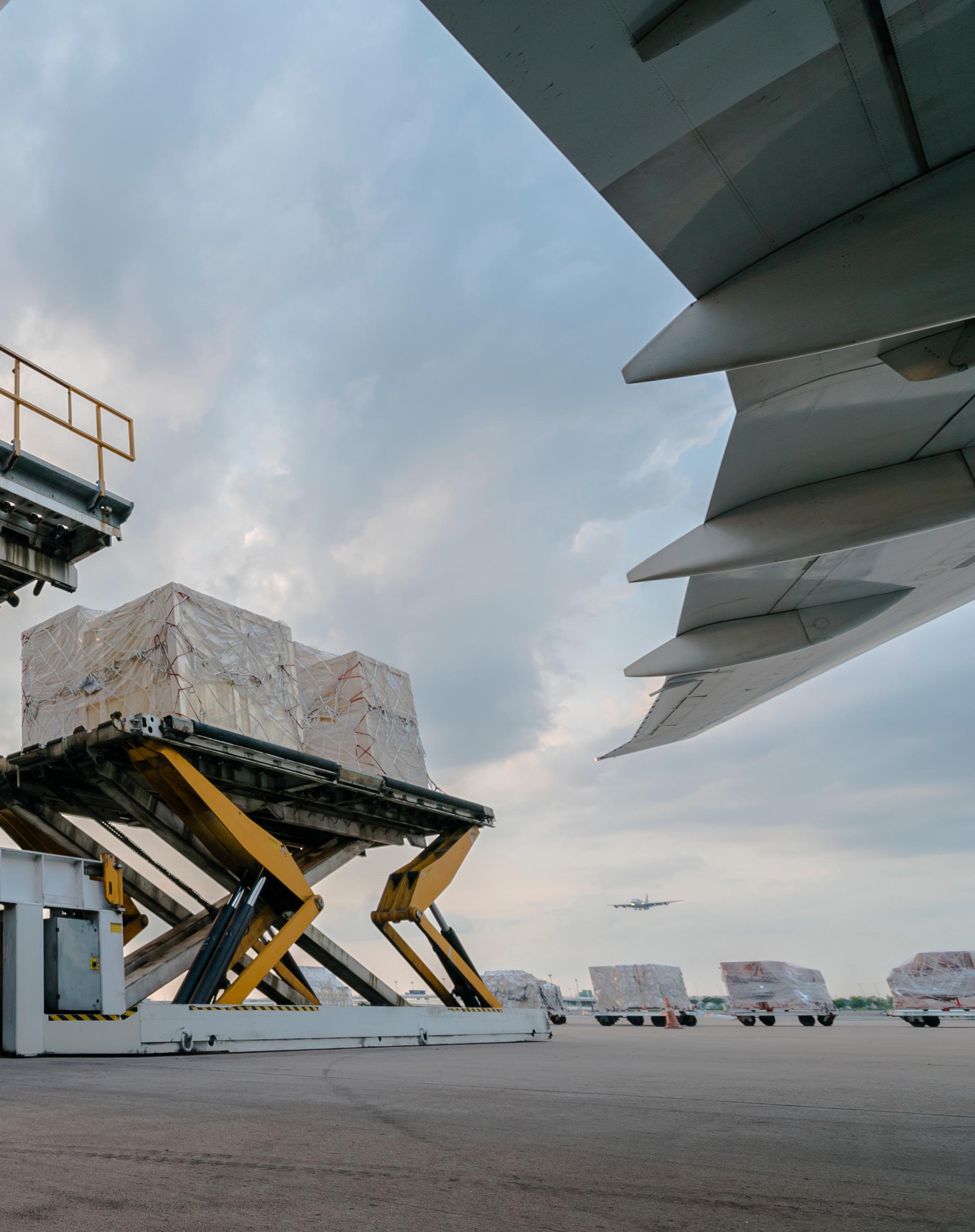
Jorge began his career in aviation when he joined Mozambique Airlines in 1985. However, he developed an interest in engines when working in Seattle and Washington in the US, when LAM
received the delivery of new aeroplanes, which further fuelled his interest in the more technical aspect of the industry.
“I was a technical representative in Zimbabwe and developed an interest in the management of maintenance, repair, and operations (MRO) as well as the wider airline,” opens Jorge.
“I provided a lot of support and coordination between airline management support and the Air Afrique airlines in the region, especially Niger. I started to expand into management sectors, such as operations, commercial, and financial,” he adds.
Following this, Jorge moved to Ethiopia, where the country’s airline experienced rapid growth and he became involved in the company’s management before returning to Mozambique, where he was offered the challenge of taking over as Director General of LAM.
Joao Jorge, Director General: “The workforce is the key to transformation and the success factor. After the COVID-19 pandemic, they realised that staying at home was a nice break from the everyday pressure of the airline industry.
“Therefore, to understand better what we learned from the COVID-19 pandemic, we need to pay attention to people and their comfort, tend to their needs and concerns and maybe provide some flexibility. This is warranted sometimes because we need a workforce here 24 hours a day, so we can perhaps accommodate specific changes.
“I believe that people should be the focal point. We can do anything and get aircraft, food, and fuel here very soon, but with staff, the most difficult thing is to get them trained to the level we need.”
As the aviation industry is continually evolving, so is LAM. As little as five years ago, the company underwent a restructuring process to improve the quality of its services. Prior to the disruptions of the COVID-19 pandemic, the aviation industry was a competitive market, so the airline had to work hard to obtain and retain a market share.
“The first thing was to capacitate the employees with management skills and safety culture. We wanted to become more customer-focused and serve a better schedule with more on-time performance,” reveals Jorge.
Indeed, employees’ safety, comfort, awareness, and integration featured heavily across the necessary processes and activities, as it was imperative for LAM to provide a full level of inclusion for the workforce.
In 2019, LAM introduced fleet standardisation and then slowly increased its fleet to its current aircraft numbers. Today, the company is venturing into the cargo freight sector and has plans for intercontinental travel.

“At the moment, we are working at adding some permanent cargo capacity in Mozambique. In the past
five years, we have lease serviced some aircraft with aircraft, crew, and maintenance insurance (ACMI), depending on the type of cargo we had, because each cargo can greatly differ, both in volume and the size of each unit,” details Jorge.
To cater to different capacities, LAM had to primarily rely on neighbouring South Africa or operators in Kenya with whom the airline has partnerships.
“There are also plans to restart intercontinental flights soon. We did it during the COVID-19 pandemic when there were difficulties in uplift from here to Europe, but now we strive to schedule flights before the end of the year.”
Portugal’s capital city, Lisbon, is LAM’s priority because of its cultural and historical links. Historically, Mozambique was a Portuguese colony, an overseas province, and later, a member state of Portugal. However, it gained independence from Portugal in 1975.
LAM is presently in an extensive government support programme together with a partnership company that was chosen to carry out a
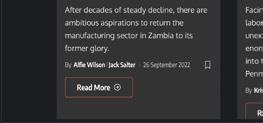



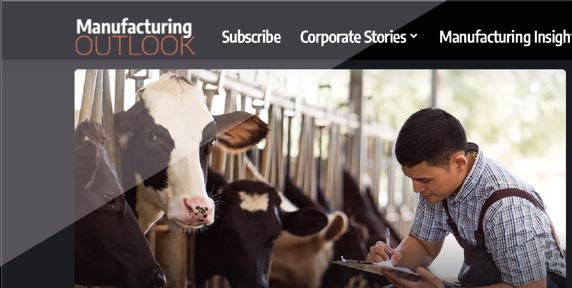













Building on the global success of its regional titles – Africa Outlook, EME Outlook, APAC Outlook, and North America Outlook – Outlook Publishing is proud to introduce a platform dedicated to the manufacturing sector.

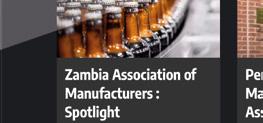







As manufacturing organisations worldwide confront unprecedented change, embracing technological innovations and incorporating critical environmental sustainability agendas, now more than ever is the time to showcase the strides being taken in this dynamic sector.


A multi-channel brand, Manufacturing Outlook brings you the positive developments driven by organisations across the global manufacturing industry through our various platforms. Discover exclusive content distributed through our website, online magazine, social media channels, and dispatches delivered straight to your inbox with a bi-weekly newsletter.
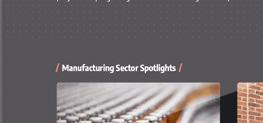
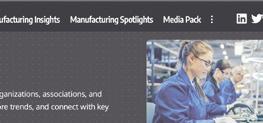




Through this compelling new venture, we foreground the movers and shakers of the industry. To participate as a featured company and join us in this exciting endeavour, contact one of our Project Managers today.
www.mfg-outlook.com/work-with-us






revamp. Although LAM is mostly a state-owned organisation, which has required a lot of change, it operates under a self-contained and selfsupported enterprise.
“We will experience challenges in the future, hence the revamp. But despite the development emerging as a difficult change, it is working out well for us. In the past few years, we have been working on incorporating a culture of safety in the business to overcome challenges,” Jorge informs us.
Significant steps are now being taken regarding fleet management, including MRO, networking, and people. LAM currently has seven aircraft, alongside two aircraft that operate from a subsidiary company almost fully integrated into LAM’s network. There are further plans to grow substantially in the next three to five years.
With training and development programmes already in place, LAM
“THE FIRST THING WAS TO PROVIDE THE EMPLOYEES WITH MANAGEMENT SKILLS AND SAFETY CULTURE. WE WANTED TO BECOME MORE CUSTOMER-FOCUSED AND SERVE A BETTER SCHEDULE WITH GREATER ON-TIME PERFORMANCE”
 – JOAO JORGE, DIRECTOR GENERAL, LINHAS AÉREAS DE MOÇAMBIQUE
– JOAO JORGE, DIRECTOR GENERAL, LINHAS AÉREAS DE MOÇAMBIQUE
invested not only money but attention to ensure its employees are prepared. To deliver management up-skilling, the airline facilitated a mini-Master of Business Administration (MBA) for staff as soon as the restructuring started.
“We introduced seminars into the company as well as sending people out to the International Air Transport Association (IATA), along with other airline initiatives on the market. We
tried to concentrate on more than just technical training: pilots, mechanics, and fight dispatchers. We believe that a varied training initiative is a strong pillar for persistent growth,” he states.
LAM were pleased to see the younger generation were also invested in what the company was doing. Dedication will dictate the airline’s future and the direction in which it wants to continue once everything has been established.

Although the number of flights were reduced during the COVID19 pandemic, LAM never ceased operations despite the global disruption. The need for the company to continue throughout this tumultuous time is because of Mozambique’s geography and transport infrastructure.
“Naturally, in the aftermath of the COVID-19 pandemic, the airline business picked up when everything began to reopen. Moreover, we are already back to our pre-pandemic numbers in terms of revenue, and it coincides with a major boom in the Mozambique economy.

“There is plenty of tourism and major oil and gas projects, alongside lots of business and nongovernmental organisation (NGO) support throughout the country, which creates a fair amount of traffic for us. It’s a very small but growing market,” notes Jorge.
want to recover our balance sheet in terms of some historic debt that we have that will need to be restructured, and then we want to begin our growth plan, which means a lot of interdomestic destination flights outside the hub of Maputo,” concludes Jorge.
LAM’s aim is to serve more than one destination in regional countries, which the airline has already started with regions such as Lusaka in Zambia and Harare in Zimbabwe, alongside Cape Town in South Africa. The company looks forward to expanding its network by serving Nairobi in Kenya and beyond.




•
•
•
Regarding the future, LAM has key priorities and goals for the year ahead, such as continuing its restructuring with the partner company brought in by the government and announcing a new programme soon.
“These experts will introduce some stability to the operational and financial side of the company. We


Angola Airlines is taking the opportunity to spread its wings and soar. We speak to CEO, Eduardo Fairen Soria about the company’s latest digital developments and fleet expansion

Writer: Alex Tuck
Project Manager: Cameron Lawrence
Though the global aviation industry was hit hard by the impact of the COVID19 pandemic, it is now on the rise once more, presenting a breadth of opportunities and challenges for airlines.
Standing as a key player in the African aviation space, TAAG Angola Airlines (TAAG) has experienced exactly that within the post-pandemic period. TAAG is a flagship airline and a leading company in Angola, promoting the country’s image all around the world.
Founded in 1938 and based in Luanda, the capital of Angola, TAAG has connected Angolans with its key domestic and international markets for more than 80 years. TAAG is the leading airline in the country, recognised worldwide for its strong
Eduardo Fairen Soria is an engineering graduate from the Spanish Air Force Academy and holds an MBA from the Complutense University of Madrid (UCM).
Employed as the CEO of TAAG since October 2021, Soria was previously CEO of Viva Air Peru (2017-2019), Chief Operations Officer (COO) and Senior Vice President of Maintenance at Viva Air Colombia (2014-2017), and has over 40 years of experience in the world of aviation, including a position as co-Founder of Vueling Airlines, part of International Airlines Group (IAG) in 2004.

Soria was Assistant Professor at the Autonomous University of Barcelona (UAB) for the Aeronautical Management Degree and the International Master of Aeronautical Management (2006-2009). On top of this, it is Soria’s personal experience that clearly displays his
high-yield market, having grown its current network to 14 domestic and 13 international destinations. In addition to passenger transport, TAAG’s cargo services play a major role connecting import/export hubs.
“TAAG is a company that prides itself on a strong track record of service and performance excellence,” begins Eduardo Fairen Soria, CEO of TAAG.
“We were built on the foundations of operational safety, quality, national and international collaboration, commitment, reliability, and a passion for professional service excellence, values that we still hold today.”
Following the COVID-19 pandemic period, airlines have faced the doubleedged sword that is the “return to
“We design and develop a comprehensive suite of software that offers fully integrated scheduling, slot management and submission, flightwatch operations, crew management, mobile and financial modelling tools.
In addition to our modules’ functionality, we have extensive IATA messaging and integration capabilities with other systems including DCS and MRO, making it easy for them to fit into your overall systems architecture.
We began our technology migration to a digital platform in 2019, and shortly after we released our first version of CrewVacation – an add-on to our core crewing module (CrewLogic) which is designed to manage crew holidays in browser technology. After CrewVacation’s release, we launched our new MobileApp for crew - CrewConnectin August 2021.
We are now pleased to report that over 5,000 crew members use our CrewApp so they can get the information on their rosters, training and details wherever they are, immediately, on their smart phone or tablet. We continue to expand the app’s scope to help both crew and crew planners.
If you want to be supplied with software that is modern, fast, dynamic and does what you need it to do, contact APM. We combine outstanding service delivered by a highly experienced and friendly team with our ever-improving software. These two factors have enabled us to proudly maintain our supply to TAAG for over 15 years and we look forward to supporting them in the next part of their strategy.”
passion and dedication to aviation; he has more than 17,000 hours logged as both a pilot and instructor, flying and working in different senior positions across four continents for companies like Iberia, Lufthansa, DHL, Air Arabia and CamairCo.
www.apmtechnologies.com
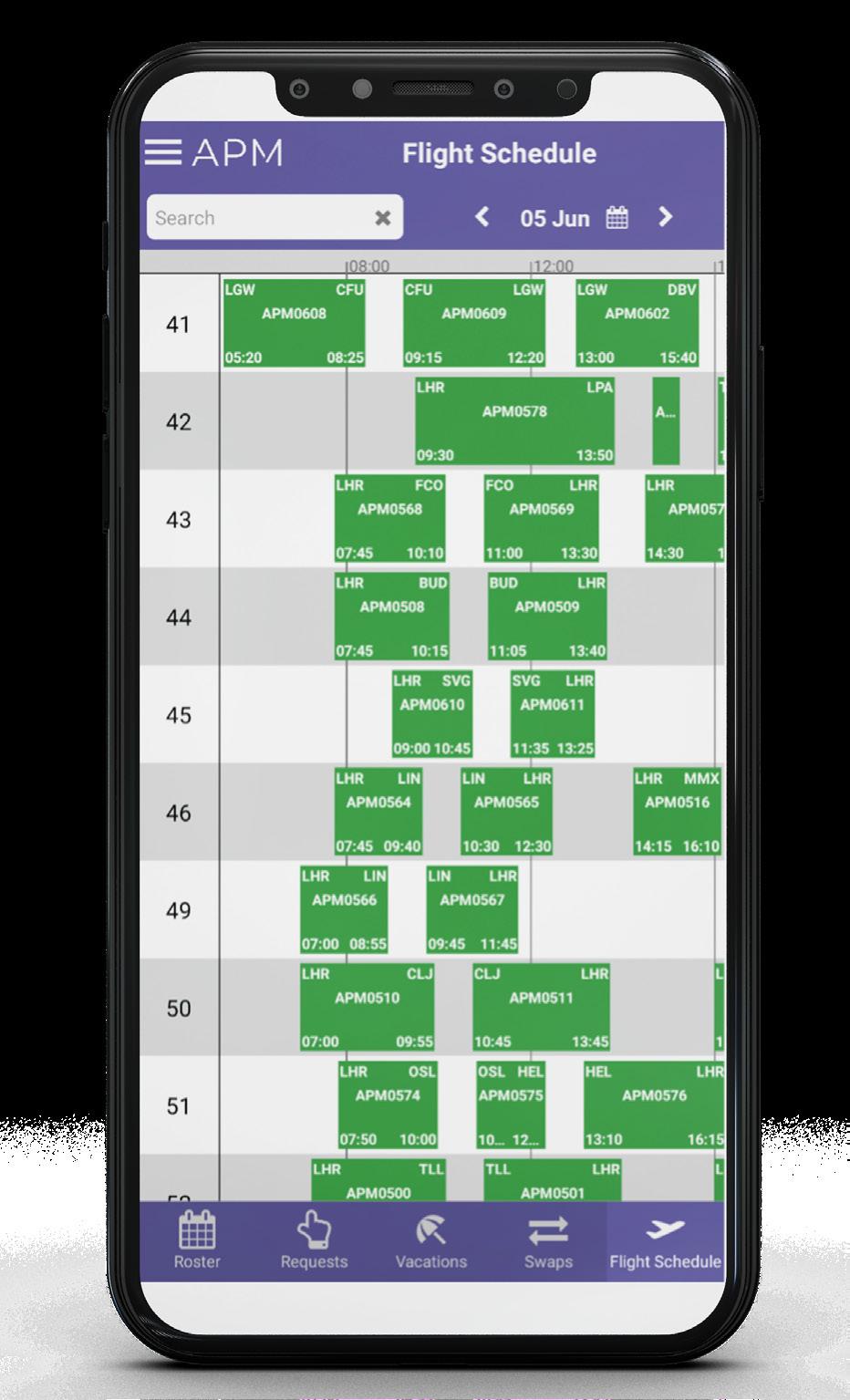
APM is delighted to be celebrating 20 years in business and is very proud to have supplied TAAG with our aircraft scheduling, flight watch and crewing software since 2007. At the centre of everything we do is the creation of software that is easy-to use while providing the peace of mind and the competitive edge you need to run a successful airline.

normality”. As such, opportunity and challenge are rife within the sector, and for TAAG, there is more to come in the years ahead.
In 2024, Angola is set to join the Open Sky Agreement in Africa which will bring fierce competition from abroad. The agreement commits to the deregulation of air services across the countries involved and promotes regional air markets to transnational competition.
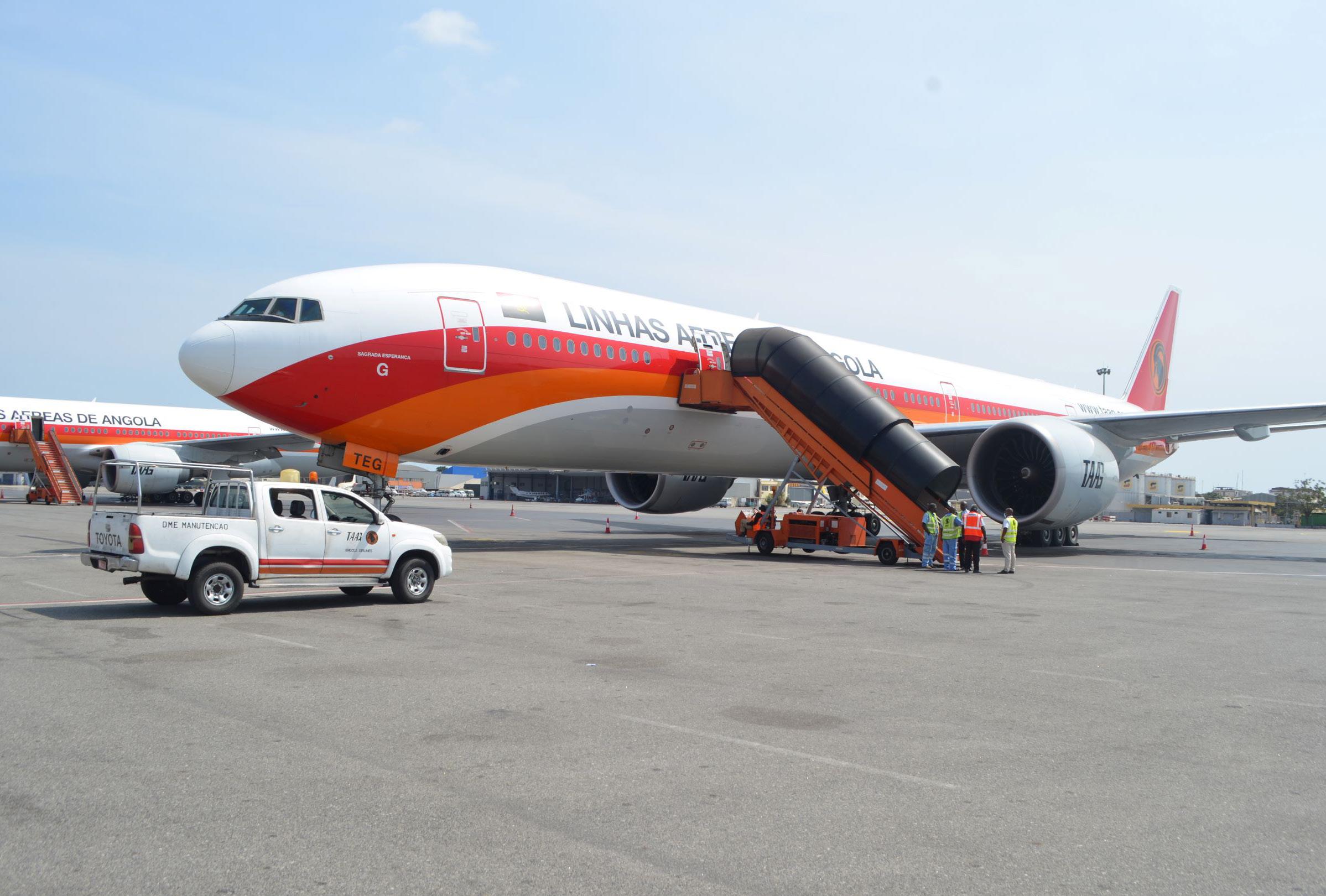
“In light of this, TAAG will have to prepare itself for such a challenge, which includes not only expansion but also the adaptation of the entire mindset of the company within the Angolan aviation ecosystem,” Soria explains. “We are working with
stakeholders to adapt the features of our services to suit the needs of our passengers, staff and partners.”
Part of this adaptation is the company’s attention to its cargo division. TAAG currently transports cargo to in-country destinations as well as internationally across South America, Europe, Asia and Africa, and is well known in the industry for its swift and safe transportation.
“We have very strong traffic in the cargo space, and we had a window of opportunity during the pandemic to show what we can do in this area,” Soria elaborates. “We are still seeing the need for regular cargo operations when it comes to China, South America, and Africa, and we
are one operator that facilitates cargo transport between these regions.
“We want to develop this service with larger aircraft, and on top of this, we are looking to source some freighters that can operate for us until we have our own fleet of such aircraft.”
Outside of its many African destinations, which include Cape Town and Johannesburg in South Africa, TAAG offers transatlantic flights to Cuba and Brazil, as well as Portugal and Spain, and a rich variety of locations in Europe via the codeshare/interline agreement with
“WE WERE BUILT ON THE FOUNDATIONS OF OPERATIONAL SAFETY, QUALITY, NATIONAL AND INTERNATIONAL COLLABORATION, COMMITMENT, RELIABILITY, AND A PASSION FOR PROFESSIONAL SERVICE EXCELLENCE –VALUES THAT WE STILL HOLD TODAY”
– EDUARDO FAIREN SORIA, CEO, TAAG ANGOLA AIRLINES
Iberia. Since the international airline industry was pushed back into gear after the COVID-19 pandemic, TAAG has set its eyes on strengthening its existing network.


“2022 was the year that we tried to record our operations and restate the routes that, historically, had been the most profitable and held a greater market demand pre-COVID-19,” Soria tells us. “Among these, routes to Portugal, Johannesburg and Brazil stood out.”
TAAG used this post-pandemic opportunity to tactically reopen and sell services to new destinations, increasing the airline’s route connectivity and industry partnerships that it was previously unable to. TAAG is not only connecting Angola to Portugal and Spain, but also key cities in Europe operating through the Madrid hubwith connection flights powered by Iberia to London, Milan, Rome, Geneva, Zurich, or Brussels.
“We want to expand this so that we can connect more people, not only from Angola but also the different destinations that we operate on the southern side of Africa, as part of our plan for the intercontinental market,” Soria adds.

As for the regional and domestic markets, TAAG has been met by challenges. According to Soria, regionally speaking, some of the markets have recently taken a downturn that has impacted TAAG’s regional services. Domestically, TAAG introduced two Dash-8 aircraft last year – growing from four to six – and increased the frequencies of such flights to domestic destinations by approximately 40 percent, making use of its new fleet to help grow in the market.
strengthen our intercontinental destinations rather than open up many new destinations in the segment,” Soria states. “In the regional and domestic markets, our intention is to grow by around 10 percent with regard to new destinations, which will consist of probably two or three new locations, but we will also be consolidating and strengthening the regional and domestic networks – the latter is the main goal for this year.”
In January, TAAG exhibited its services at the international tourism trade fair, FITUR, a global meeting point for tourism professionals that took place in Madrid. FITUR allowed TAAG to raise awareness about the strategic Luanda-Madrid-Luanda route operated by TAAG since July 2022, and highlighted Angola and TAAG destinations to a global audience.
TAAG offers customers three weekly flights, departing from Luanda on Tuesdays, Thursdays, and Sundays. Typically, the route is operated by
Boeing 777-300 aircraft with a total capacity of 289 passengers, eight in first class, 53 in business class, and 228 in economy class. Overall, the company has registered more than 19,500 passengers since the beginning of the Luanda-Madrid operation. The perspectives for 2023 are quite optimistic as a result of fewer restrictions related to the pandemic and the pace of travel recovery, not to mention the strong diplomatic and business relationship between Angola and Spain.
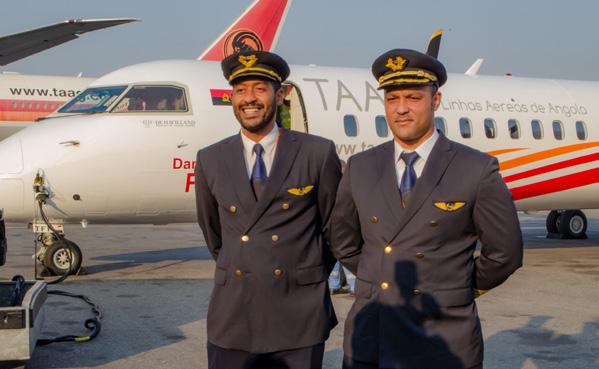

According to the Embassy of Spain in Angola, there are more than 60 companies operating in-country from multiple business segments, such as energy, banking, construction, industry, health, education, agriculture, and geology. It’s fair to conclude that Angola has become a key country for Spain’s growth strategy in Africa. The codeshare and interline partnership signed between TAAG and the Spanish airline Iberia in May 2022 is benefiting passengers,
who can acquire a single ticket in local currency suitable for both airlines’ itineraries, accessing TAAG/ Iberia destinations combined. Iberia passengers in transit or departing from Madrid have Luanda as a key gateway to the African continent, meaning entrepreneurs, tourists, and traffic overall are redirected to Angola
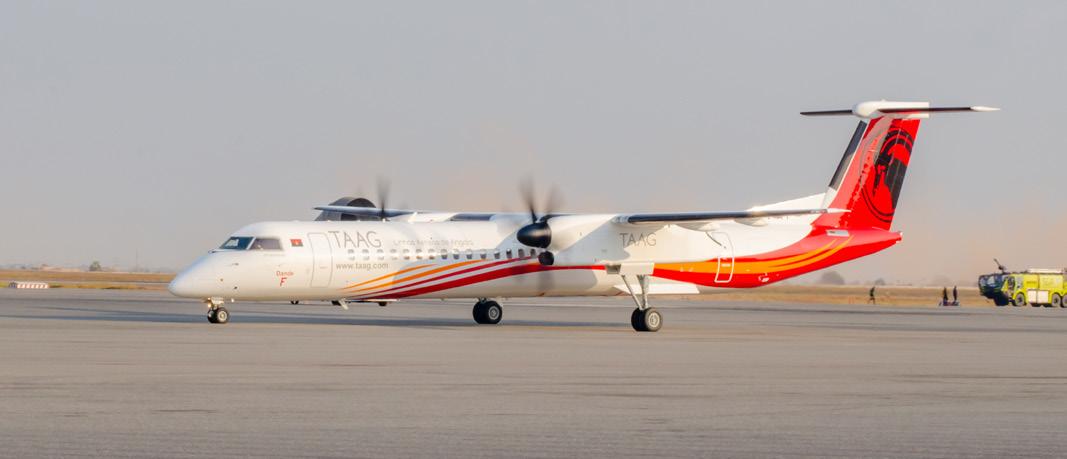
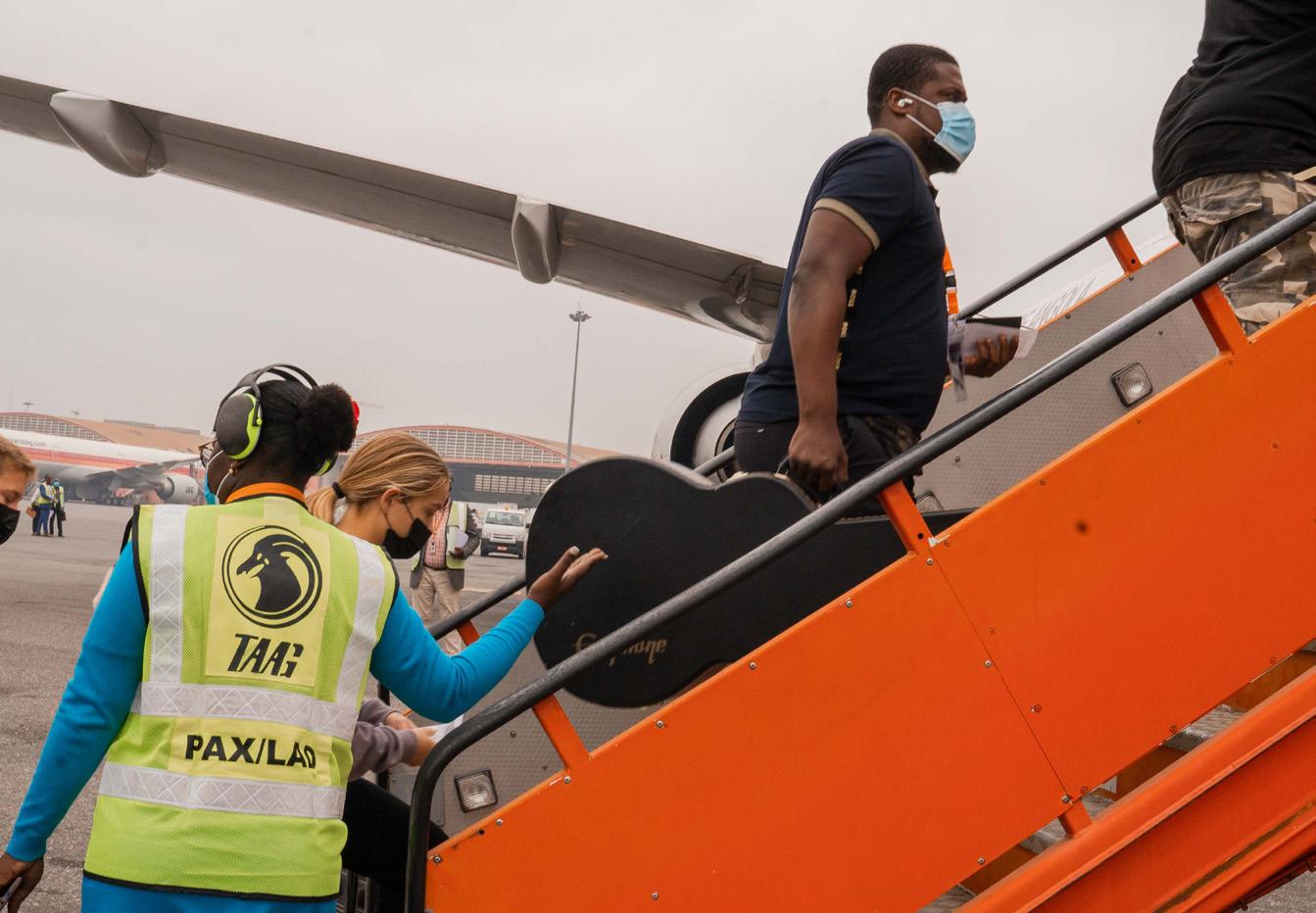
and TAAG destinations in Africa and South America.
TAAG passengers in transit or departing from Luanda may have Madrid as a destination or connection to other European cities such as London (United Kingdom), Amsterdam (Netherlands), Rome and Milan (Italy), Geneva and Zurich, (Switzerland), Brussels (Belgium) and Porto (Portugal) as well as domestic destinations in Spain. Developing the Luanda-Madrid route is part of TAAG’s vision which aims to transform
TAAG Angola Airlines has registered more than 19,500 passengers since the beginning of the Luanda-Madrid operationLuanda into a strategic hub in Africa, considering the country’s geographic competitive advantage and ability to facilitate connections between east-west (Asia-Africa-America) and north-south (Europe-Africa).
Moving forward into 2023, TAAG is driving its own internal developments. On the digital side, the company is changing its IT infrastructure as well as moving its headquarters to a new building, the latter underpinning this
“This transition is not only to cover our day-to-day needs, but also to help with the incorporation of new aircraft such as the Airbus 220s, and hopefully next year, a new set of wide-body planes that we are negotiating with Airbus and Boeing,” Soria explains. “If all goes well, these aircraft require a very high band of data in order to be operated and we will have to deploy and build all this IT infrastructure to be in place before any of these aircraft can join us.
“This may be very time-consuming
today, but it is a necessary step on the path to securing the full digital transformation for TAAG’s future.”
Alongside aircraft, a more visible example of TAAG’s digital transformation includes the deployment of its new website that is currently under development, which will include upgraded elements such as an easier and fluid booking process for customers.
“Our goal for 2023 is to strengthen our network, make it more efficient and introduce new services alongside our new website,” Soria tells us. “We also want to open two or three new regional destinations this year while we expect to receive the Airbus 220s in 2024.”
According to Soria, the Airbus 220s are known for their quality, comfort, fuel economy and sustainability, and so this is a point of excitement for the company. For TAAG, 2023 represents a stepping stone and a year of transition from which the company will soar into the future of aviation as a key player in the competitive airline space.
TAAG ANGOLA AIRLINES
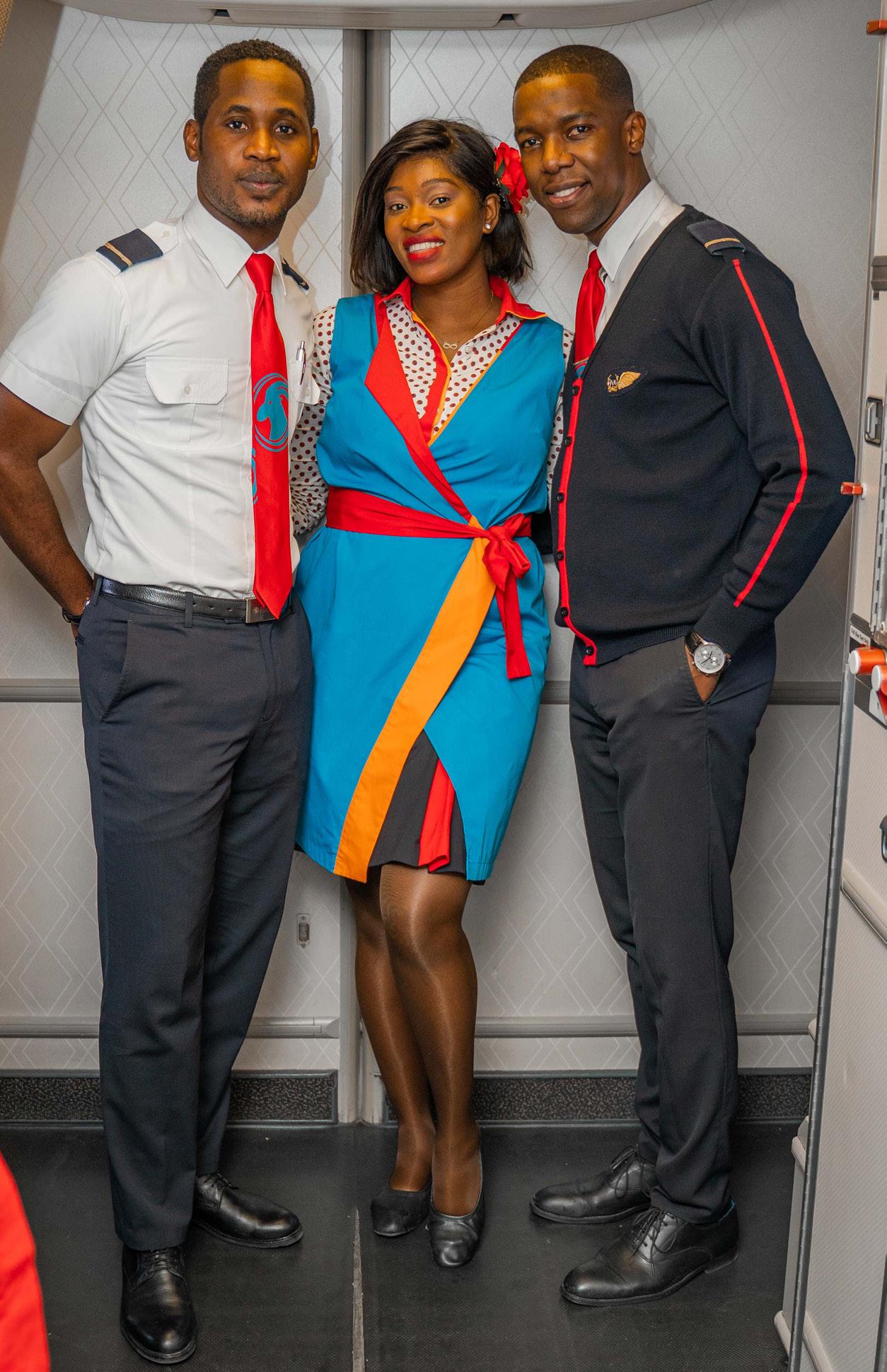
Tel: Tel: +244 923 190 000
www.taag.com
“TAAG IS A COMPANY THAT PRIDES ITSELF ON A STRONG TRACK RECORD OF SERVICE AND PERFORMANCE EXCELLENCE”
– EDUARDO FAIREN SORIA, CEO, TAAG ANGOLA AIRLINES
APM Terminals has been expertly operating advanced ports and container terminals for over half a century. We speak to CEO, Frederik Klinke, about the company’s vital work and its goal of lifting global trade
Writer: Ed Budds | Project Manager: Cameron Lawrence

The container terminal industry is modernising and upgrading rapidly across Africa, especially in the west, as fresh development continues to engulf the numerous ports scattered throughout the continent’s cluster of sweeping coastlines.

In the early 2000s, public-private partnerships (PPP) transformed and improved the capacity of these ports throughout Africa. Now, terminals across the western region are upgrading to handle large container vessels with capacities of 14,000 TEU
or more. This is a vital step forward to ensure the economic development of the continent is followed by the equivalent growth of its burgeoning ports industry.
As part of A.P. Moller-Maersk, a Danish shipping and logistics company, APM Terminals has been lifting standards for developing and operating advanced ports and container terminals for over half a century, and more recently as an independent division since January 2001.
Now, with facilities in 65 key locations around the globe and
several more in development, APM Terminals is lifting the standard of efficiency, responsibility, connectivity, and digital integration across the industry.
Part of this extensive global network, APM Terminals Nigeria operates container terminals in Apapa port (Lagos) and Onne, Rivers State, as well as a container depot in Kano. Between the three facilities, APM Terminals Nigeria both directly and indirectly employs about 2,500 staff members, 99 percent of whom are Nigerian.
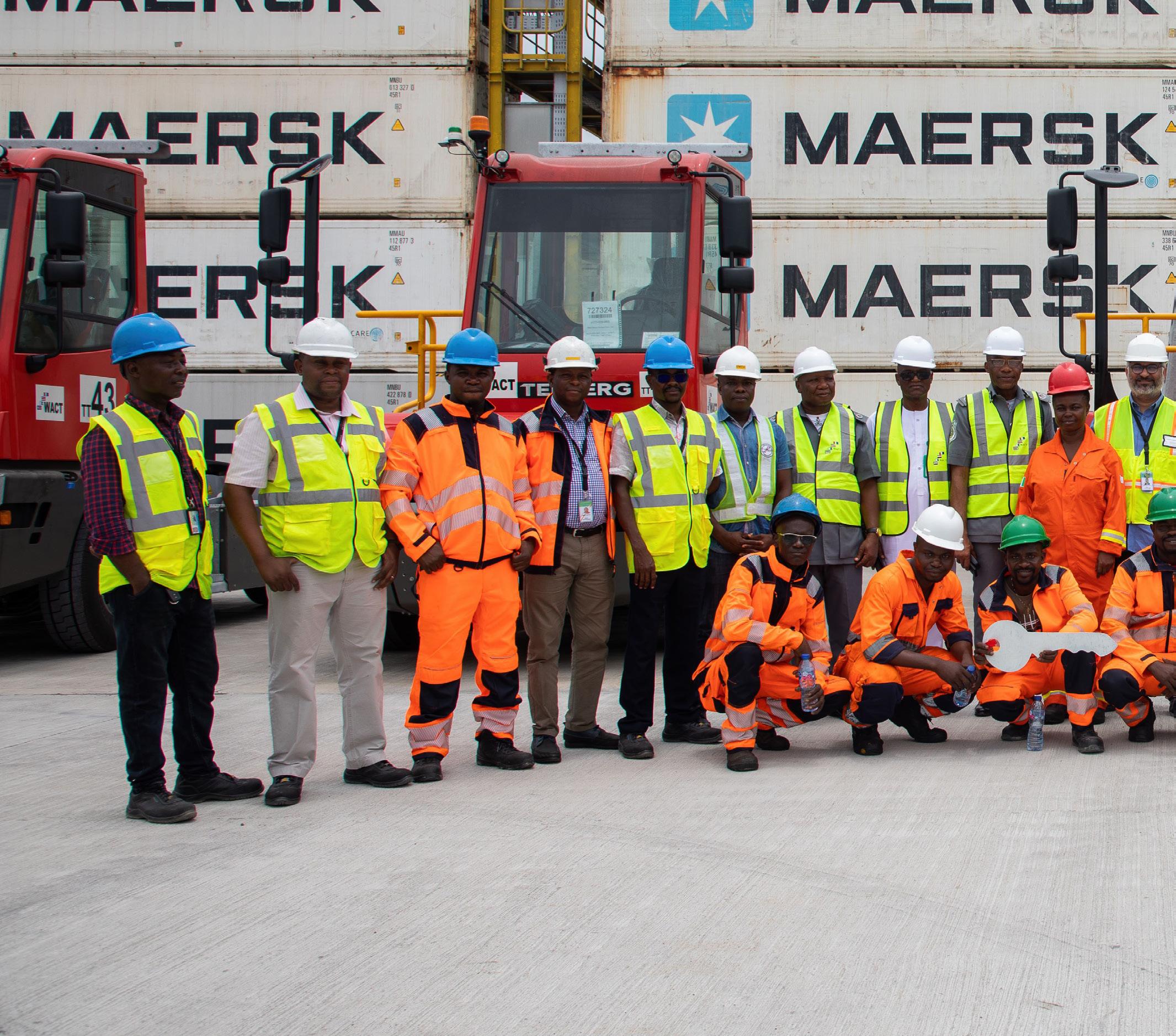

“WE BELIEVE IN RECOGNISING GREAT ACHIEVEMENTS AND BEHAVIOUR FROM ALL EMPLOYEES, AND HAVE CREATED VARIOUS AWARDS FOR CONTRIBUTIONS WITHIN SAFETY AND CONTINUOUS IMPROVEMENT”
– FREDERIK KLINKE, CEO, APM TERMINALS NIGERIA
“Our role in the supply chain is to receive and deliver containers between sea and land. We operate container vessels for the majority of the world’s leading container lines as our primary clients,” introduces Frederik Klinke, CEO of APM Terminals Nigeria.
“It’s equally important that we facilitate the delivery and reception of import and export containers, whilst also providing other services for a large number of landside customers or shippers,” he continues.
Having spent time in the shipping and logistics divisions of the Maersk business, Frederik had the opportunity in 2010 to take up a role with APM Terminals in a newbuild transshipment terminal in Tangier, Morocco, providing a great introduction to the industry as it featured a great combination of local market and global network integration.
It is the unwavering ambition of APM Terminals to be the world’s best terminal company, and the overarching plan is to achieve this by constantly improving the client and customer experience at each of its 65 key locations around the globe, including Nigeria.
“We serve shipping line and landside customers, seamlessly integrating land and sea to ensure supply chains are safe and undisrupted,” states Frederik.
With the safety of its people setting the foundation of the way the company conducts all business, APM Terminals Nigeria is continuously developing new products and services that add value for its customers. This is alongside applying leaner thinking and operational excellence to raise overall standards of efficiency.
“Our engaged and empowered workforce elevates standards of proactivity by anticipating and adapting to customer needs. We are inspired by our core values of uprightness and constant care to elevate standards of reliability,” he elaborates.
“Powered by new technologies, we harness the potential of digitalisation to lift the standard of connectivity and communication in co-creation with our customers, shaping the future of port and terminal logistics to drive growth.”
APM Terminals Nigeria takes pride in its strong connection with local communities where it operates, and the role it plays in connecting domestic production with the global marketplace to improve local living standards. Similarly, the company aims to enhance connectivity with intermodal solutions to ease the flow in logistics chains.

This focus on lifting standards extends to the sustainability of APM Terminals Nigeria and its operations, as the company remains firmly committed to becoming net zero by 2040. To achieve this milestone, APM Terminals Nigeria has defined a pathway to decarbonisation made possible by energy optimisation, electrification, and the increased use of renewable energy.
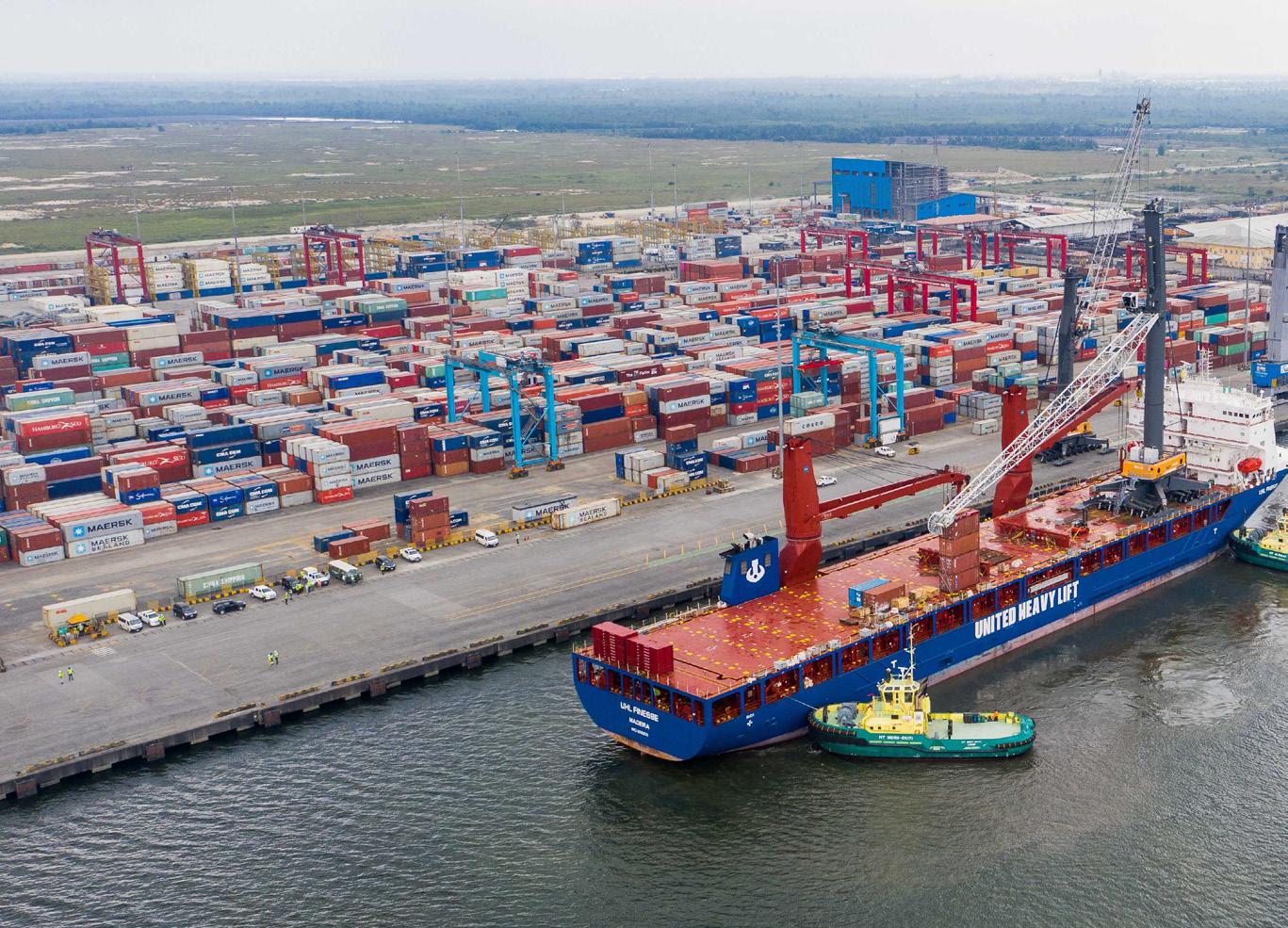
• Quick delivery when loading and offloading containers in the terminal
• Fast positioning of cargo for examination and scanning
• The terminal locations give APM Terminals Nigeria better accessibility because of less traffic and congestion
• Quick transfer processing which is done anytime customers visit the terminal
• One payment method: customers pay an Apapa THC and Kano service charge after a container arrives, facilitating the quick load-out of containers
FLEXIBLE
• Large terminal capacity for the handling of containers and trucks
• Spare space to accommodate waiting trucks
• Additional warehouse for storage of exportable commodities
• Regional and global coverage through an extensive network of ports and inland locations
SERVICE-MINDED
• Automated system for invoicing and tracking containers
• Time of opening and closing of the terminal is flexible for customers
• Trusted team of experts to provide tailored logistics solutions
• Cordial customer service relationship and team
• Onsite engineering team
• APM Terminals Nigeria has its own depots, truck fleet, handling equipment and other assets
• Non-editable invoicing system
• Secure environment
• Insurance coverage for all in-transit units
• Highest standards of safety, transparency, and compliance in the industry
• Zero shipping line detention and demurrage after empty drop-off in Kano
“Together, we can make the future of global trade more sustainable,” Frederik declares confidently.
Developing talent is an intrinsic part of APM Terminals Nigeria’s strategy, and this commitment to evolving its people and processes continues to define the company’s ambitious growth strategy as it heads into an exciting future.
“We have trained a large number of Nigerians to become supervisors, managers and executives in our industry. Over the course of 17 years, we have operated extensively in Nigeria, reducing the number of expats required to run our operations from close to 100 to less than 20,” describes Frederik.
Operating out of its own technical training facility in Lagos, APM Terminals Nigeria provides practical and theoretical training to hundreds of employees. These enhanced processes range from crane operations to the mastery of advanced learning tools and nurturing future leadership development.
All APM Terminals Nigeria employees have a development plan that aims to achieve their ambitions, and outlines how the company can help to facilitate their goals in support
of its own business objectives and strategy. This includes training and education, but also assignments abroad and exchange programmes with other terminals in the group.
“We believe in recognising great achievements and behaviour from all employees, and have created various awards for contributions within safety and continuous improvement,” he adds enthusiastically.
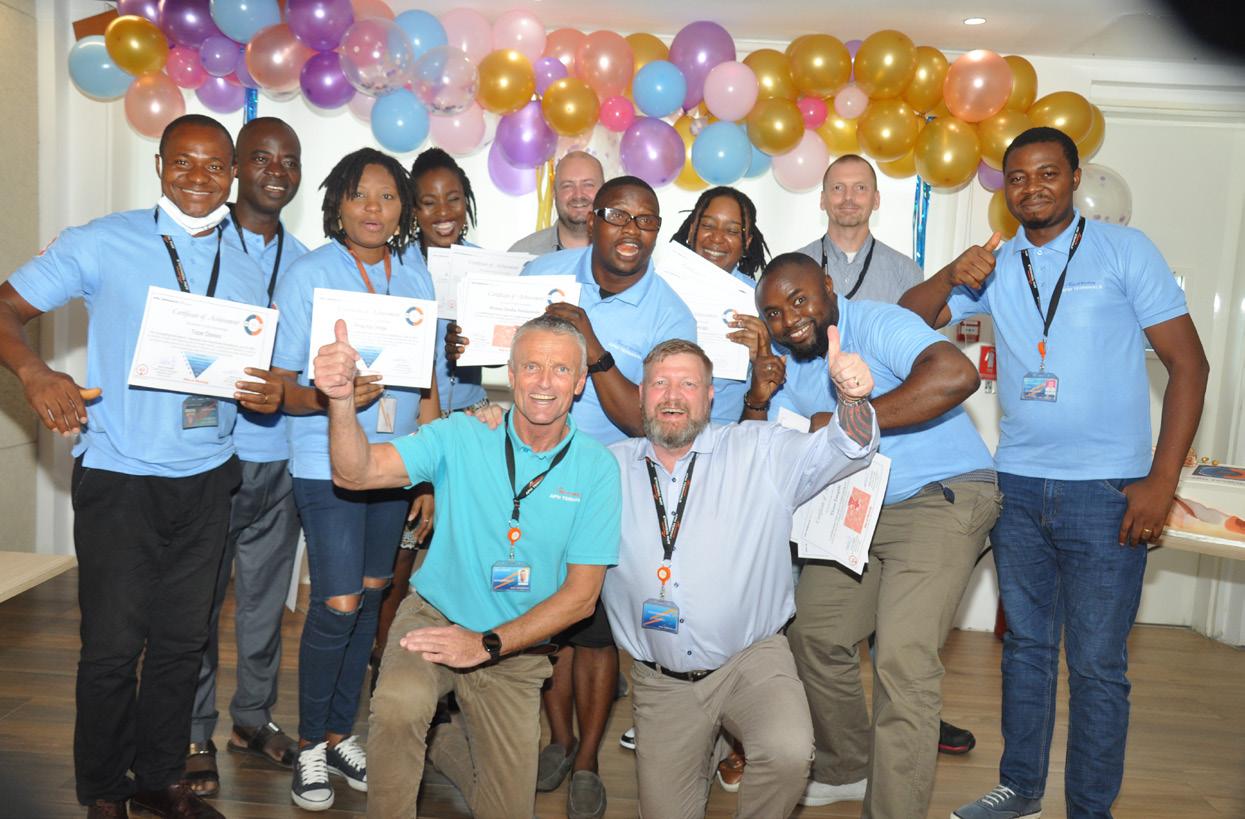
Across the board, APM Terminals strives to constantly improve the overall customer experience of doing business with the company.
“Our strategy is centred around improving efficiency for our customers by reducing the time that either their vessels or their cargo spend in the terminals. We invest heavily in infrastructure and equipment, as well as the training of our staff to achieve this,” Frederik affirms.
As part of this investment in infrastructure, APM Terminals Nigeria is concluding a USD$115 million upgrade of the Onne port terminal with a new yard, a new fleet of handling equipment (five mobile harbour cranes for quayside operations and 20 rubber tire gantry cranes for yard handling), and new

workshop and admin buildings.
The upgrade project has been ongoing for the last couple of years and is being completed this summer. The upgrade has doubled the handling capacity in the Onne port, and will allow the terminal to better service the growing East Nigerian market in the coming years.
In direct correlation to these gradual upgrades, Frederik tells us that APM Terminals Nigeria now offers its customers a reliable and stable service that they can count on.
“We have the necessary extra capacity and operational procedures in place to cater for any swings in
volume. The Nigerian market is very volatile and in the past, rapid increases in trade have repeatedly caused heavy congestion in the main ports of the country.”
The company is now ready to adapt and adjust to anything, and with this focus on agility, will continue to thrive and succeed in the West African ports sector.
Tel: +31 70 304 3100


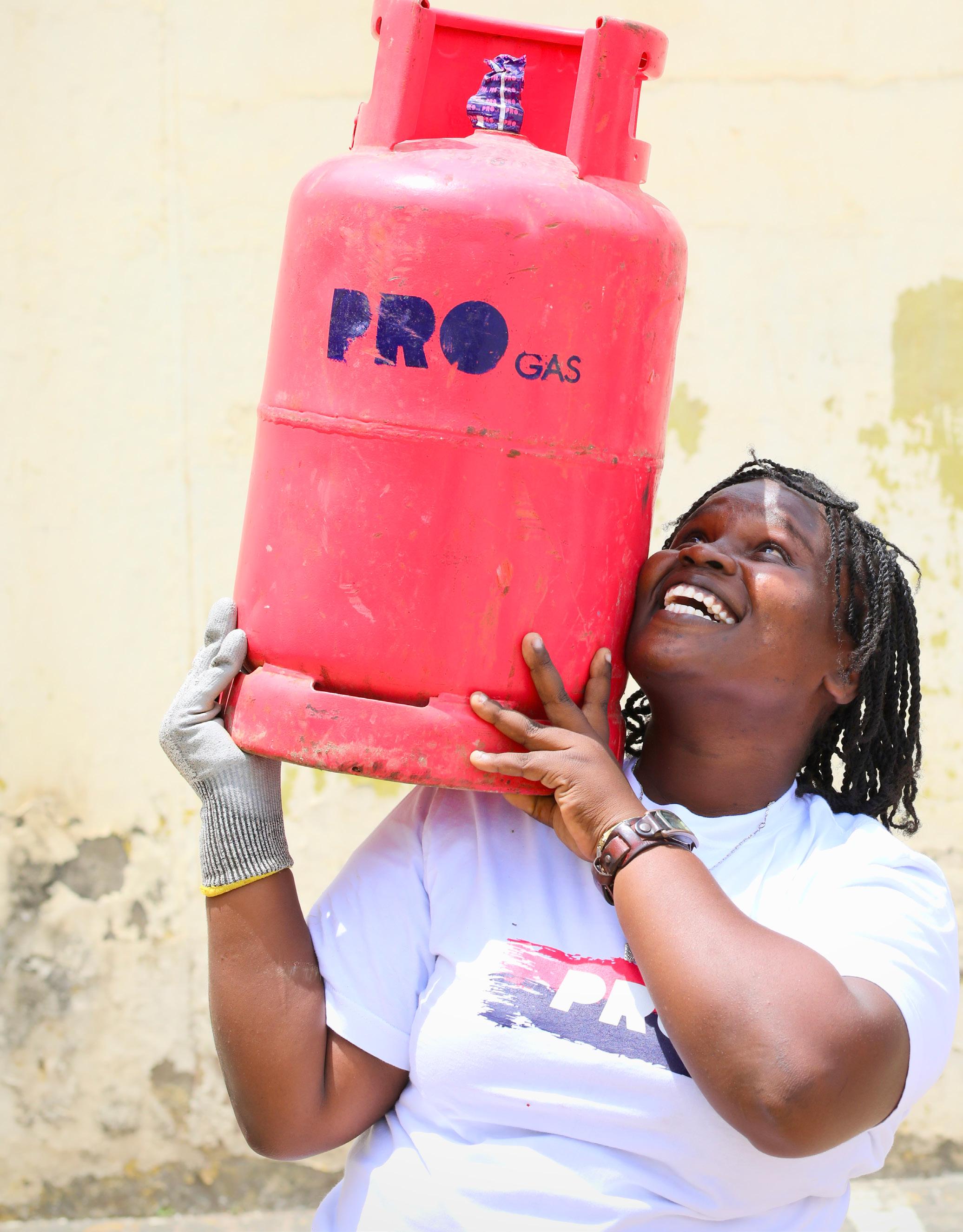
 Writer: Jack Salter | Project Manager: Joshua Mann
Writer: Jack Salter | Project Manager: Joshua Mann

According to the latest estimates from the Kenya National Bureau of Statistics, as of 2021, it is estimated that approximately 74 percent of households in Kenya use traditional sources of energy such as firewood and charcoal for cooking, while only 26 percent use modern energy sources such as liquefied petroleum gas (LPG).
Given this, it is clear that there is still significant room for growth in the Kenyan LPG industry, and that many more people could benefit from switching to LPG as a cleaner and more efficient source of energy.
The potential of LPG is tremendous, and Proto Energy (Proto) is working to increase awareness of its benefits and expand access to more people across the country, while decreasing the demand for Kenya’s natural resources.
Launched only five years ago, Proto is a subsidiary of Kenya Energy Group (KEG), a leading importer of LPG in bulk sales for over a decade.
KEG has built the infrastructure and logistics framework to distribute throughout Kenya and East Africa, with a modern common-user LPG terminal adjacent to the Port of Mombasa, including a marine jetty and a land terminal platform
to accommodate arriving vessels and moor a vessel on either side.
The jetty has a total offload capacity of 300 to 400 metric tonnes (MT) per hour for each pipeline, whilst the terminal facility has eight fully automated gantries that can fill eight trucks per hour, with
“In its short lifespan, the Proto brand has risen to take the leading market position in the downstream distribution of LPG throughout Kenya by making an aspirational and muchneeded product attainable,” opens Amanda

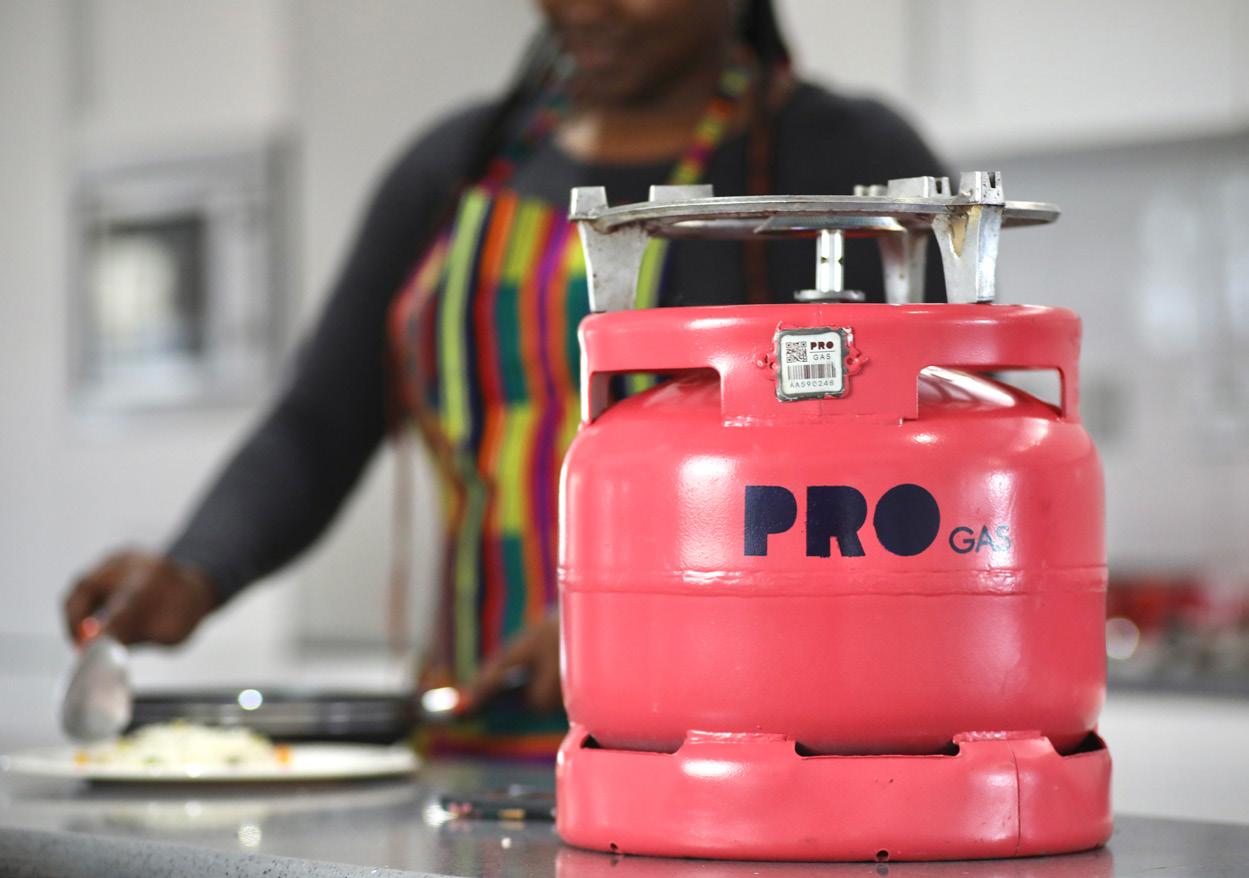 Donahue, CEO of Proto.
Donahue, CEO of Proto.
With over 1,700 employees, three filling facilities, one manufacturing plant, and 42 containers to service the entirety of Kenya, Proto’s superior support for LPG customers starts with its commitment to quality.
The company has worked closely with regulators to implement strict safety protocols in its operations and for its cylinders – the highest in the market.
Aerosols – In aerosol manufacturing, LPG is used as a propellant for the aerosols.
Hotels – LPG is the preferred mode for cooking in hotels. It is also used in steam generation which is utilised in laundry and water heating.
Hospitals – LPG is a cost-effective solution used in hospitals for cooking. It is also employed in heating and steam generation, especially for laundry.
Glass making – In glass making, LPG gas is used to melt the glass to aid in moulding it to the desired shape.
Steel shaping – LPG is used to attain the heat range required to aid in steel shaping.
Plastic manufacturing – LPG is a safe and cost-effective solution for heating the mould in plastic manufacturing plants.
This has helped foster confidence in LPG, and in Proto as a safe and reliable source of energy, having helped to drive the growth of LPG and become the regional standard.
“We intend to demonstrate how LPG can fight climate change and provide a healthier environment to Kenyans and the continent as a whole,” outlines Donahue.
Proto is investing significantly in LPG infrastructure projects across East Africa, focusing on LPG storage facilities, cylinder filling plants, and distribution networks.
These investments have helped to create a reliable supply chain for the region, making LPG more accessible and affordable for customers.
Proto is also better able to service orders both efficiently and quickly, assisted by the use of technology and tracking in its operations.
“Technology is key to our operations, from real-time asset and cylinder tracking to bar-coded cylinders and our cashless distribution system,” Donahue tells us.
“Our entire ecosystem is connected virtually and wholly owned in-house; we manufacture, transport, and deliver end-to-end.”
Prior to Proto, Donahue recognised the limited access that people had to technology and digital services in Kenya, having ran a maternal health programme in Muthari, Huruma, and Korogocho.
As the programme educated and supported 35,000 Kenyan women, Donahue believed that she could extend her reach to a wider audience by engaging in the private sector to introduce technology and innovation in a more accessible fashion.
“Seeing the ingenuity of Kenyans, I wanted to be a part of the transition in bridging the technology gap for those who needed it most,” she informs us.
In the energy & gas business, reliability and expertise are paramount, ASAP ENGINEERING has emerged as the most ideal partner for African LPG cylinder companies, fuelling their growth and excellence.
With a portfolio encompassing specialised LPG Cylinder Valves, like camping valves, self-closing, manually operated valves and more, each meticulously designed to meet the rigorous Pi Mark standards. The company accreditation of ISO 9001:2015 and TPED certification by Bureau Veritas solidifies their dedication to industry excellence





From industrial applications to consumer-grade cylinders catering to the diverse needs of the


African market, ASAP's technology-driven precision delivers reliability and safety at every turn.

Abhishek Khandelwal, Sarvesh Sanghi, and their younger brothers have masterfully pooled their strengths to create ASAP Engg. with a blend of expertise rooted in over sixty years of combined industry experience and enhanced by cutting-edge facilities featuring high-capacity forging press, automatic CNC machines, and meticulous in-house single piece testing.
"For us expanding into Africa represents a natural progression for ASAP Engineering, given the continent's increasing demand for safe and cost
friendly LPG solutions", explains Abhishek, "With our understanding of regional requirements and long-term vision, we are the go-to partners for Proto Energy & Gas."
Their global footprint truly sets them apart – servicing 130+ countries, including burgeoning markets in Africa, South America, and South-East Asia. Their proven track record of delivering impeccable value solutions cements their position as a trusted industry leader. Making them the ideal partners for corporations like Proto Energy, underscoring their prominence.
As Africa's LPG sector thrives, ASAP looks to play a pivotal role in shaping the future, one valve at a time. And by forging partnerships with ASAP Engineering, African companies can ensure that their LPG cylinders meet the highest safety and performance standards, empowering communities across the continent.
Maintenance and support –
Ensuring that equipment is in good working condition to enable minimum disruption to operations.
Bespoke LPG solutions – Working with customers to come up with the solution that best fits their requirements, on the understanding that a ‘one size fits all’ solution is not always the best.

Safety audits – Offering specialised safety audits both above and below ground, giving peace of mind and the confidence of knowing that safety and environmental standards have been complied with.
Installations and conversions
–
That led to Donahue leading a major FinTech company, that took her to 34 different African countries where she was able to broker collaborations with telcos, banks, and local governments.
Whilst this experience in the FinTech industry was undoubtedly rewarding, Donahue’s attention was recently captured by PROGAS, who impressed her with the ability to identify a pressing issue and proactively address it by making LPG available to a broader market, all while maintaining affordability and accessibility.

“This dedication to solving a realworld problem through innovation left a lasting impression on me,” she reflects.
To increase Proto’s efficiency, all employees from tuk-tuk drivers to the executive team utilise the latest technologies and systems,
with teams spread out across Kenya but able to collaborate through the company’s virtual platforms.
Professionalism and integrity are two key pillars that Donahue demands from Proto’s teams and partners, and qualities that she looks for specifically when recruiting.
“When we start with the solid foundation of integrity and a commitment to grow, I can empower employees to look at the company’s goals and find ways to take risks in alignment with those goals,” Donahue emphasises.
“I encourage my team to take leaps responsibly. It’s fine when we fail; I value those failures and constantly say so to my team, because in failure is where we learn the most.”
The professionalism and integrity of Proto’s employees is manifested in an unwavering commitment to investigating and resolving customer problems, with issues routed to the relevant departments within minutes.
In addition, Proto provides training and education programmes to its staff and other stakeholders to ensure they understand the best practices for handling, transporting, and using LPG gas safely.

Cooperation and synergy are fostered across all departments within Proto, whose employees are empowered to develop and grow to new levels.
“We look for ways to cross-train as well as seek opportunities where an employee can shift departments if their talents and career goals are more


aligned elsewhere,” adds Donahue.
In a country where the majority of households and schools still use traditional sources of energy, there is a tremendous opportunity for Proto to help move the economy towards more sustainable methods.
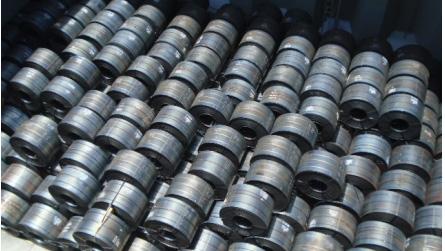
One key project that Proto is focused on is converting schools in Kenya from using firewood and charcoal to LPG, which the company subsidises in an effort to make it more sustainable for all Kenyan schools.
With there being thousands of schools in the country, daily cooking has a huge impact, as the use of firewood is not only environmentally damaging but has an extremely negative impact on the health of school employees and students.
“Starting early in the morning, chopping firewood, hauling it to kitchens, then cooking three meals a day is a laborious process and
detrimental to the health of the kitchen staff, not to mention Kenyan forests,” Donahue notes.
“Proto has developed a conversion kit that can be retrofitted to any existing school kitchen, such that within a few hours the school can be cooking its next meal and not suffer any downtime.”
The company has proven this to be a successful innovation through the numerous schools converted to date.
Clearly, Proto has demonstrated its ability to disrupt the market and will continue to innovate and grow until LPG is affordable and accessible throughout East Africa.
In certain classes of business, the insurance industry has been through a difficult cycle over the last few years.
This is largely on the back of natural disasters around the world,
and geopolitical events resulting in insurance losses and lower investment returns.
These have put pressure on the industry, and insurers have responded by building resilience within their
organisations to ensure they are sustainable for years to come.
Indeed, the rapid pace of change is widely acknowledged, highlighting the importance of staying up to date to comprehend the risks and potential challenges that lie ahead.
“This is a thrilling period for the insurance industry, as we actively seek solutions to address these problems and collaborate with clients in innovative ways to navigate the everchanging risk environment,” opens

Through its South Africa branch, HDI Global SE’s complete range of products insure against business risks in the country. Shaun Scandling, Managing Director of HDI Global South Africa Limited, tells us more
the Managing Director of HDI Global South Africa Limited (HDI Global South Africa), Shaun Scandling.
HDI Global South Africa is one of 39 entities that represent HDI Global SE (HDI) in more than 175 countries across five continents, giving the group access to vast expertise and the reach to support its clients and their evolving requirements in a transitory landscape.
A broad and needs-based range of insurance solutions and
The importance of sustainability for the environment and society can hardly be overestimated, which is why it is of great relevance in the insurance industry.

Specifically, the dangers posed by climate change make sustainability a pertinent issue. As extreme weather events become more common as a result, losses from natural disasters have risen significantly, leading to a growing need for insurance solutions to protect against such risks.
At the same time, it is becoming increasingly difficult to estimate the probability of natural disasters occurring and their impacts, a trend that the insurance industry is particularly affected by.
Creating responsible and sustainable added value is one of the core corporate management principles of HDI, who includes ecological and social issues in its strategic targets as well as in its management and governance. In its commitment to sustainability, HDI aims to strike the right balance between the interests and needs of all stakeholders.
In doing so, HDI can help establish principles for doing business in a sustainable manner that extend beyond company boundaries. Ultimately, this also allows the group to live up to its social responsibility as an insurer, to protect individuals and enable the economy and companies to function properly.

accompanying services are offered by HDI to companies from the trading, production, and service industries, who need an insurance partner they can rely on.

Present in South Africa since 1998, initially under the Gerling Global banner, HDI is celebrating its 25th year of operation in the country.
“Our DNA is in writing insurance cover for the industrial sector. We have good experience in managing complex risks across several classes of business, including property, liability, engineering and marine, amongst others,” Scandling informs us.
The HDI group supports its clients as they expand their businesses globally with roughly 5,000 international insurance programmes and more than 27,500 policies issued.
HDI Global South Africa supports many large European industries that operate locally in South Africa, so they can focus on their business.
“It is always worth talking about our offering and capabilities, but without the sense of purpose to guide us, it does not always come together,” notes Scandling.
“We understand that, which is why everything we do is underpinned by our purpose – together, we take care of the unexpected and foster entrepreneurship – and vision –pioneering value-driven insurance solutions globally.”
As well as being driven by value, HDI Global South Africa’s current focus is on the use, accuracy, and completeness of data.
Data is very important to HDI
Global South Africa, as it is across the insurance industry, and is used for several reasons.
Better data, for instance, helps the company to make sound decisions by using accurate and reliable information that is readily available in an easily digestible format.
“Well informed decisions made by an insurance company mean they can make better decisions with their capital,” Scandling notes.
“Insurers may be using capital unnecessarily due to poor data.
Shaun Scandling, Managing Director: “My journey in insurance spans 27 years, having joined the industry in 1996. Like most insurance professionals, I never set out to join the industry but was presented the opportunity and took it.

“The first job I had was answering calls in relation to homeowners’ insurance at one of the big four banks in South Africa. Since then, I have had several different roles and responsibilities on both the broking and insurer side of the industry, with the biggest part of my career spent specialising in aviation insurance.
“I have enjoyed the insurance industry from the outset, having met and worked with great people and growing a network that has served me well throughout my career. I have also had opportunities to travel and experience things I may not have experienced otherwise. It has truly been a great industry thus far in my career, and I would highly recommend a career in the insurance industry for any young person deciding what they want to do in terms of a career.”
www.africaoutlookmag.com/work-with-us
Clyde & Co is an international insurance powerhouse, with 480 partners across more than 60 offices worldwide. We have an unmatched global and local presence, handling claims across every line of insurance and reinsurance business, offering our clients around the world a seamless service.

In Africa, Clyde & Co continues to grow, with over 120 legal professionals and 36 local partners. We continue to develop our services in commercial litigation, corporate and commercial, project and construction offerings, and to open up new markets in partnership with our clients.
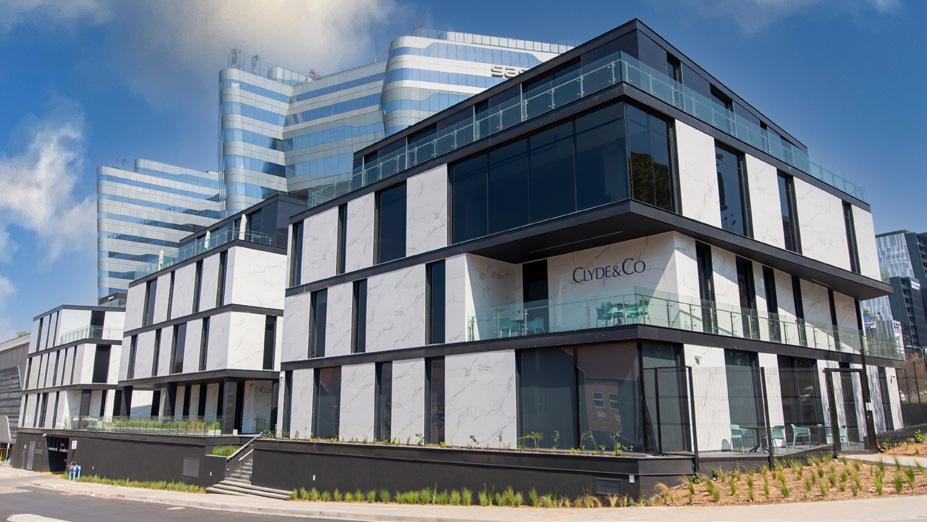
In South Africa, we remain ranked by Chambers Global and Partners as the
leading Band 1 insurance law firm in South Africa. Additionally, our Tanzania office remains Band 1 for general business law for the sixth consecutive year and The Legal 500 recognises this office amongst the leading Tier 1 law firms in the MEA region, as well as recognising 29 of our legal professionals. Furthermore, we are thrilled to have won the prestigious “Litigation and Dispute Resolution Team of the Year – Large Practice” award at the African Legal Awards late last year. These accolades highlight our firm’s burgeoning position in Africa and support our ambition to be the leading international insurance law firm in the region. It is also a testament to the great performance of our people and the depth of our offering.
www.clydeco.com


This can be very costly and limits opportunities to use capital more productively in other areas that can produce growth.”
Data is all the more important to HDI Global South Africa as it considers how to make use of artificial intelligence (AI) in the business in future.
The data used for AI needs to be accurate and complete, or it may yield poor or biased results which can also be costly in various ways.
“In the end, data is an asset and we need to take care of it as much as we take care of other physical assets,” emphasises Scandling.
The insurance sector relies on a number of different relationships, from brokers and loss adjusters to attorneys and service providers that support HDI Global South Africa in the claims process.

Each of these plays a pivotal role in the value chain. Brokers, for example, are a key link between insurers and clients, providing advice to the latter on their insurance needs and translating it into a proposal to the former.
“We value the role of brokers, and work with them to solve our clients’ problems or fill their insurance needs,”
Loss adjusters, meanwhile, step in during the claims process. At this stage, clients need insurance products, whilst HDI Global South Africa and the insurance industry get to show off their capabilities.
“Loss adjusters assess the loss and liaise with the client through the claims process. They really represent the insurance sector and are, therefore, one of the key stakeholders in the value chain.”
Supported by strong relationships with the likes of brokers and loss adjusters, HDI is building the brand in South Africa.
HDI wants to become a global player, and HDI Global South Africa is playing its part.
Tell us your story and we’ll tell the world
“WELL INFORMED DECISIONS MADE BY AN INSURANCE COMPANY MEAN THAT THEY CAN MAKE BETTER DECISIONS WITH THEIR CAPITAL”
– SHAUN SCANDLING, MANAGING DIRECTOR, HDI GLOBAL SOUTH AFRICA LIMITED
As MultiChoice Namibia harnesses the untapped potential of the continent’s film and television sector, it is going above and beyond in creating local and innovative content. Managing Director of the company, Roger Gertze, tells us more
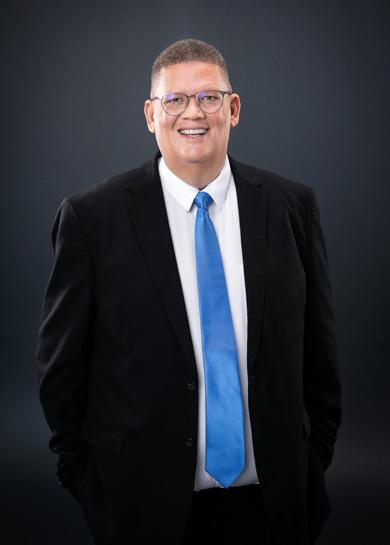 Writer: Lucy Pilgrim | Project Manager: Josh Hyland
Writer: Lucy Pilgrim | Project Manager: Josh Hyland
There is no doubt that the entertainment industry plays a crucial role in millions of households across Africa, bringing to the fore vital information and entertainment to subsequently enrich lives. Evidently, the MultiChoice Group as a whole grew its subscriber base by five percent, totalling 21.8 million users in the last financial year.
The Namibian film and television industry in particular has undergone a significant period of transformation in recent years that has elevated the sector to its current innovative state. This is due to Namibia’s prime positioning for industry growth and reaping substantial benefits.

However, Namibia’s film and television industry is not without its challenges, namely budgetary
constraints, international restrictions, and a lack of resources that have prevented countries such as Namibia from becoming top producers in the global entertainment industry. Feature films, for example, are one of the most expensive to produce, putting heavy strains on directors and producers who struggle to find funds, yet are one of the most profitable and successful components of the entertainment industry.
Consequently, whilst the Namibian film industry has been around for decades, there have been relatively few recent developments.
MultiChoice Namibia, however, is prepared to rise to the challenge, thanks to the capabilities of the next generation of filmmakers, marking a turning-point in the sector.

“Namibian filmmakers are filled to the brim with exciting ideas and concepts. The country itself is home to outstanding locations and production sets that can elevate other international films,” Roger Gertze, Managing Director, introduces.
Therefore, although future talent is feeling the effects of the limited impact Namibia is having on the box office, it remains a country ripe with opportunity, thanks to the contribution and recognition from international institutions.
From its inception, MultiChoice Namibia set out to be a local business
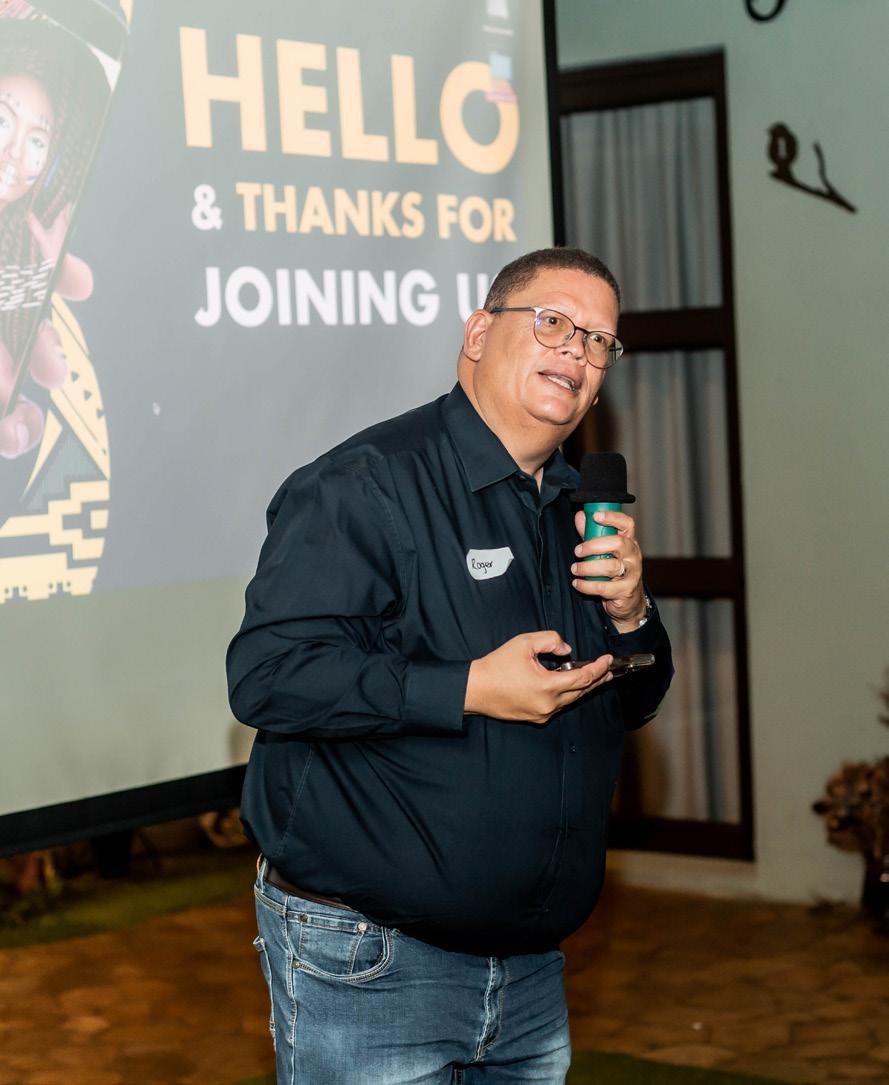
Multichoice Namibia has enjoyed Gertze’s leadership for over 10 years, having joined in January 2013. However, he has enjoyed a varied career having been at executive and board level in many of Namibia’s top financial and medical institutions.
This speaks to the notion of customer experience and value-added services that have always been at the heart of Gertze’s career mission, after becoming particularly interested in technological advancements and its place in business transformation.
“My roles for the last 30 years have always been in and around service, which has helped me to combine technology and customer service to derive better solutions. I have also enhanced my leadership capabilities to deliver complex assignments with the help of a diverse team,” Gertze recalls.
With such a customer-centric focus, Gertze has a strong belief in the power of the media sector, due to its capabilities to advance any society.
“I endeavour to shape and enrich the lives of Namibians through information, education, and entertainment across all platforms,” he states.
“Our involvement in the NBC Film Project will see 26 new Nambian feature films produced locally, harnessing entertainment platforms to give Namibians a voice and empower them to tell their stories by producing more regional content and specifically tailoring it to the local audience,” he adds.
for its people, a promise it continues to honour in four branches across the country with a total of 130 employees and 33 agents.
“Our business empowers, uplifts, upskills, and touches the hearts and minds of Namibians everyday through the very best local and international entertainment. Therefore, we remain committed to future social and economic growth of the country,” Gertze tells us.
This is most clearly heralded in the company’s commitment to local production, showcased by MultiChoice Namibia’s partnership with the national broadcaster, Namibia Broadcasting House (NBC).
To date, the NBC Film Project has 13 films that are forecasted to launch in September 2023, including titles such as Okalila, Tuli & Jessica, InstaLove, BOkwagter, Handholder, Wish for Death, Kauna’s ER, and more.
Through the championing of local production, MultiChoice Namibia wants to facilitate a strong connection with its customers by creating content that reflects the local culture, as well as promoting stories and experiences that lead to increased viewership and audience engagement. This fosters a feeling of mutual cooperation between the company and customer, whilst further bolstering the local community.
“DESPITE RECENT CHALLENGES, NAMBIAN FILMMAKERS HAVE CREATED SOME TRUE MASTERPIECES THAT HAVE BEEN RECOGNISED WORLDWIDE”
– ROGER GERTZE, MANAGING DIRECTOR, MULTICHOICE NAMIBIA
Airtime City is a leading technology-driven company based in Namibia, specializing in aggregating, wholesaling, and retailing Value-Added Services (VAS). With a strong focus on innovation and customer satisfaction, we provide a comprehensive range of VAS offerings, including airtime, prepaid electricity, insurance bill payments, sports betting, and last but not least MultiChoice subscription payments.
Our mission is to simplify and enhance the lives of Namibians by offering seamless access to a diverse array of value-added services, empowering both individuals and businesses through reliable, convenient, and cost-effective solutions. This is achieved by Unmanned kiosks, Handheld POS Devices, Retail Till Integrations and partnering with end user applications like Simcontrol.

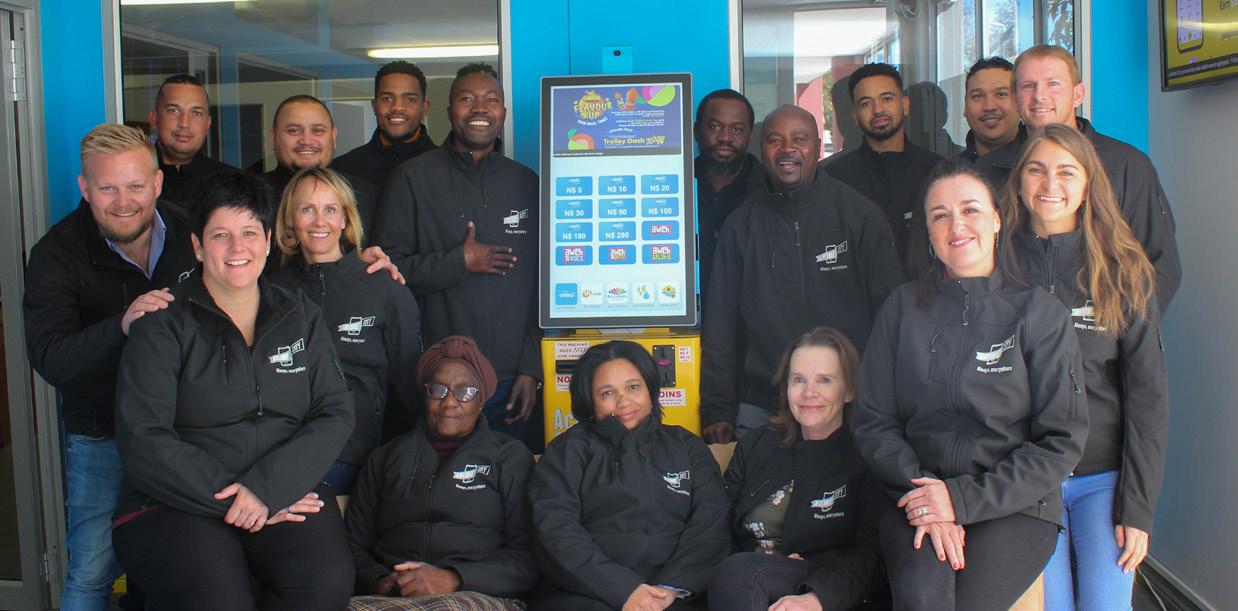
Airtime City and MultiChoice partnered in 2017 to make payments more accessible, since then both have worked closely to improve the customer experience.

For more information on this partnership and how Airtime City can help take your services closer to Namibians, contact us: +264 61 304 051
marketing@airtimecity.com www.airtimecity.com

What makes the NBC Film Project further unique is its offering of consistent work for 50 technical crew members, whilst building and training at least 13 new writers and
NAMIBIA’S VALUESAT A GLANCE:
DEVELOP - growing Africa’s vibrant creative industries
PARTNER - building long-term relationships
MARKET - creating opportunity for small enterprises
BROADCAST - investing in leading-edge broadcasting technology
DELIVER - offering educating and inspiring content
presenting 52 new actors to the world stage, creating new opportunities for exposure.
“This is vital in allowing the local Namibian creative industry to grow and mature beyond the two years of the project, a fact that makes us immensely proud,” highlights Gertze.


MultiChoice Namibia has an impressive history of content investment, as its partnership with Namibia Media Holdings has nurtured growth. A landmark of such developments is the launch of Network TV on DStv Channel 285 and GOtv channel 94. This exclusive set of Nambian channels provides hyperlocal content to Namibians, broadcasting local current affairs, debates, Namibian sports, youth programming and entertainment shows.
The company also prides itself on consistently listening to its customers and their everchanging needs, to
ensure that it not only meets, but exceeds their service expectations. This is highlighted by its significant investment in internal digital infrastructure, including two leading digital self-service applications, known as MyDSTV and MyGOtv, which provide self-service capabilities to its DStv and GOtv customers.
Both applications provide fully comprehensive and all-encompassing services that are available to users on a 24/7 basis. On top of this, customers can also enjoy 16 real-time payment integrations that facilitate communication channels, making it
GOtv activations in Walvis Bayeasy to reconnect from the comfort of the customer’s home.
Alongside the expanding needs of its customers, MultiChoice Namibia is dedicated to investing in the well-being of its staff. A particularly important element of the company’s welfare responsibilities lies in the value of female empowerment within the wider context of the entertainment industry.
The company views entertainment as an essential catalyst for social change and a tool of empowerment, with the industry making enormous efforts to equally represent men and women and subsequently close the gender gap. MultiChoice Namibia is at the forefront of this change, represented by its partnership with NBC, which boasts seven of its 13 films produced by women.
Therefore, MultiChoice Namibia is proactively challenging the view that the film and television sector is only a place for men in Africa, allowing a space for women to occupy
leadership roles and reach their full potential.
As the company forecasts its trajectory, MultiChoice Namibia is looking forward to broadcasting content that will set it apart from its competitors, such as the development of local content creation in partnership with NBC.
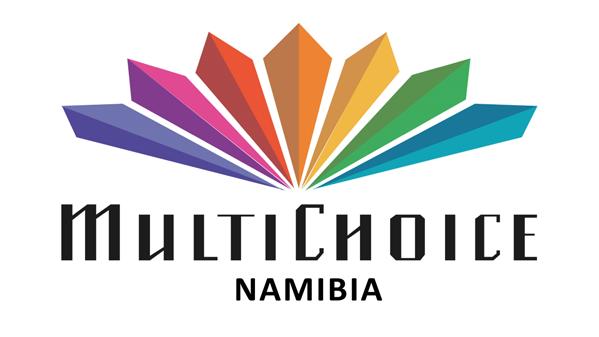

Elsewhere, the company is currently developing specialised local sports channels that will allow millions to watch long-awaited sporting events. These include broadcasting the success of Namibian international rugby team, nicknamed the Welwitschias, who have qualified for the upcoming Rugby World Cup. Additionally, the advancements of the country’s cricket and athletics teams will be showcased across MultiChoice Namibia’s locally created sports channels and radio stations, which are instrumental in developing opportunities for Namibians.
Furthermore, the company strives to move with the trends of the industry by becoming more experimental with streaming services and following the direction of audience viewing. This is most clearly showcased in the MyDStv and MyGOtv apps, as they represent the company’s entry into the streaming world.
“It’s clear that today’s culture is vastly different to that of 30 years ago, and it’s the entertainment industry’s job to not only reflect the current culture but keep pushing it to evolve and adapt,” concludes Gertze.
MultiChoice Malawi delivers exceptional and creative media content across a range of platforms. As the influential brand continues to constantly evolve, it ensures that customers across the continent receive the very best entertainment

 Writer: Ed Budds | Project Manager: Josh Hyland
Writer: Ed Budds | Project Manager: Josh Hyland
MultiChoice is Africa’s leading entertainment platform, with a mission to enrich lives across the continent through its wide range of products and services. The company’s product portfolio and array of services are used today by over 23.5 million households in 50
markets across sub-Saharan Africa.
As the continent’s most adored and established storyteller, MultiChoice is committed to supporting the development of the African creative industry and is proud to be a major employer across the region.
Excited about what the future
holds for the company, MultiChoice believes that it can continue to grow its business and positively impact the lives of millions of people across Africa.
Additionally, MultiChoice aims to create ‘a world of more’ for Africa by leveraging its unique platform, scale,
and distribution to build a broader ecosystem of consumer services that are underpinned by scalable technology.

In this way, the company focuses on offering the full package to its many customers and continues to create immense value for its shareholders
by expanding in areas where the company has identified it possesses the right to play and the ability to make a meaningful impact.
Under the broad reach of the MultiChoice umbrella, MultiChoice
Malawi was established in 1996 as a locally-owned franchise. The vast operation now provides Malawian customers with a comprehensive choice of five TV packages.
Local operations are run by 115 local Malawian employees working in Blantyre, Lilongwe and Mzuzu,
supported by a nationwide network of agents, retailers and installers.
Key to MultiChoice Malawi’s impressive array of achievements to date is the creation of a strong local workforce that works smarter, not harder, to deliver innovation, service excellence and world-class entertainment to customers across the country.
This expert team has reshaped MultiChoice Malawi’s business to improve every touchpoint along the customer journey by placing value at the centre of the experience.

Similarly, MultiChoice Malawi has grown hand-in-hand with its local communities and today boasts a staff footprint spanning the entire nation through retailers, 152 agencies and 58 accredited installers.
Together, this team works to make the best local and global content available through the company’s products, which provide crystal-clear digital satellite TV to a large segment of the population through three dedicated transmitter sites.
At present, a major focus of the company’s social investment efforts is being put towards igniting Malawi’s creative industries through upskilling film and TV professionals. One example of how the business is doing this is through the introduction of the
MultiChoice Expansion Programme, a collaborative skills development initiative between MultiChoice, local producers and the public sector – through the MultiChoice Talent Factory (MTF) skills development expertise.
Moreover, the annual MTF Academy, which develops the skills of young filmmakers through a year-long learning programme at the Lusaka-based MTF Academy of Southern Africa, has produced an ever-increasing collection of skilled alumni, who will undoubtedly positively affect and continue to grow the national media industry.
Back in 2018, Chimwemwe Mkwezalamba and Jonathan Kapumba represented the first MTF student intake in Malawi. Following the successful completion of the initiative, Kapumba also secured a three-week Bollywood internship and participated in a production that was nominated in the MTF category of the 2022 Africa Magic Viewers’ Choice Awards, which took place in Lagos, Nigeria. This has been a notable point of pride for MultiChoice Malawi.
The hope of the company is that these students and the many other talented young Malawians will follow in their footsteps and help create a pipeline of local content, facilitated directly and overseen by the guidance of MultiChoice.
MultiChoice Malawi’s company mantra of ‘Sanka Wekha’, meaning ‘you choose’, embodies its core belief that the customer possesses the ultimate power to choose. This involves giving customers the ability to pick from a variety of media packages that suit their specific needs and how they manage their subscriptions. Furthermore, ‘Sankha Wekha’ highlights MultiChoice’s commitment to always putting the customer first through offering a wealth of variety, and more importantly, a world of choice.
Similar to how MultiChoice Malawi aims to ensure a better ability to choose between a range of premium products for its customers, the company strives to foster a healthy and open culture and community, linked with the collective goal of facilitating a better tomorrow.
Everyday, MultiChoice Malawi works to care, connect, and create the impacts that subsequently enrich the lives of its people and customers.
As part of this broader approach to benefitting the lives of its teams and the communities it serves, MultiChoice Malawi’s corporate social responsibility (CSR) initiatives include the recent refurbishing of the intensive care unit at the Queen Elizabeth Central Hospital in Blantyre, alongside donating more than 7,000 personal protective items to Malawian citizens at the height of the COVID-19 pandemic.
With this collective mindset at the forefront of every company process, MultiChoice Malawi’s teams entertain, inform, and empower through memorable experiences and powerful African stories that are shared across cutting-edge, breakthrough platforms.
The company states, “in every moment we are uniting the world in Africa, enriching the lives of every person to feel, experience and connect beyond their boundaries.”
By investing in original productions of authentic stories and talent across the continent, MultiChoice Malawi is helping to launch careers, both locally and internationally. With content designed to cater for a diverse swathe of varied audiences, the company supports local production houses as well as talented actors, writers, and filmmakers as part of its investment in the enhancement of the burgeoning Malawian media landscape.

In this way, MultiChoice Malawi believes passionately in telling African stories that touch lives, celebrate the entire continent, and initiate the positive consequence of building great futures for all. This is why MultiChoice Malawi’s variety of channels has made growing Africa’s video content industry a crucial and pressing priority. To substantiate this bold claim, MultiChoice Malawi has invested generously in local movies
and TV series in recent years.
As part of this ambitious new direction for the company, SuperSport is the largest funder of sports on the continent and broadcasts most of the major sporting events and leagues, sourcing content from federations and license holders as well as producing its own thrilling programming.
Shouldering the responsibility of sharing narratives of the nation’s past, present, and future, MultiChoice Malawi asked three extraordinary poets – Lebohang Masango, Mumbi Macharia and Chika Jones – to create a remarkable on-air promotion, entitled “Ten Thousand Stories”, which celebrates the company’s dedication to promoting diversity and highlights the importance of tales told by Africans, for Africans.
Lebohang Masango, the originator of this ground-breaking work, is a


South African writer and poet with an MA in Social Anthropology from the University of Witwatersrand.
In her collaboration with MultiChoice Malawi, Masango is not only bringing African stars to screens across the nation but is encouraging Africans to become involved in the production elements of shows.
Finding the oral storytelling tradition fascinating, Masango and MultiChoice Malawi remain aligned in the admiration of the unique ability of Africans to naturally convert history into entertaining and accessible stories.
“WE ARE UNITING THE WORLD IN AFRICA, ENRICHING THE LIVES OF EVERY PERSON TO FEEL, EXPERIENCE AND CONNECT BEYOND THEIR BOUNDARIES”
– MULTICHOICE MALAWI
 Martha Holley Newsome (right) and Joanna (left)
Martha Holley Newsome (right) and Joanna (left)
Across the world, the work of humanitarian relief is paramount to the care and well-being of millions of people affected by conflict, natural disaster, or socio-economic unrest.
Led by faith and an unwavering commitment to equal opportunities in healthcare, Medical Teams International (Medical Teams) is a Christian health and humanitarian organisation that has provided medical care to those in crisis since 1979.
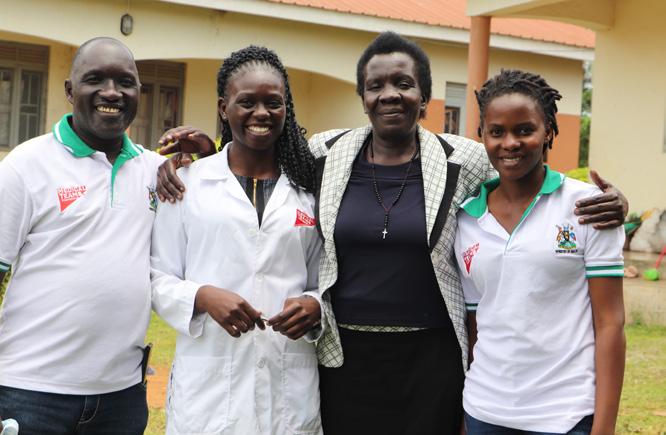


The organisation’s founding principle is to provide life-saving medical care and support to those in need in Africa and across the globe,
as it helps millions of refugees and displaced individuals receive urgently needed medical attention.
Medical Teams follows a threebranched approach to its services - providing basic medical treatment, offering an outstanding level of individual care, and working to strengthen the existing system through building trust between the healthcare services and the community. Such honourable commitments are underpinned by a vocation of: “daring to love like Jesus”.
“Like Jesus, we boldly break barriers to health and restore wholeness in a hurting world,” begins Martha Holley Newsome, President
and CEO of the organisation. “Not only do we desire to be the hands and feet of Jesus, but to also break barriers in access to places that have been the hardest hit by all kinds of difficult circumstances, whether that’s a natural disaster or a manmade conflict. We want to go where we are needed most, to bring medical care that is so urgently required.”
Medical Teams works attentively with refugees across numerous countries in Africa, including Tanzania, Sudan, Ethiopia and Uganda. Regarding the latter, Medical Teams operates 65 clinics that provide health services
With an unmatched tenacity, resourcefulness, and level of support, we talk to the President and CEO of Medical Teams International, Martha Holley Newsome, about the organisation that goes above and beyond in providing humanitarian support
Lucy Pilgrim | Project Manager: Felix Revell
to nearly one million people, of which 750,000 are refugees and the remaining 250,000 are local population. Consequently, the Uganda programme has a total cost of USD$17 million.
Further north, Medical Teams has been vital to those fleeing from conflict in Ethiopia. In total, 65,000 people from Tigray fled across the border to Sudan, and as such, the community health workers (CHWs) have been incredibly active in and around this area, despite difficulties caused by the civil war.
“There was no internet, so the health workers were cut off from everything including power. The only thing Medical Teams could do was fly cash to its team so they were able to continue to have mobile medical services until the peace accord,” Newsome explains.
Once the peace accord was finally signed in Ethiopia, an imposed
curfew meant that CHWs weren’t able to access vehicles. Therefore, they continued to conduct mobile medical operations on donkeys, demonstrating courage and tenacity in extreme conditions.
This is further reflected in Medical Teams’ work in Eastern Africa, in which team action has increased in response to recent droughts that are causing high levels of malnutrition.
Over in Colombia, South America, Medical Teams has also been working

with Venezuelan migrants since 2019, who have been fleeing economic hardship caused by the collapse of the government in their home country. The CHWs provide support in strategic urban areas, providing vouchers for medical care and sanitation and hygiene supplies, with a large percentage of vouchers being given to young women and children.
“We had the chance to go to a community known as Cienaga, which translates as ‘swamp’ because
Upon the eruption of the crisis in Sudan in April this year, 25 million people are now in need, as the entire population is affected by the conflict. Thus, Medical Teams has been working hard to help the one million people that have been internally displaced.
Initially, the team were helping the displaced in Tigray, until 300,000 people crossed the border to Ethiopia to escape the Sudan conflict. Thus, Medical Teams has been continuing to respond to conflict and displacement in both countries.
the area routinely floods. Another community, called Soledad, is built on a literal trash dump. Both these areas have dire sanitation and horrendous healthcare conditions,” Newsome informs.
It is in the latter region that Joanna and her baby live in a small cement room. With no access to healthcare, Joanna and her family fled across the Venezuelan border in search of aid. She had only seen her doctor once with her first pregnancy, and lived in constant fear that her baby wasn’t healthy.
Her second pregnancy, however, was much different. Since getting connected with Medical Teams, Joanna has been able to get papers to qualify for insurance, and the CHWs helped her get registered in Colombia. She benefitted greatly from the vouchers, and described how it would have been very difficult to get help with her pregnancy otherwise.
Medical Teams provided both


prenatal and antenatal care to Joanna, as well as regularly checking in to help with breastfeeding, alongside any other needs that arised.
“Our staff in places like Colombia are truly saving lives. The personal care and connection we provide to the clinics and services in their communities makes a significant difference in their health outcomes,” Newsome describes.

As a businessman from Salem, Ron Post, the founder of Medical Teams, had no prior involvement in medicine or humanitarian aid. And yet, he felt a calling one evening when he saw on television what was happening to Cambodian refugees that were impacted by Khmer Rouge.
Post was particularly affected by the footage of a young girl he saw stagger across the border and collapse. At this point, he felt God wanted him to do something. Two weeks later, Post was on a plane to Thailand to provide critical services for the Cambodian refugees in partnership with World Vision, which was running a hospital initiative on the Thai border at the time.
From such an impactful start, Medical Teams operates as a faithinspired organisation that focuses on what daring to love Jesus means in the world. Thus, with the prayer that their staff can be the hands and feet
“WE WANT TO GO WHERE WE ARE NEEDED MOST, TO BRING MEDICAL CARE THAT IS SO URGENTLY REQUIRED”
– MARTHA HOLLEY NEWSOME, PRESIDENT AND CEO, MEDICAL TEAMS INTERNATIONAL
of Jesus, Medical Teams demonstrates love to its neighbours and, most importantly, helps them survive.
“Our values are to be courageous and tenacious, accountable, selfless, and not alone. We think about the latter in two ways. We want to come alongside people so that they know they’re not alone and work in partnership with others. However, we also believe that the contexts in which we work are so big that we need God as well,” Newsome highlights.
The notion of an international network of aid is paramount to the success of the organisation, whether this is provided through private individual contributions or comprehensive
supply chains. Regarding the former, each contribution is perceived as “gold dust,” Newsome describes, as it allows the organisation to leverage resources.
“People feel moved by our work and feel the need to support us, even if it’s a small individual donation or corporate foundational funding, each contribution is greatly valued.”

Due to Medical Teams’ reputation and calibre of programmes, it receives many grants from the United Nations High Commissioner for Refugees (UNHCR), as well as other vital international institutions. Each organisation diligently works with Medical Teams as it recognises the value of having proactive staff on the frontline, to achieve critical last-mile care.
From a wider supply chain perspective, it has become increasingly important for Medical Teams to work closely with both partners and donors to ensure that each country’s needs are being met, whilst following best practices to enhance low-resource health system strengthening.
For partners in-country, the need to have staff or volunteers who understand local custom requirements and can obtain tax-exempt status is pivotal to the success of an in-country supply chain. Medical Teams works with experienced expediters who can provide in-country agents if needed. Once in-country, medical supply management is key to the proper distribution of supplies.
• Implementing electronic health records: ensures that patient data is easily accessible to partners and medical teams. By providing electronic records, the organisation can offer a better standard of care and refer individuals to long-term healthcare.
• WhatsApp groups used by CHWs: link patients to private and public health clinics.
• Red Rose Initiative: operating in Colombia, this mobile system facilitates vouchers for urgent care. The initiative additionally provides medical supplies through local vendors, which is a dignified way to provide support as patients can choose the items they need.
Following the supply chain from donor to end user is one of the most challenging but rewarding aspects of the organisation. This year, Medical Teams has diverted 160 tonnes of medical supplies from landfills and served 490,000 people. The everchanging landscape of customs regulations, donor requirements, and meeting in-country needs leads to many of the much-needed changes to the medical supply chain. Being agile and responsive is key in the procurement and distribution process of these supplies, and this is one of Medical Teams’ specific areas of expertise.
Alongside the succinct organisation of the international distribution of
supplies, the staff, from coordinators to CHWs, are at the core of the company’s success. In total, it has 2,503 employees, as it has become more dependent on the national staff of each country to run the aid programmes. This means that CHWs on the frontline are aware of the context of the crisis, as well as the people they are working with.
Currently, approximately 25 of the staff in Uganda are refugees themselves, as the organisation prefers national staff over expatriates. This deliberate recruitment enhances the care provided by Medical Teams as they utilise the skills of refugees and nationals.

Medical Teams is also determined

to ensure that each staff member has the opportunity to develop their skills. Thus, it provides a multitude of learning programmes in which team members can enroll and participate anywhere in the world.
As the organisation continues to provide healthcare and humanitarian aid across the world, it works to sustain its Love in Action Campaign: a five-year plan to triple its impact around three aspirational goals.
Firstly, Medical Teams is determined to triple the number of global refugees and displaced people that it serves, as well as triple its capacity to respond to natural disasters, and its ability to serve those around the world. This can only be achieved through an efficient mobilisation of its resources, private contributions, and its global supply chain.
When the organisation’s board approved the Love in Action Campaign in May 2017, the global number of refugees and displaced individuals was 65 million. Five years later, that total now stands at 110 million, reflecting the urgency and necessity for the crucial work of Medical Teams.
“We endeavour to bring that number down, but unfortunately the level of conflict in the world and the impact of climate change in terms of storms and natural disasters, means that the number is going in the wrong direction. That’s why we believe that these three aspirational goals are so important,” Newsome concludes.
“NOT ONLY DO WE DESIRE TO BE THE HANDS AND FEET OF JESUS, BUT TO ALSO BREAK BARRIERS IN ACCESS TO PLACES THAT HAVE BEEN THE HARDEST HIT BY ALL KINDS OF DIFFICULT CIRCUMSTANCES”
– MARTHA HOLLY NEWSOME, PRESIDENT AND CEO, MEDICAL TEAMS INTERNATIONAL

“Look out for the peripheral industries and sectors like contract mining or product beneficiation, which are both key fields. You can learn a lot from the Earth’s minerals and resources by focusing on not only coal but also other minerals.”

“There is a huge gap between supply and demand at both domestic and industrial levels, mainly in the mines. It is important to know the legal context and learn the tax system. As the electricity sector is new to the country, qualified personnel can be hard to find."
“It's important for someone entering the dairy industry to have a very good understanding of mechanics and biology. Most importantly, you need to have commercial sense and acumen to understand the value chain and how you can make a difference.”
Are you a CEO/Director interested in telling your story? Contact Africa Outlook now!
 Ephrem Balole Managing Director, Virunga Energies
Drikus Lubbe CEO, Dairy Group South Africa
Morné du Plessis CEO, Minergy Coal
Ephrem Balole Managing Director, Virunga Energies
Drikus Lubbe CEO, Dairy Group South Africa
Morné du Plessis CEO, Minergy Coal


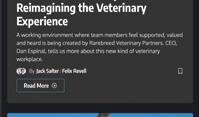







Adding to its growing family of regional titles – EME Outlook, Africa Outlook, APAC Outlook, North America Outlook, and its sister sector title, Mining Outlook – Outlook





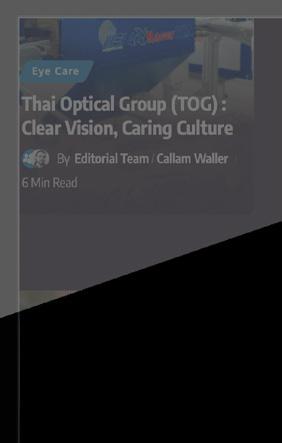




Publishing is proud to announce the birth of a dedicated platform for the healthcare sector. As organisations worldwide must navigate a new healthcare landscape defined by technological innovation in the wake of the COVID-19 pandemic, now is the time to showcase the strides being taken in this critical sector.


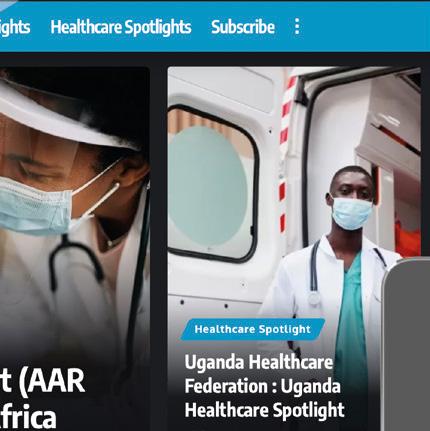







A multi-channel brand, Healthcare Outlook will bring you the positive developments driven by organisations across the healthcare industry through its various platforms. Discover exclusive content distributed through its website, online magazine, social media channels, and dispatches delivered straight to your inbox with a bi-weekly newsletter.




Through this compelling new venture, we intend to foreground the movers and shakers of the industry. To participate as a featured company and join us in this exciting endeavour, contact one of our Project Managers today.
www.healthcare-outlook.com



















